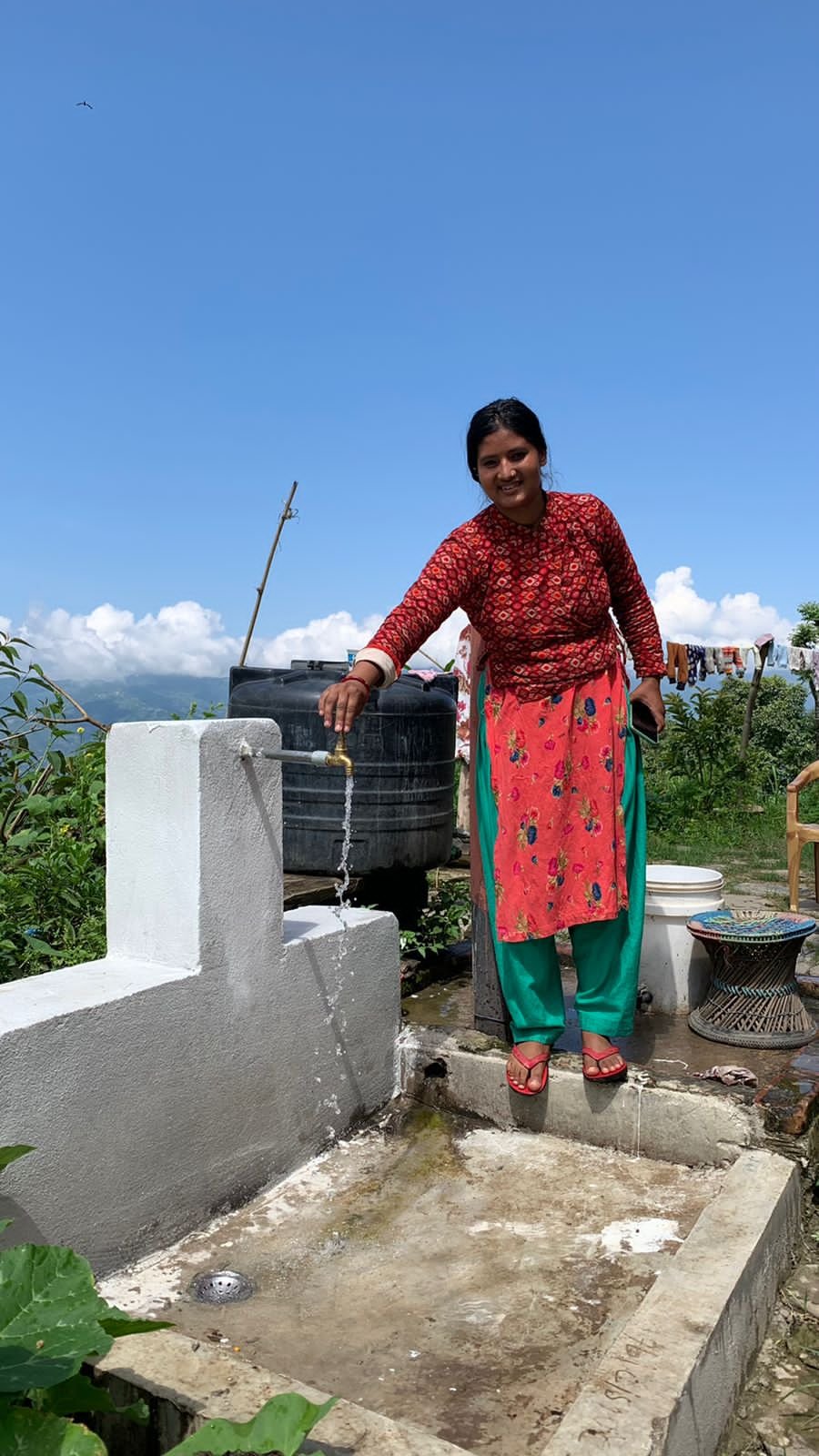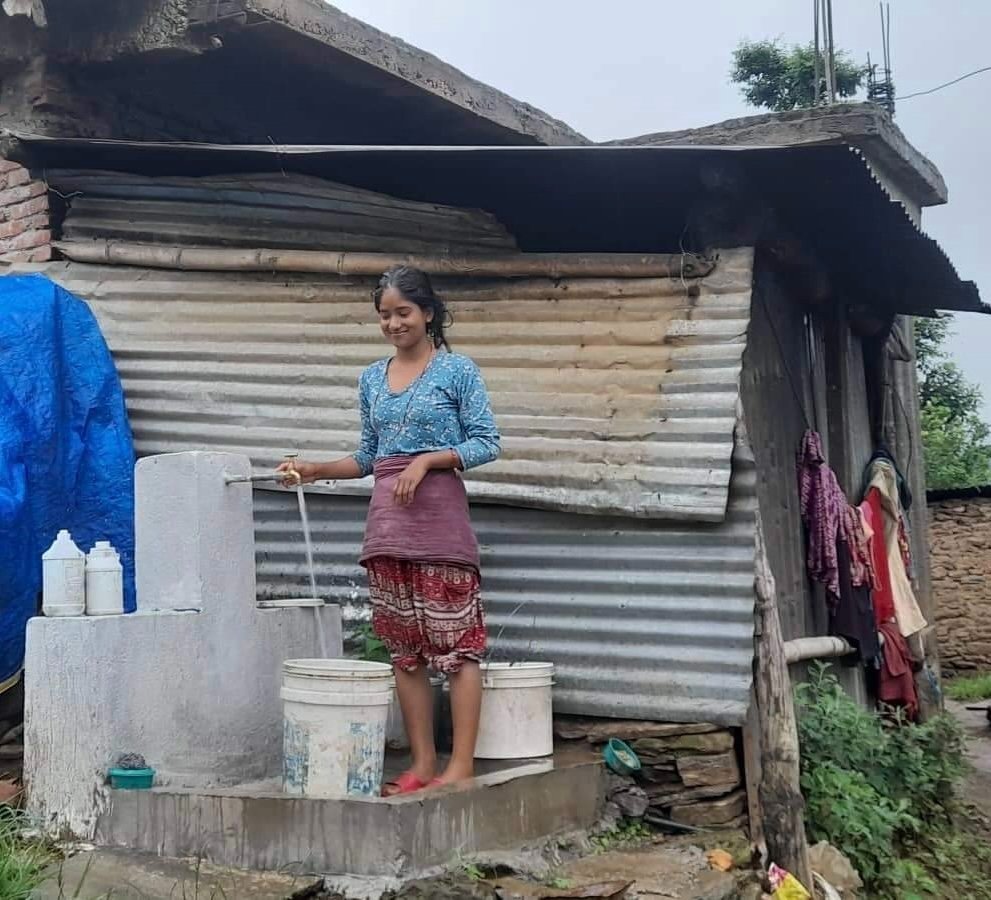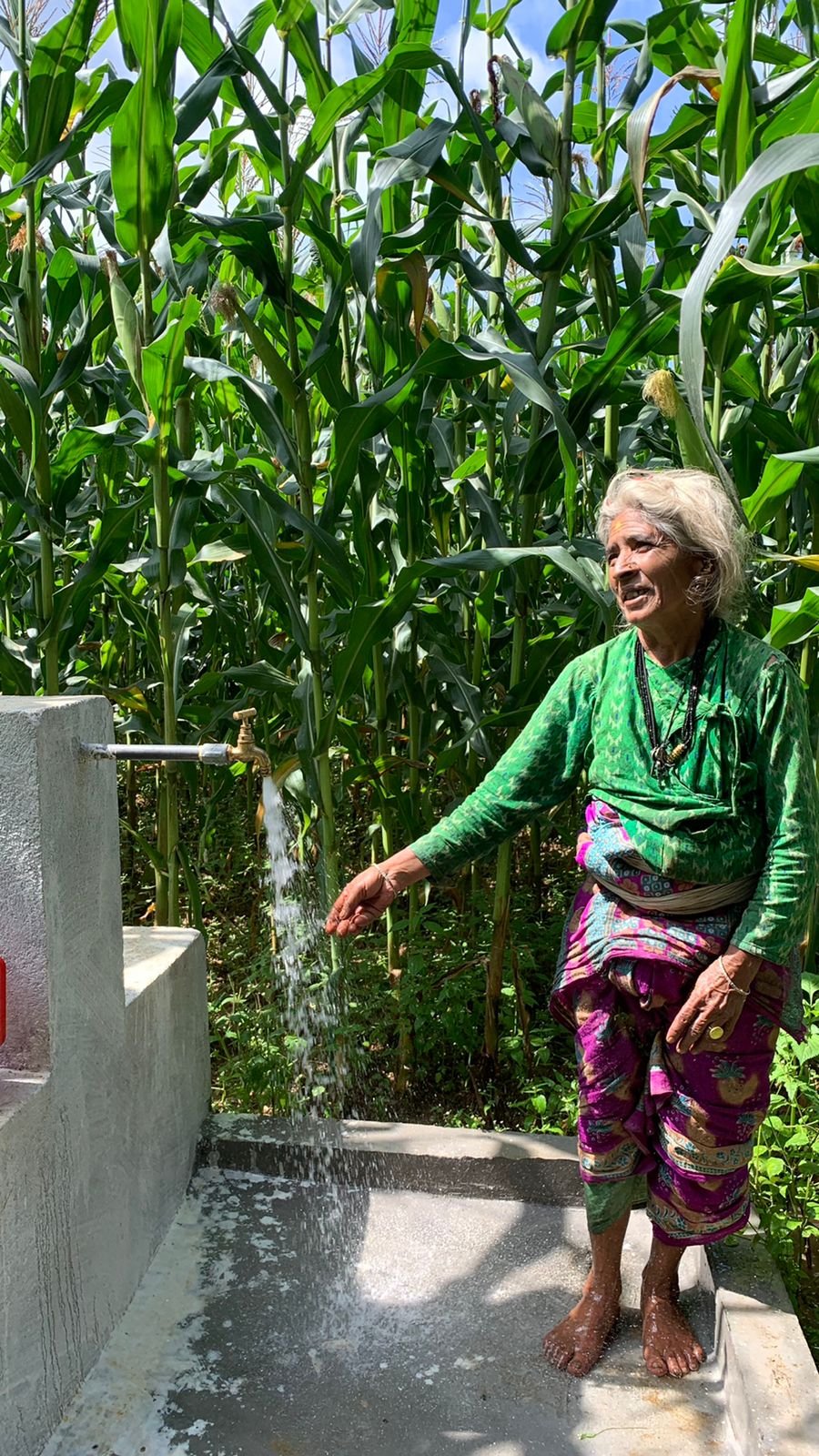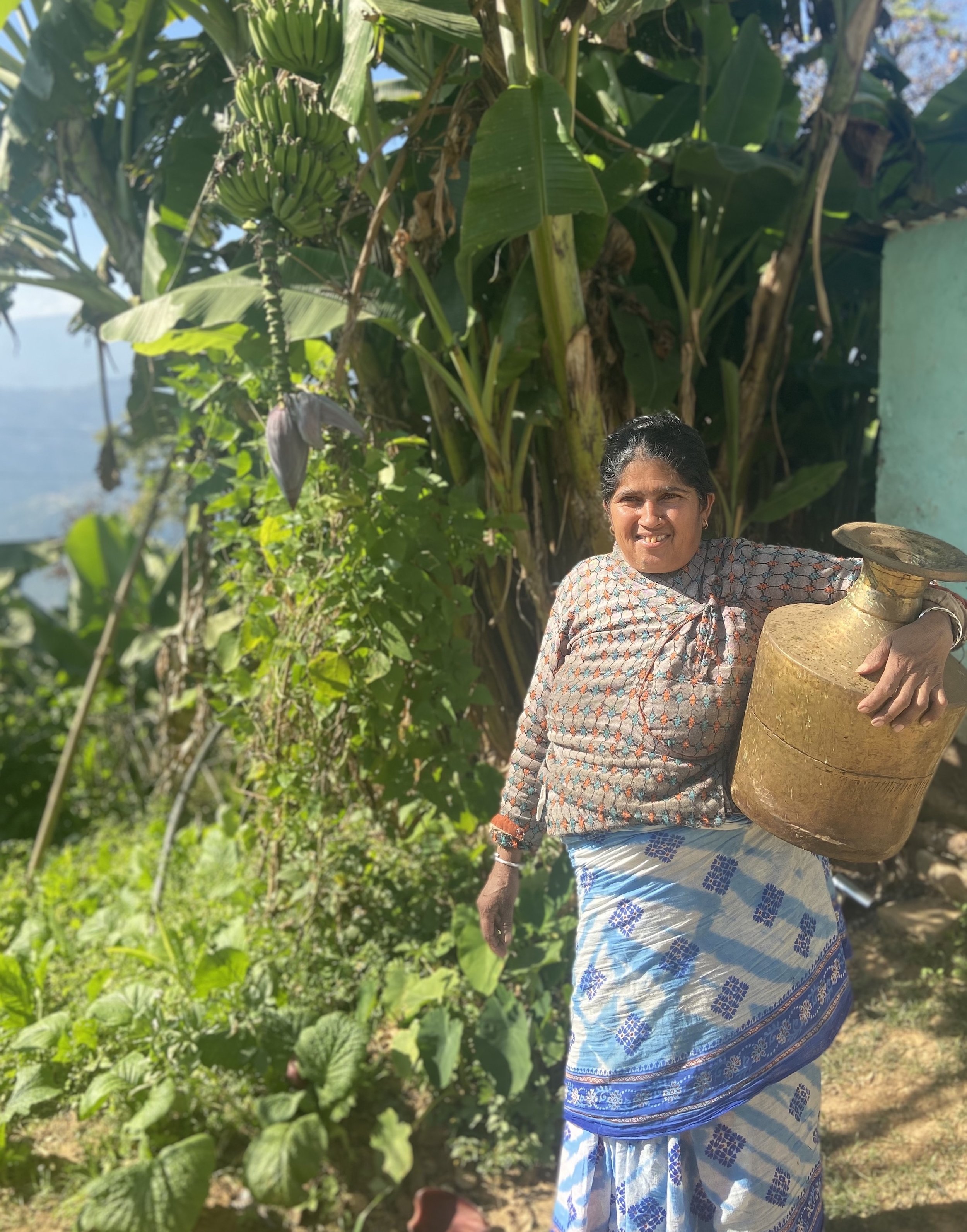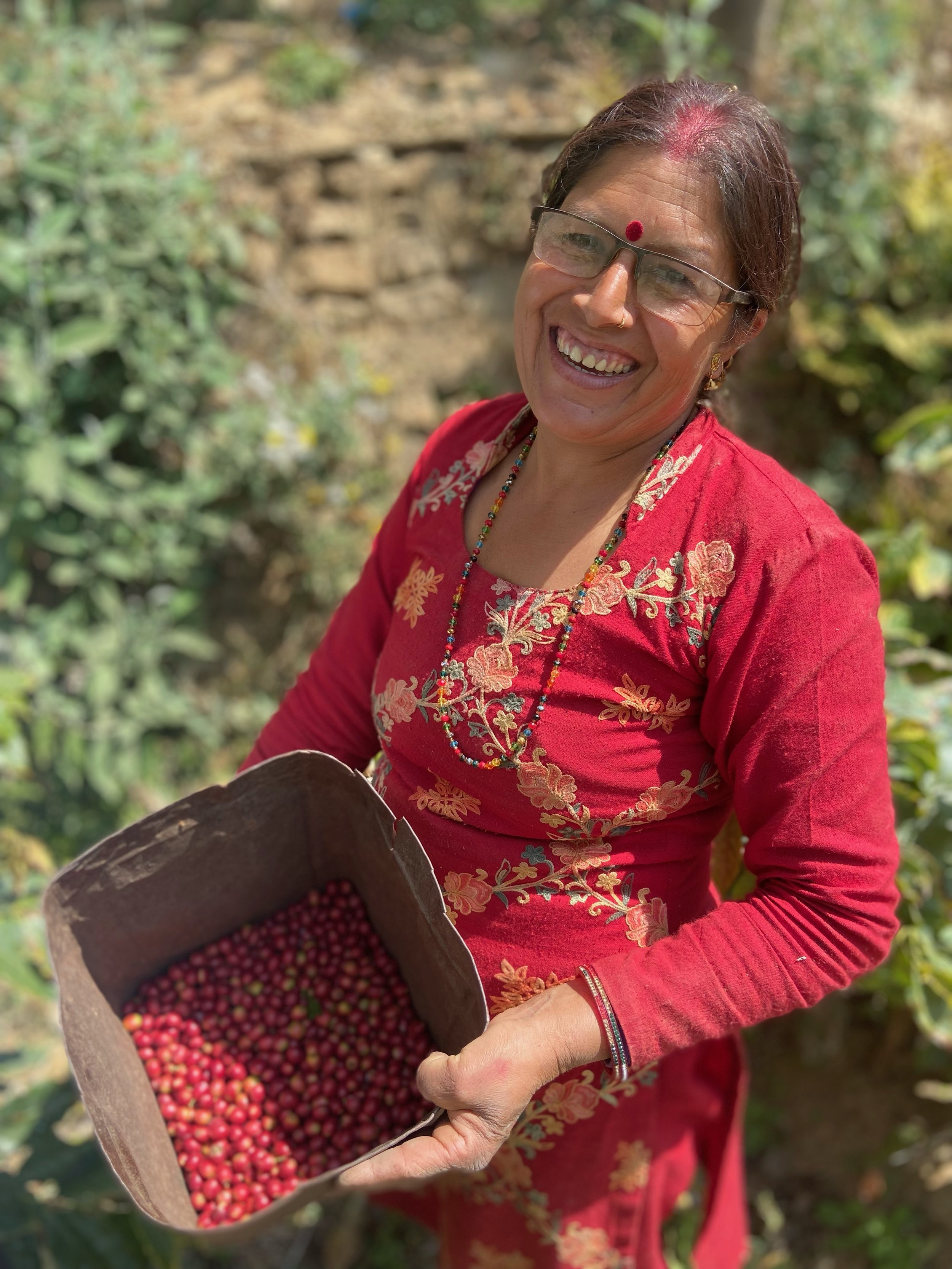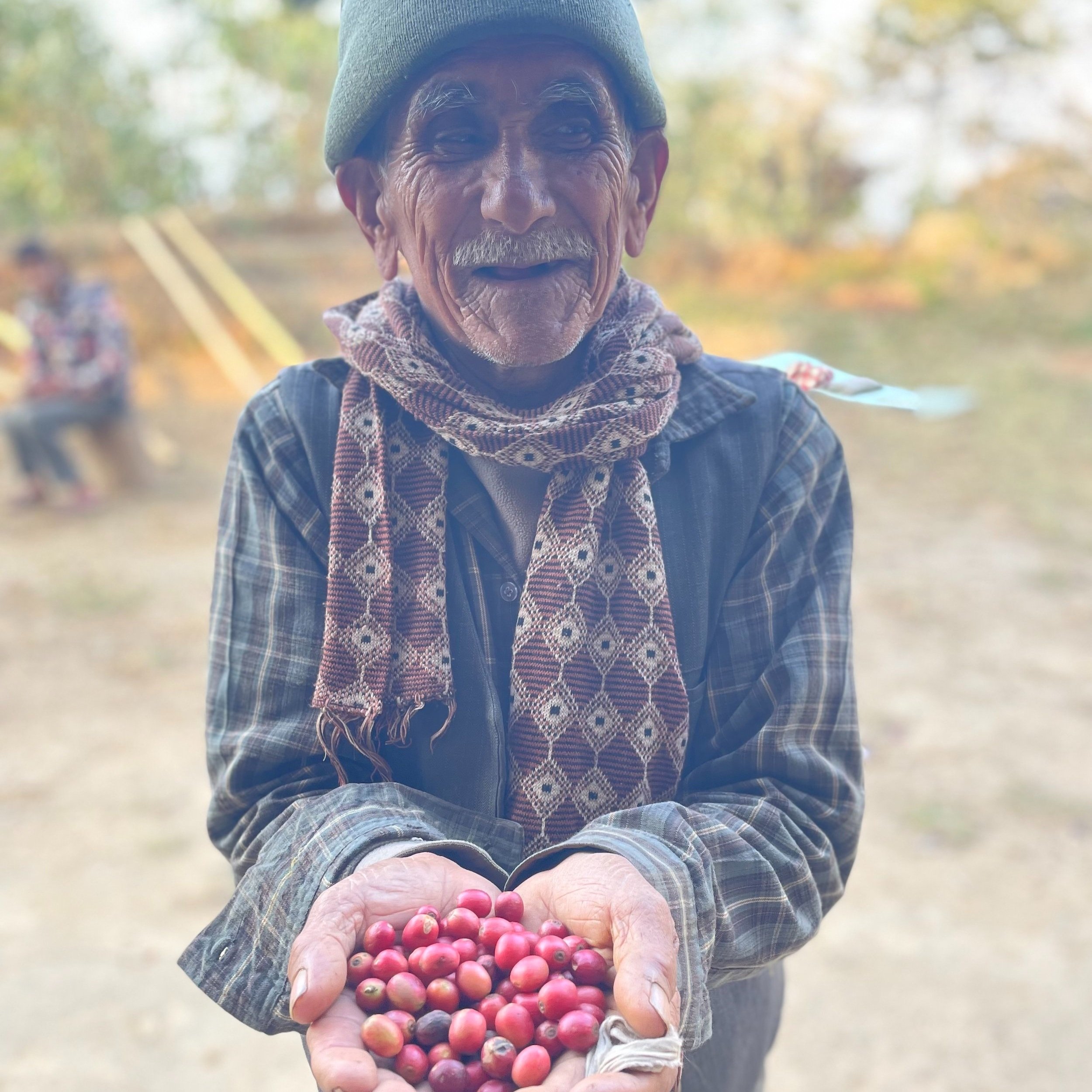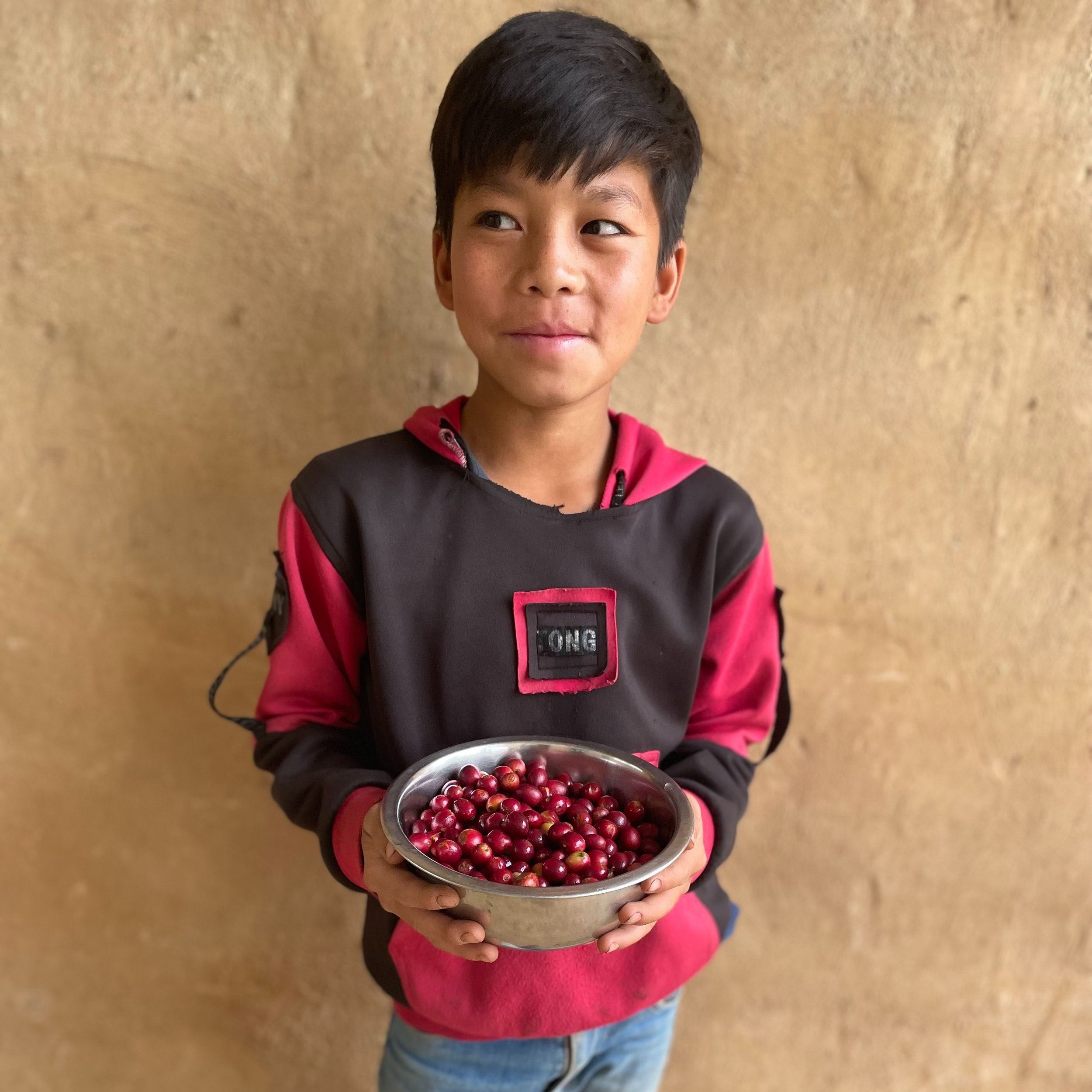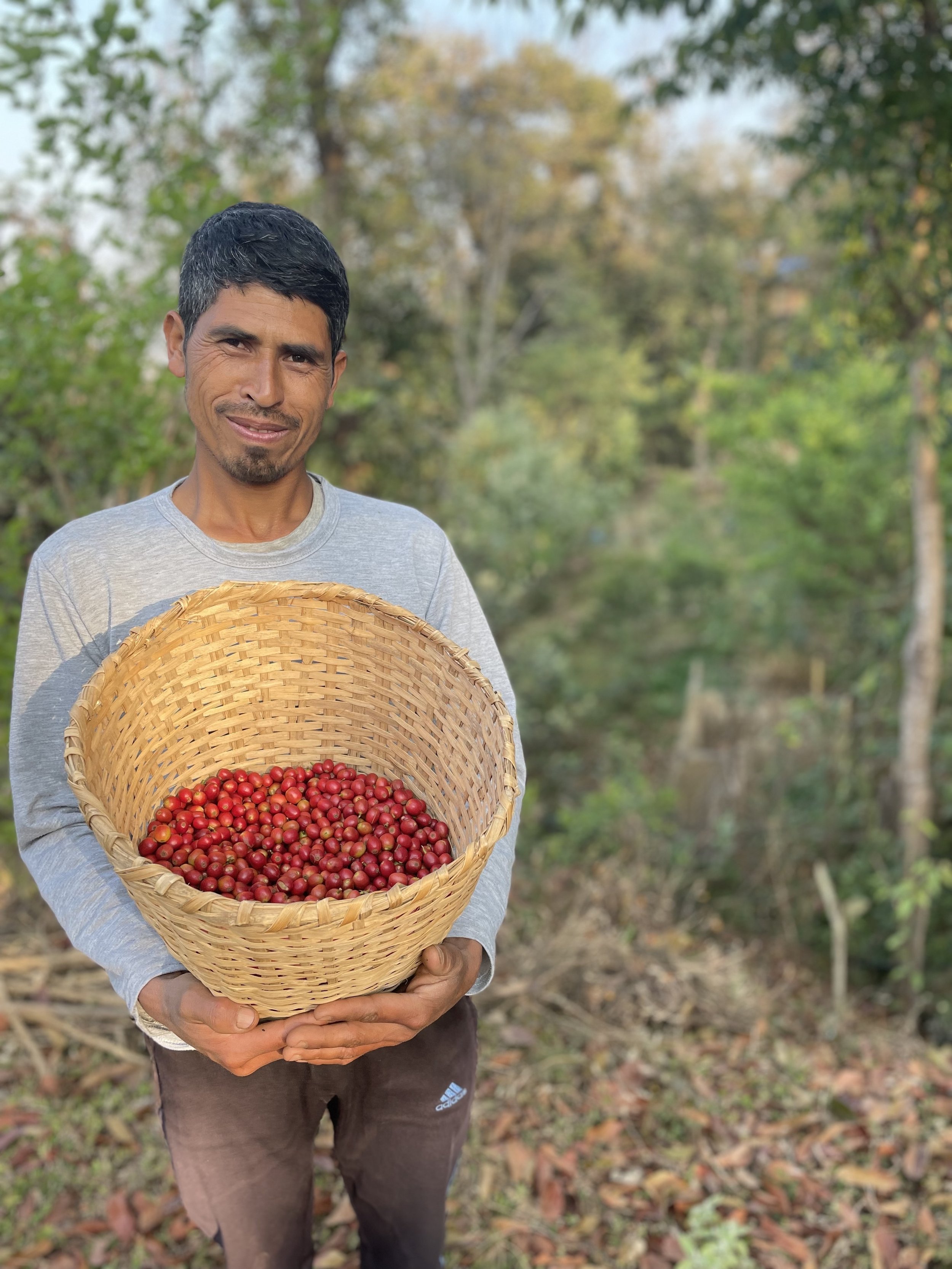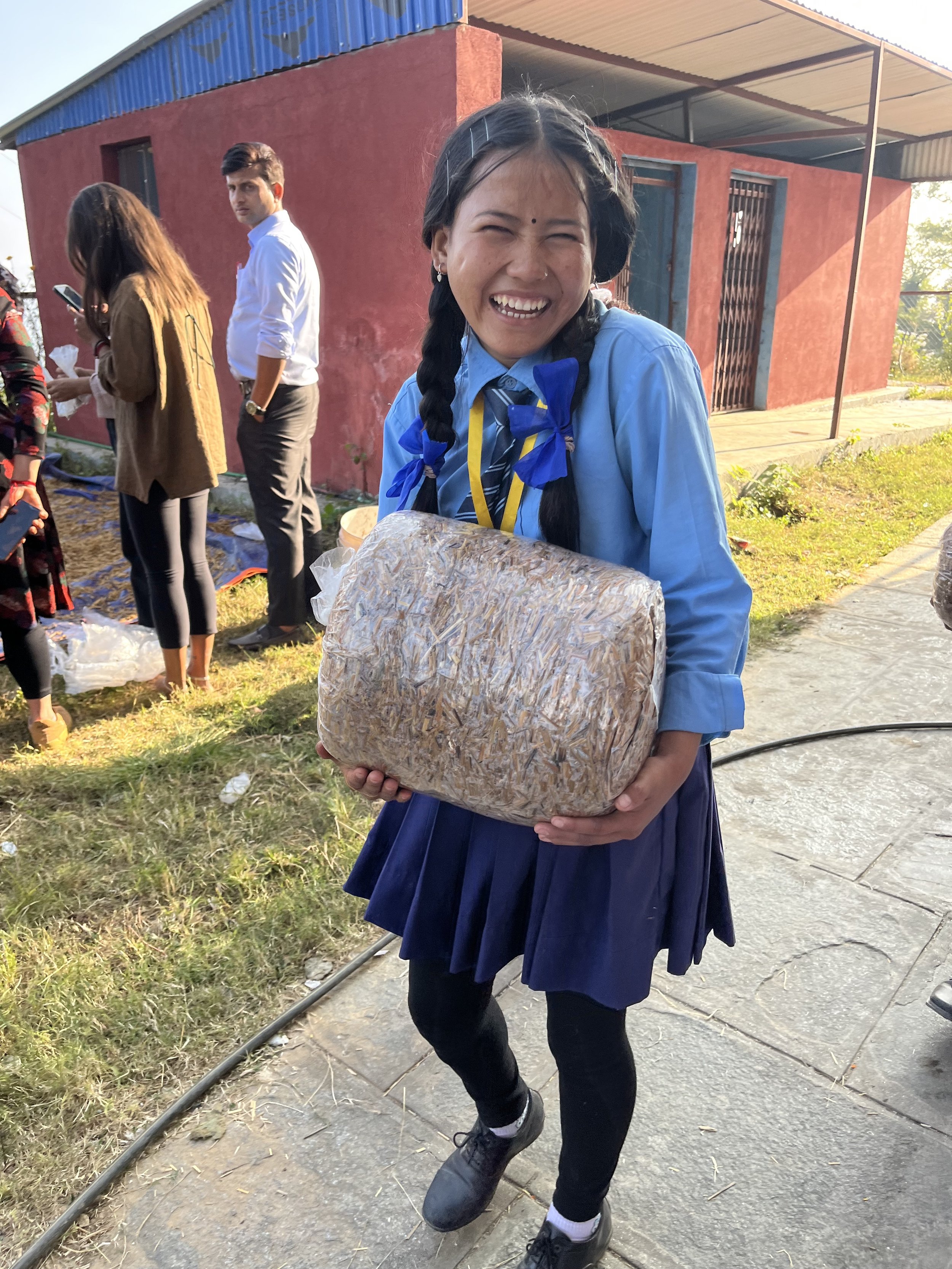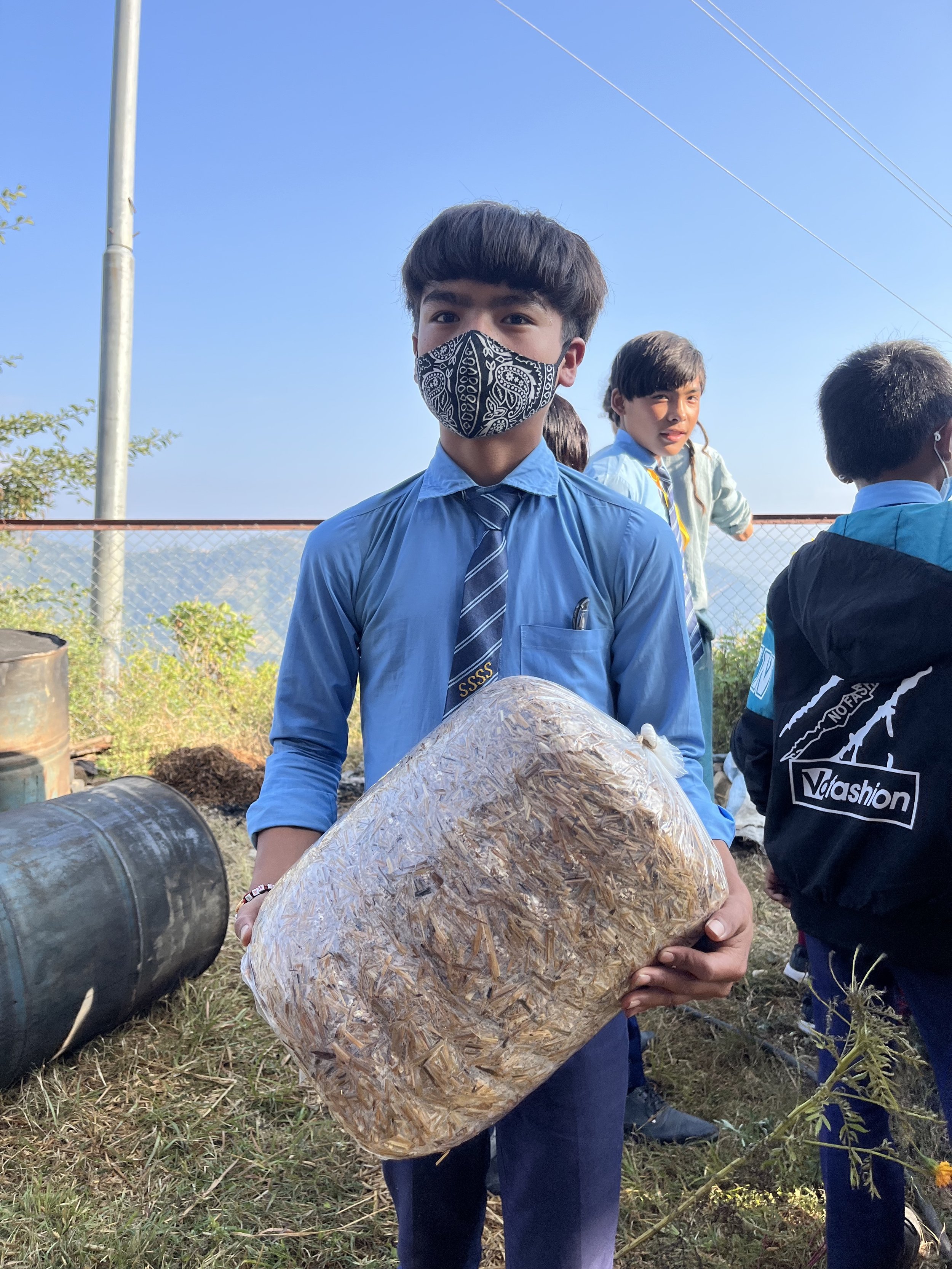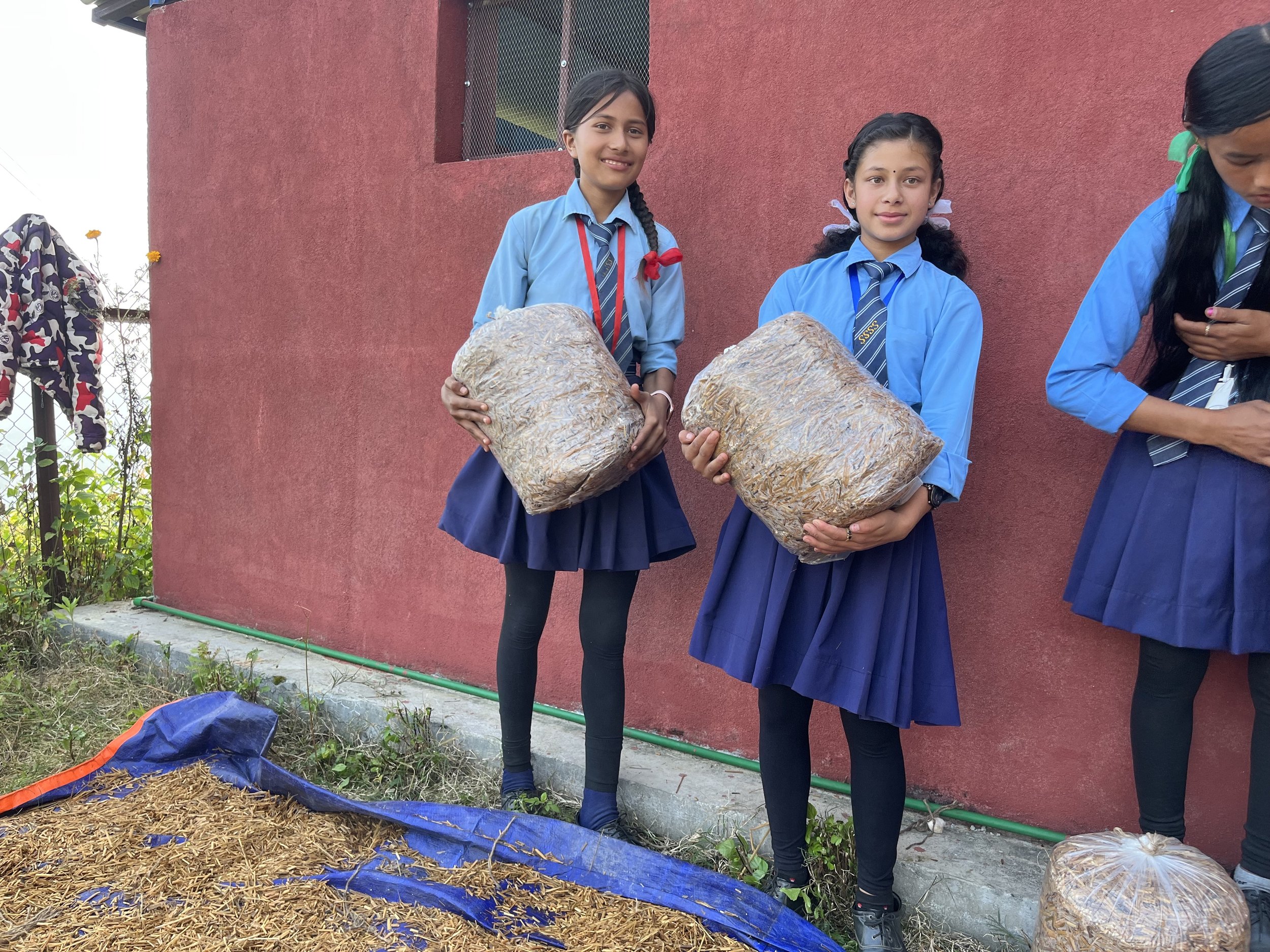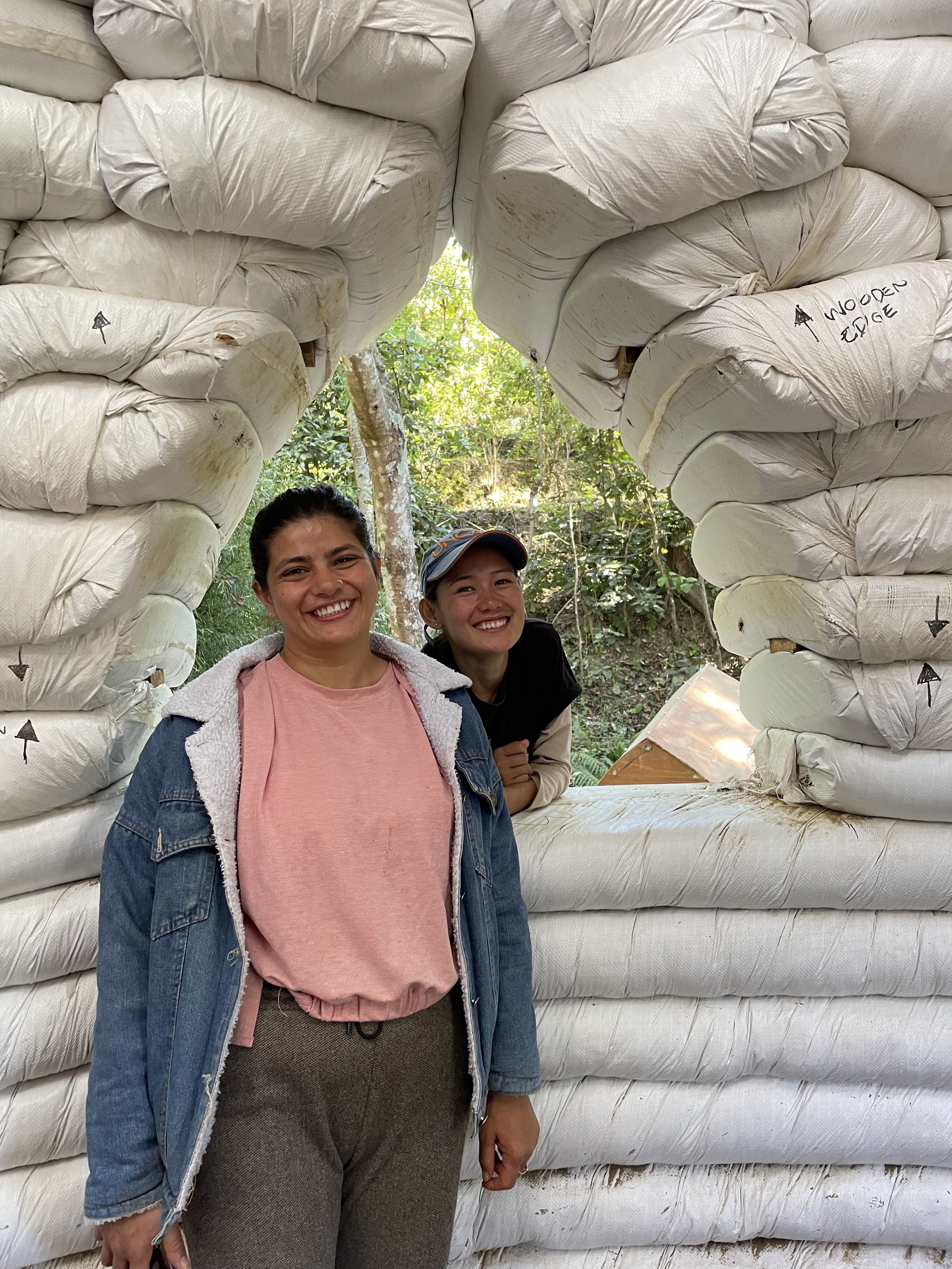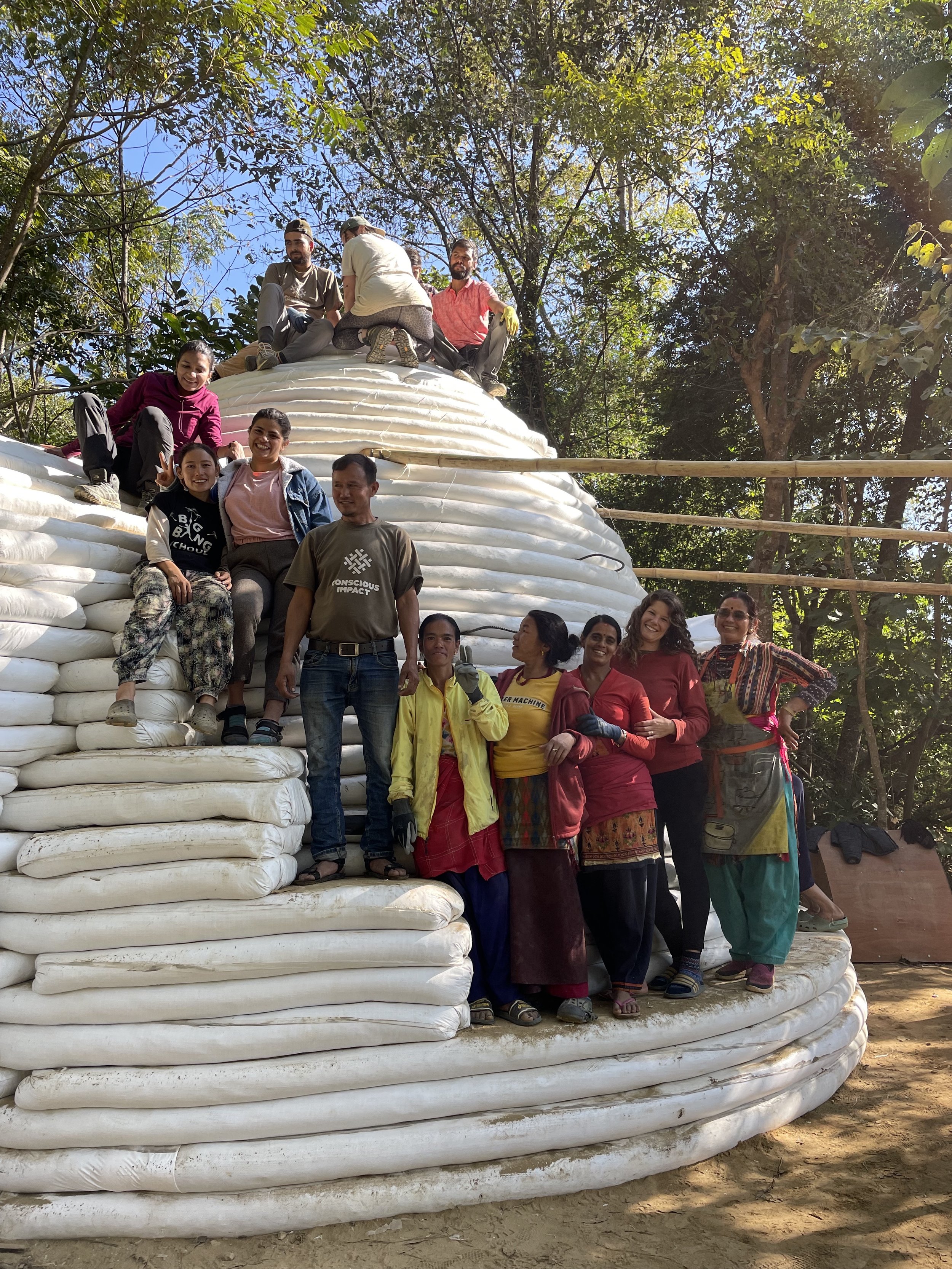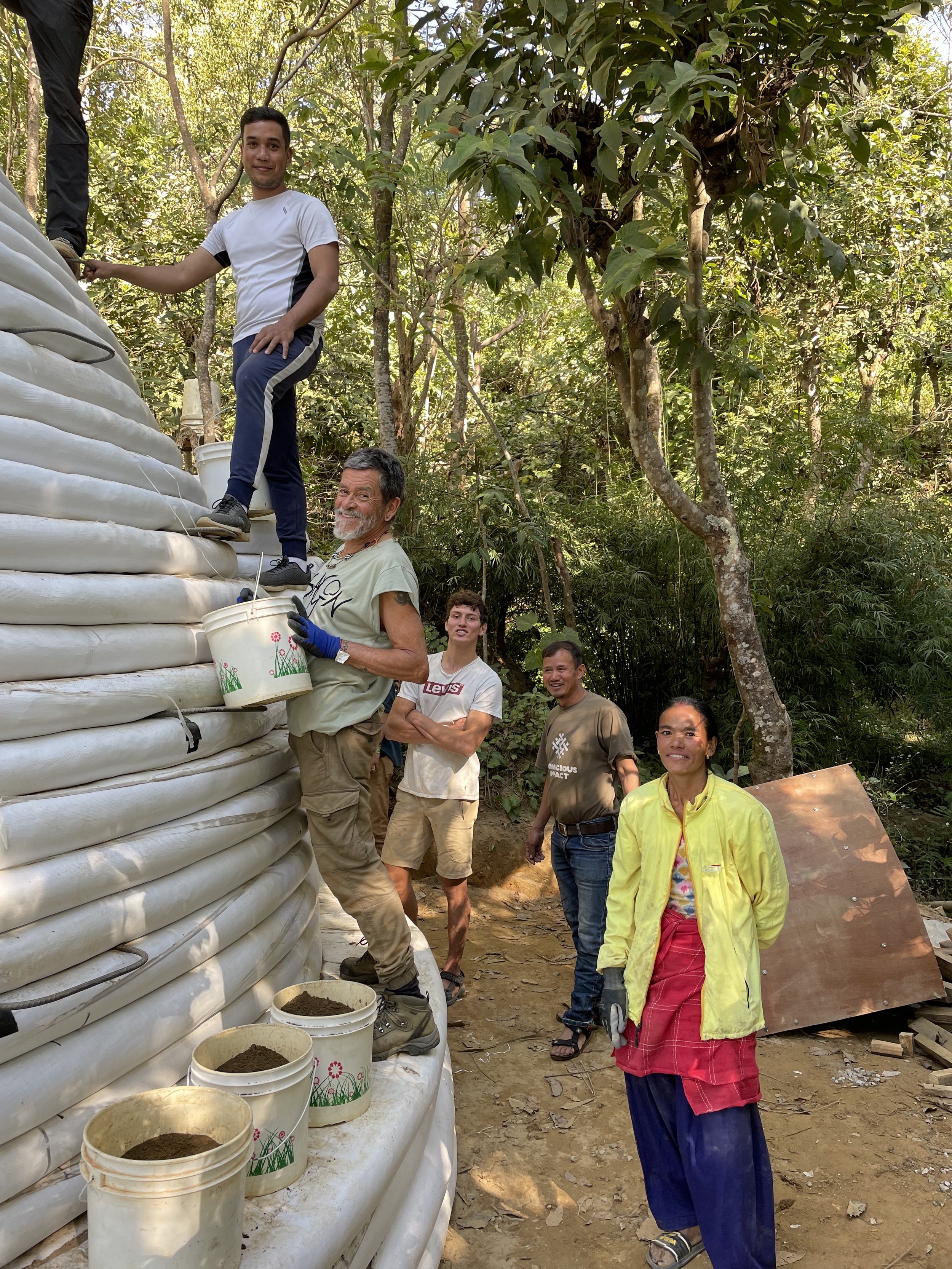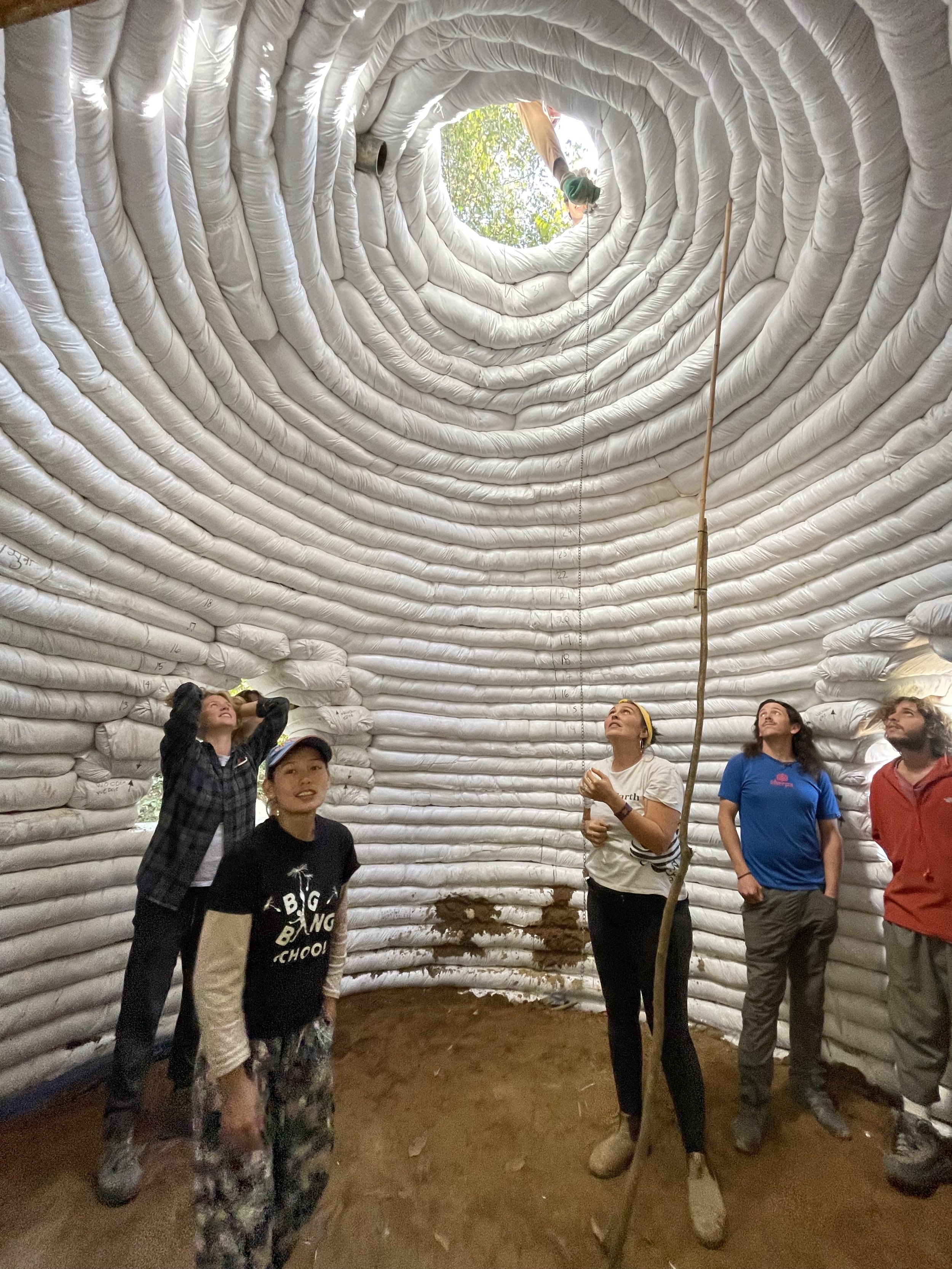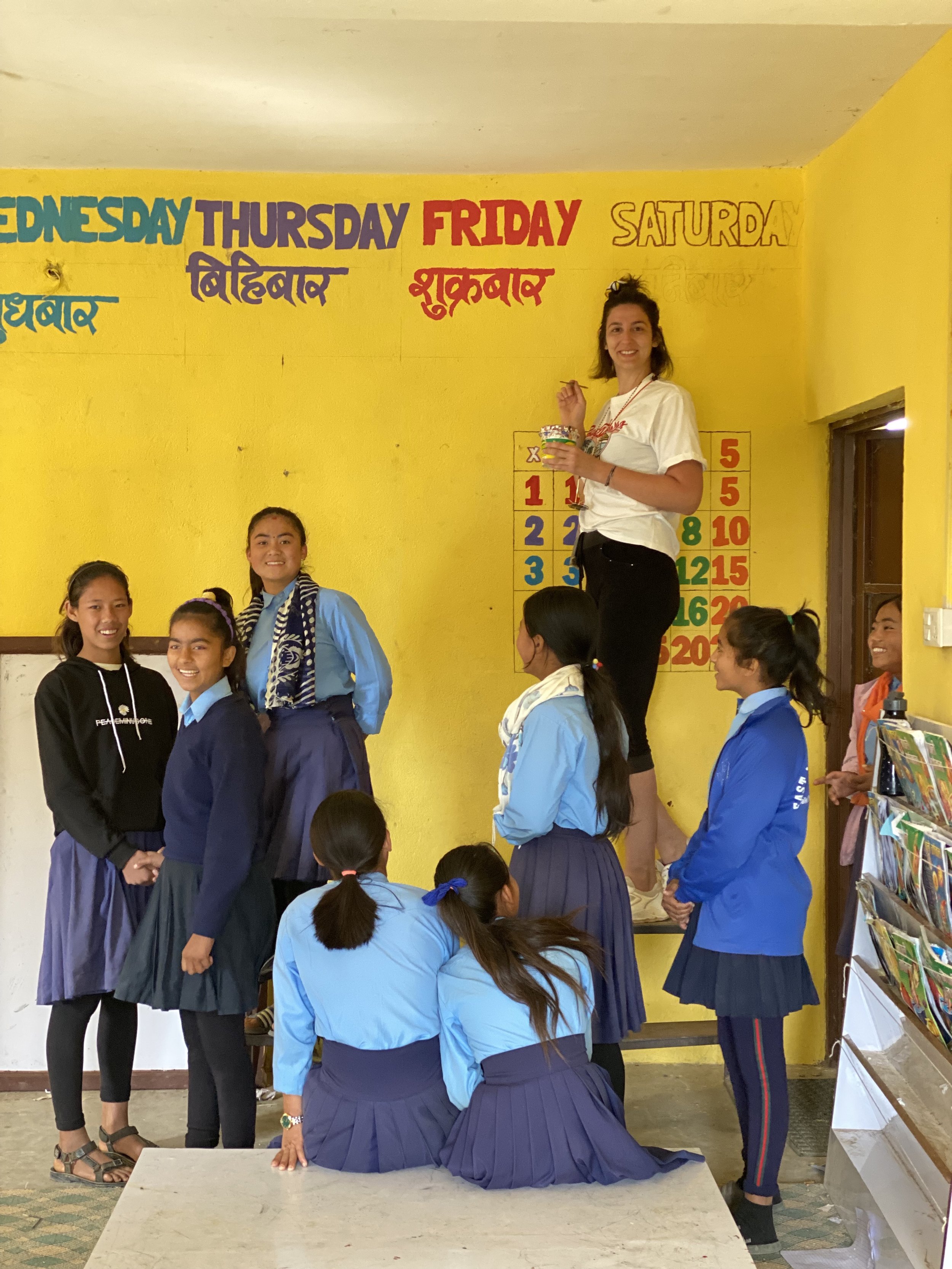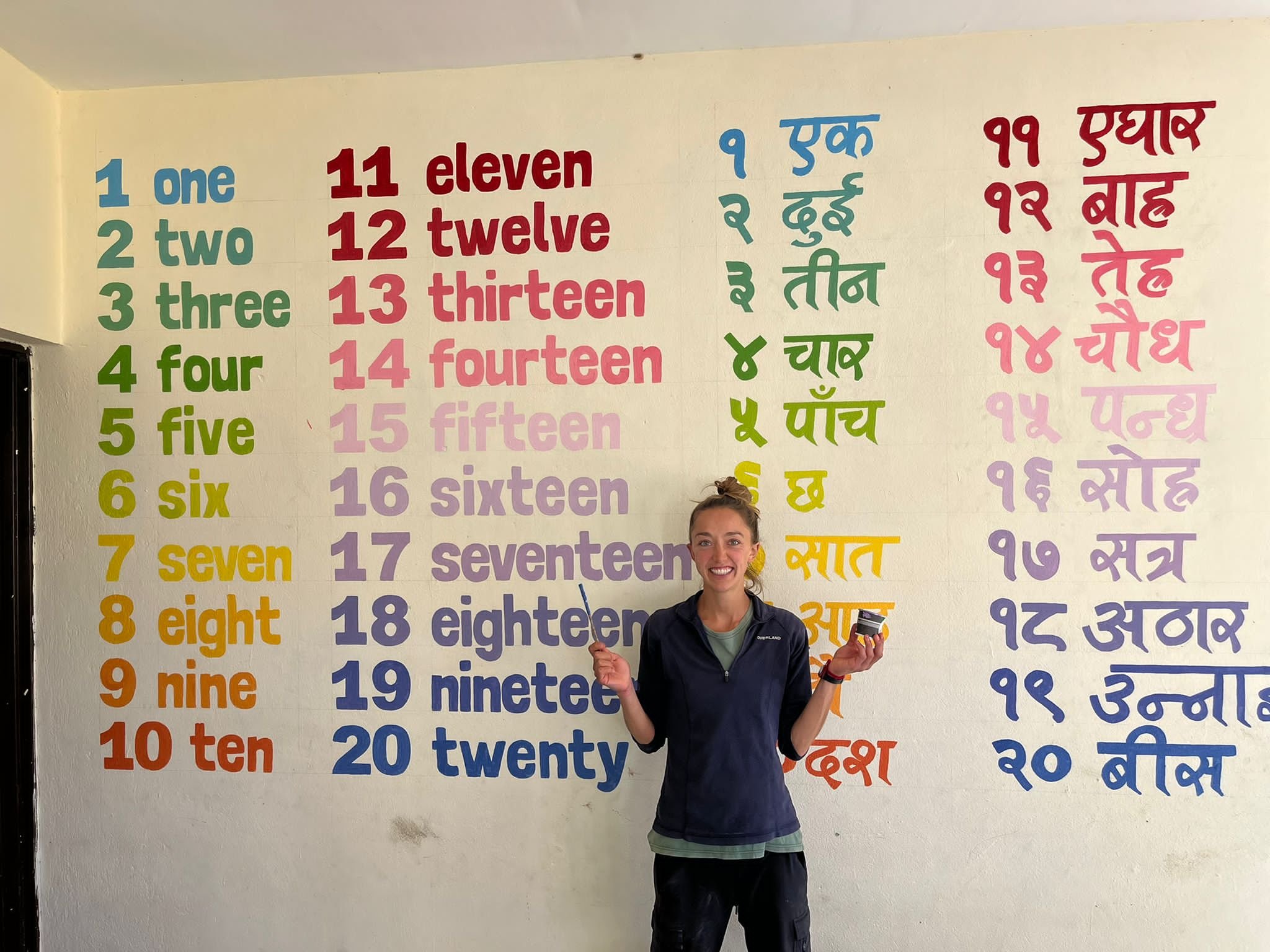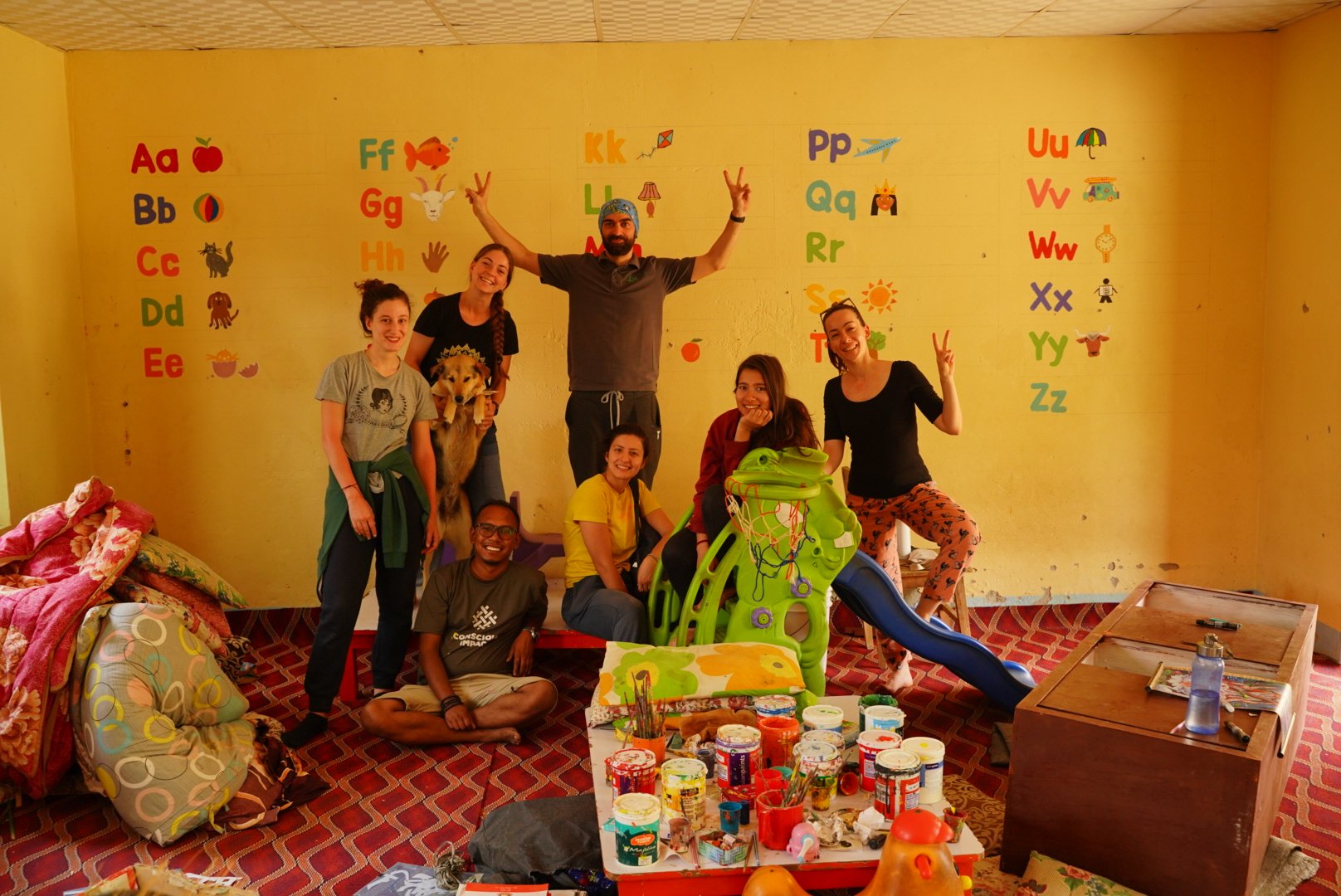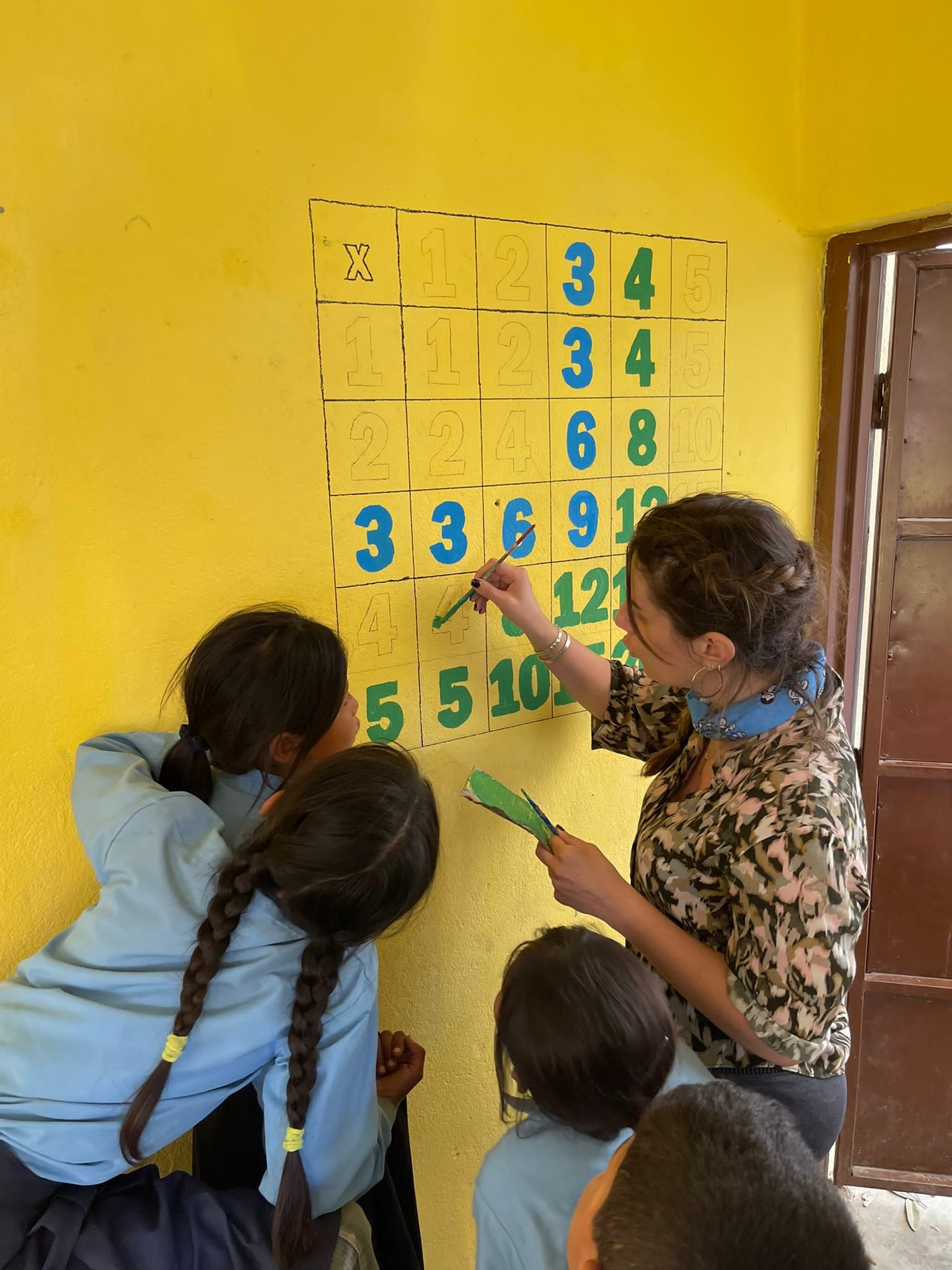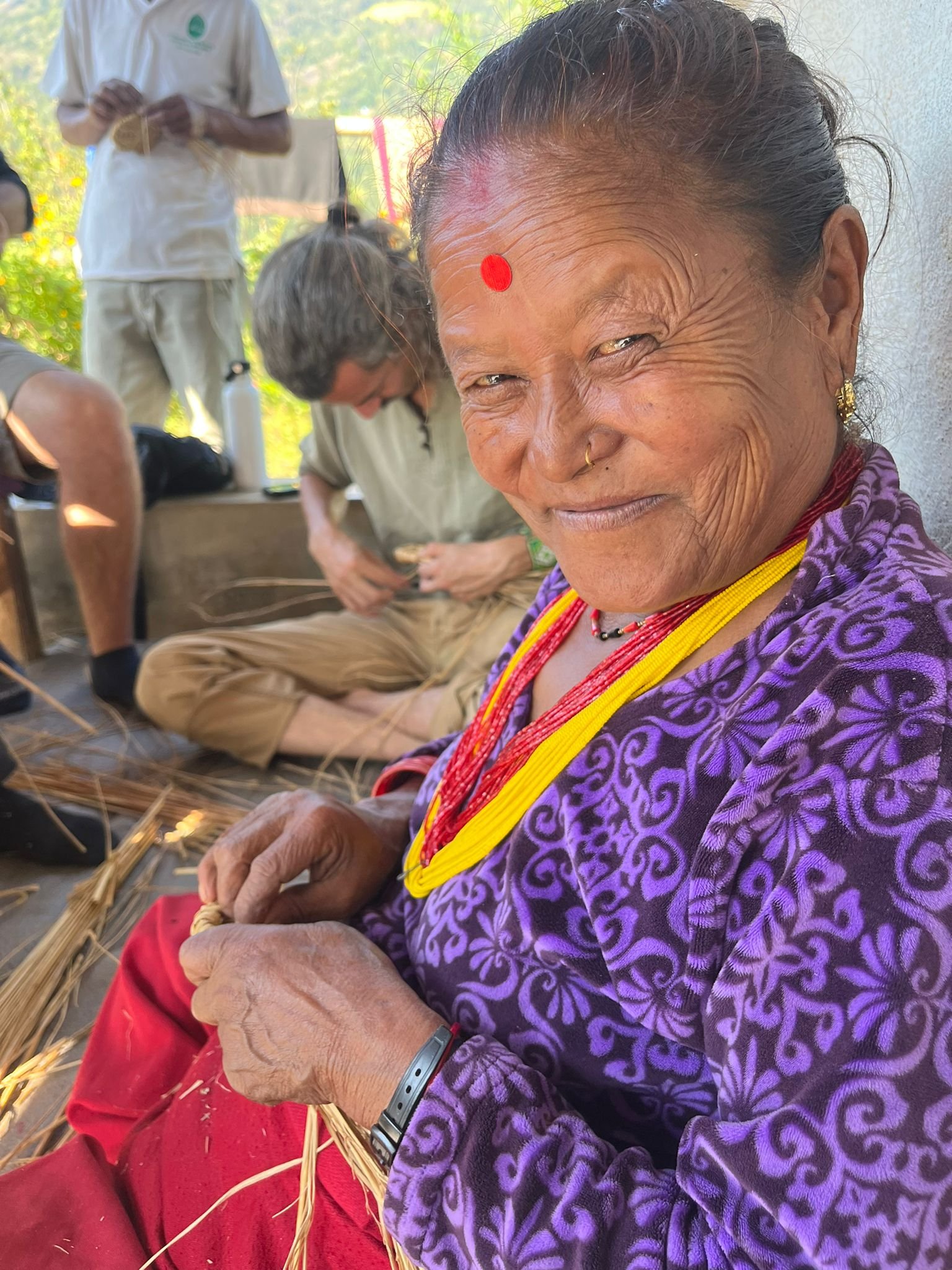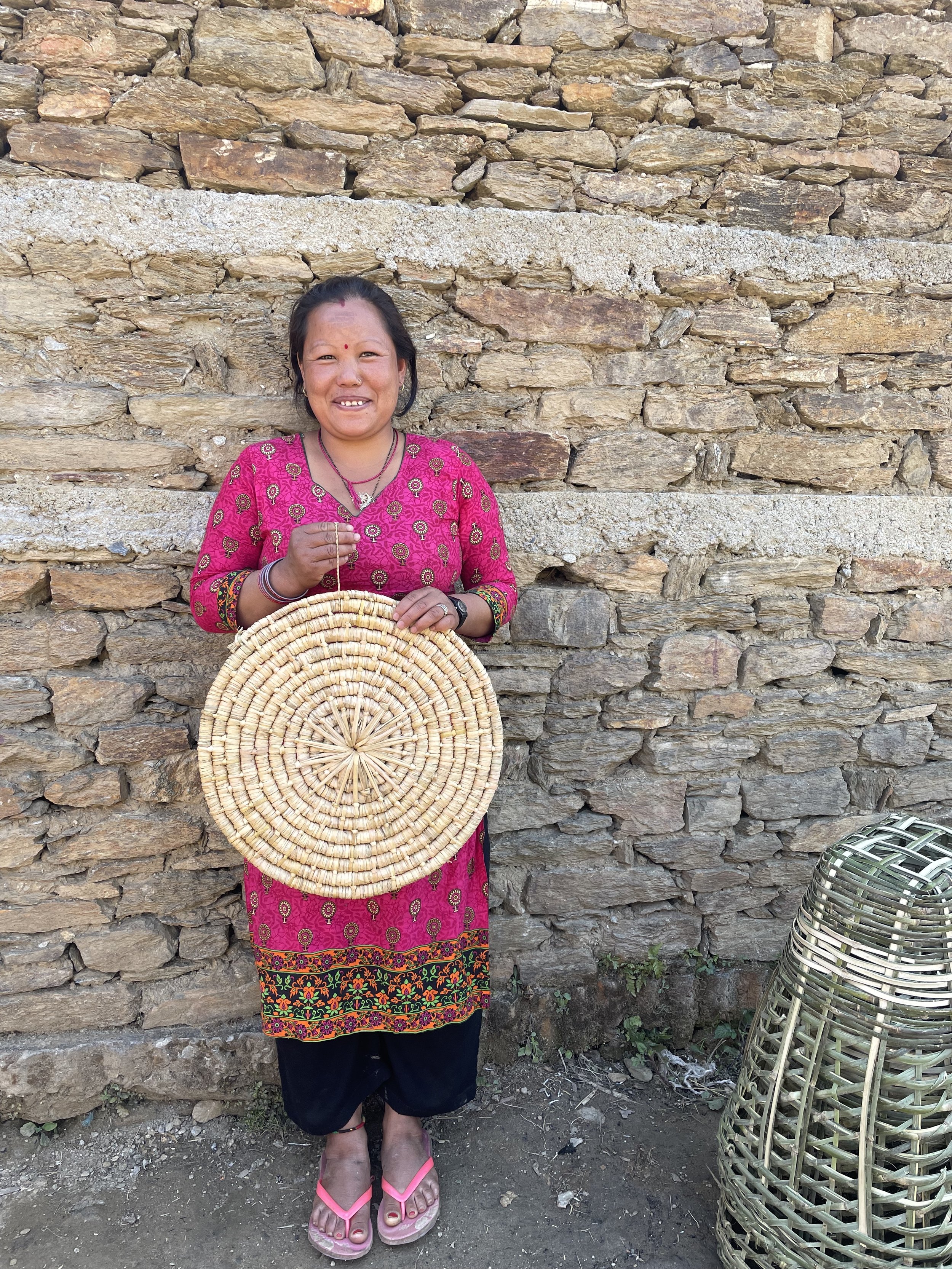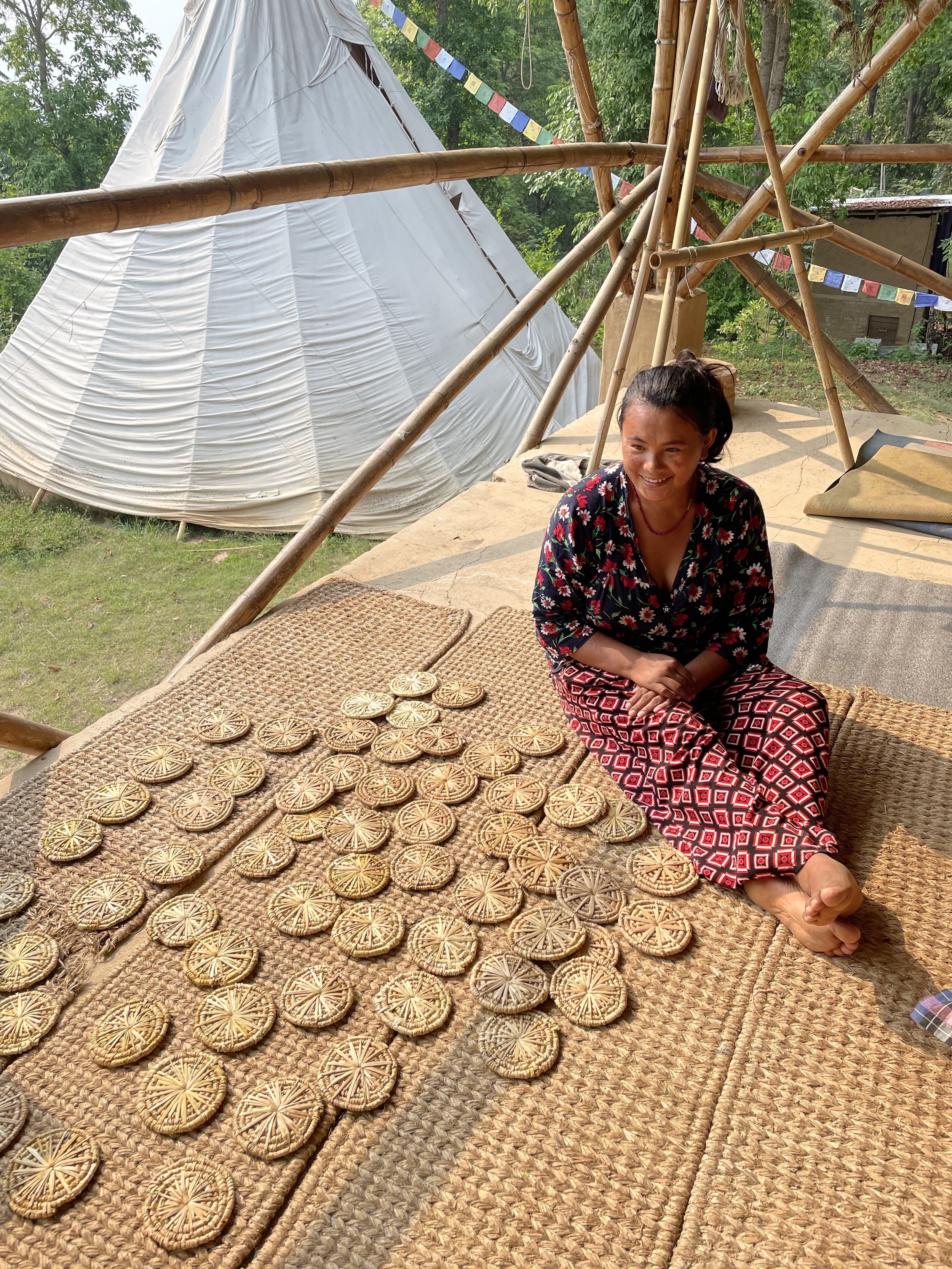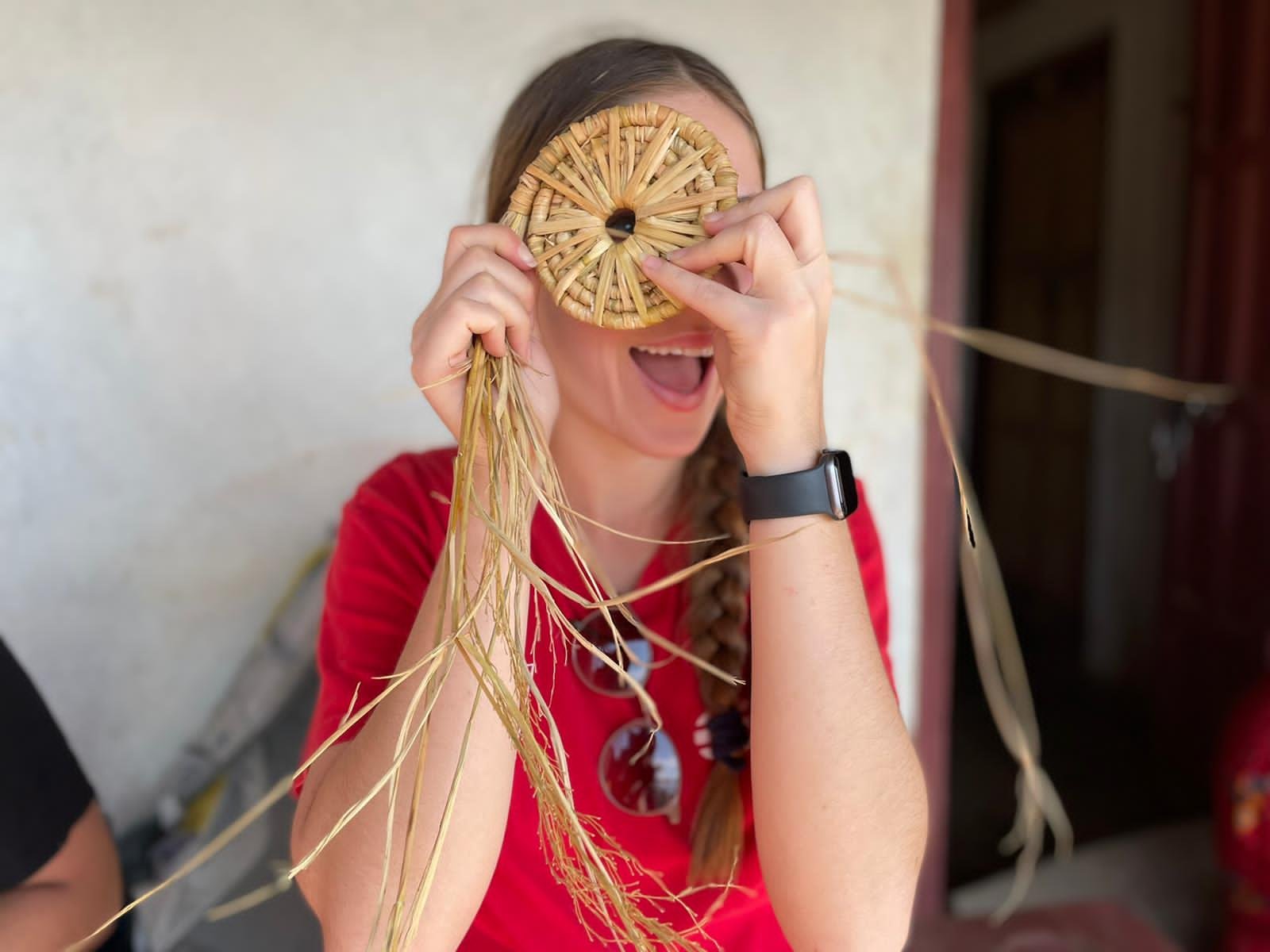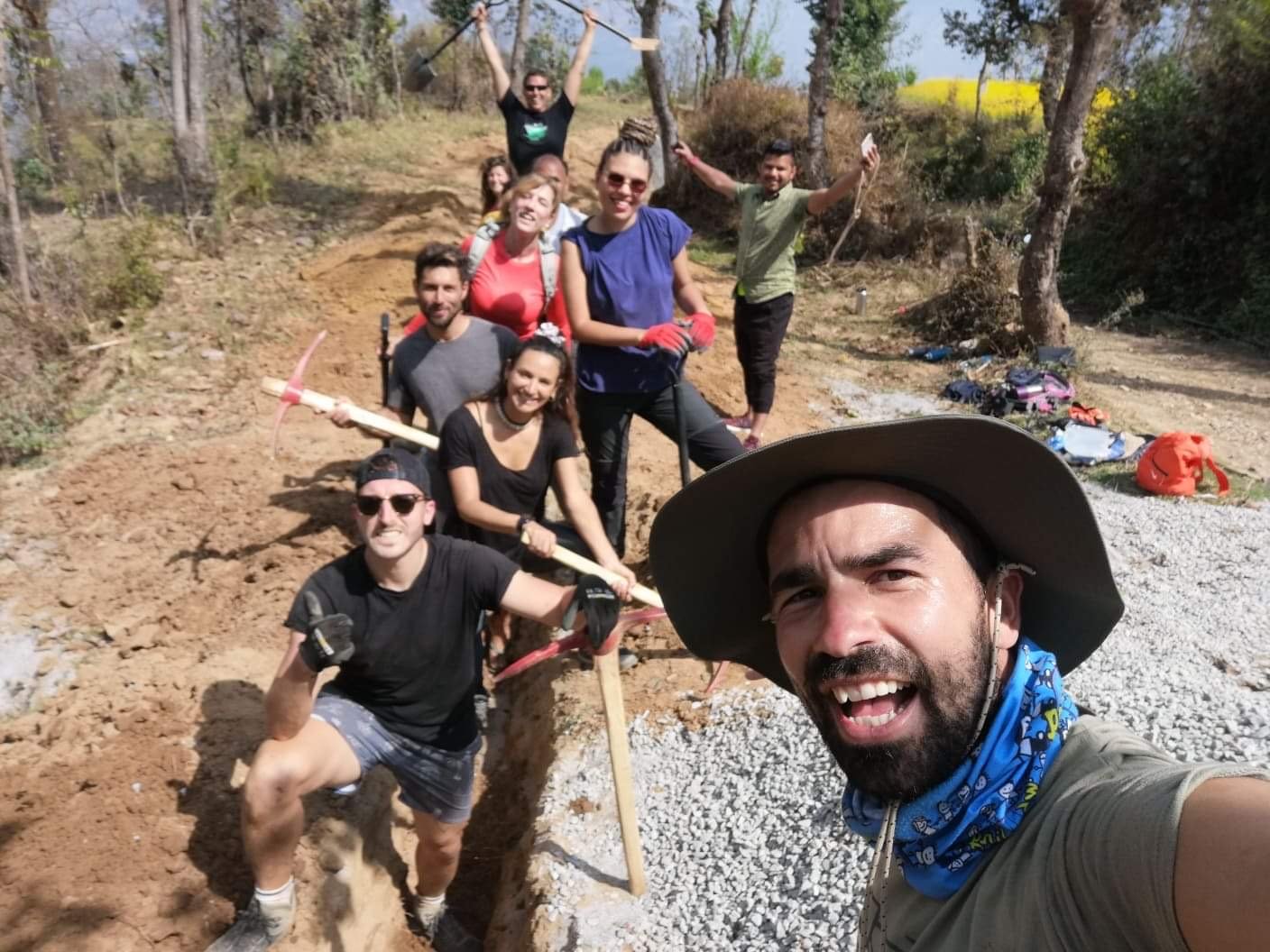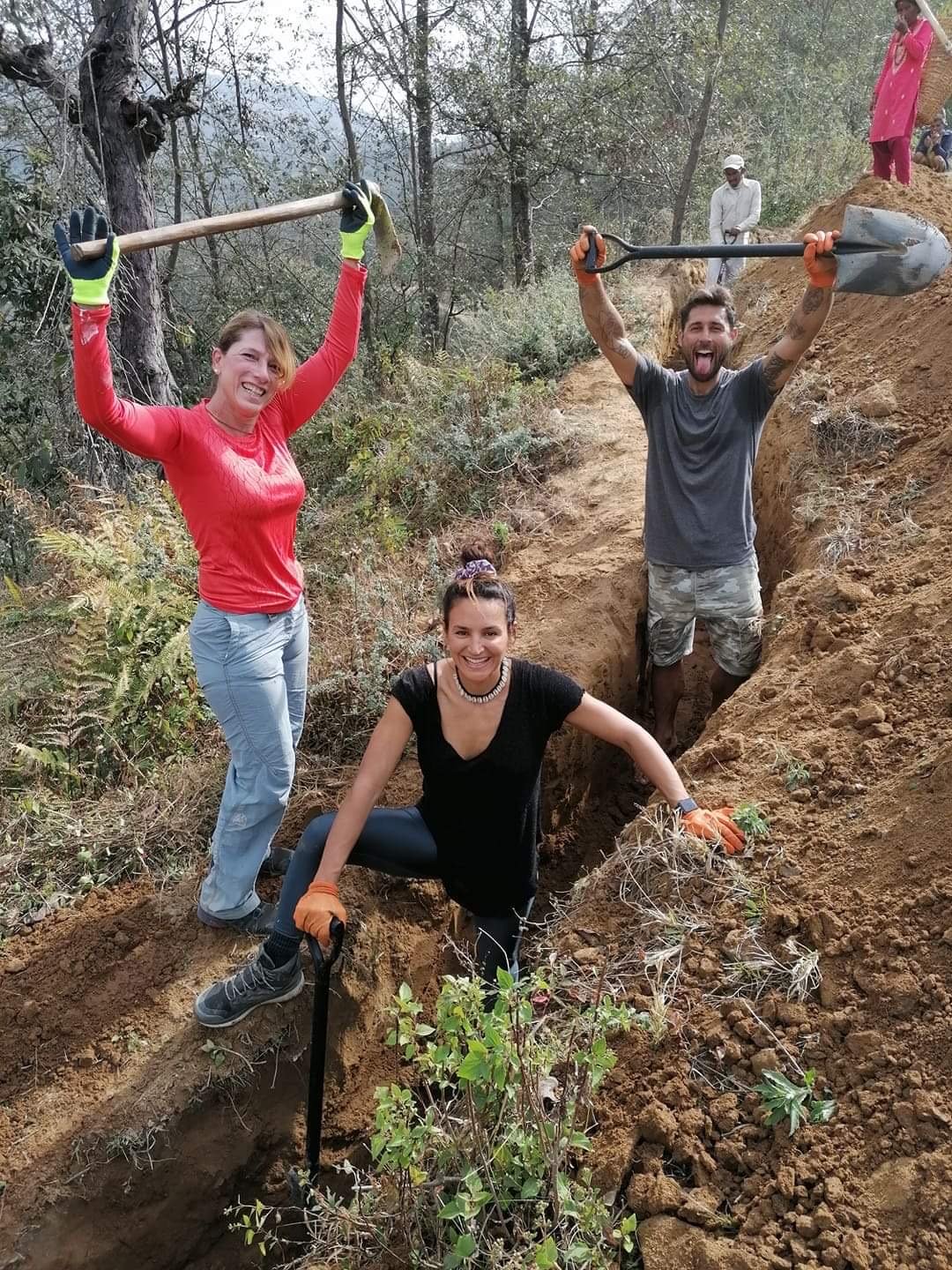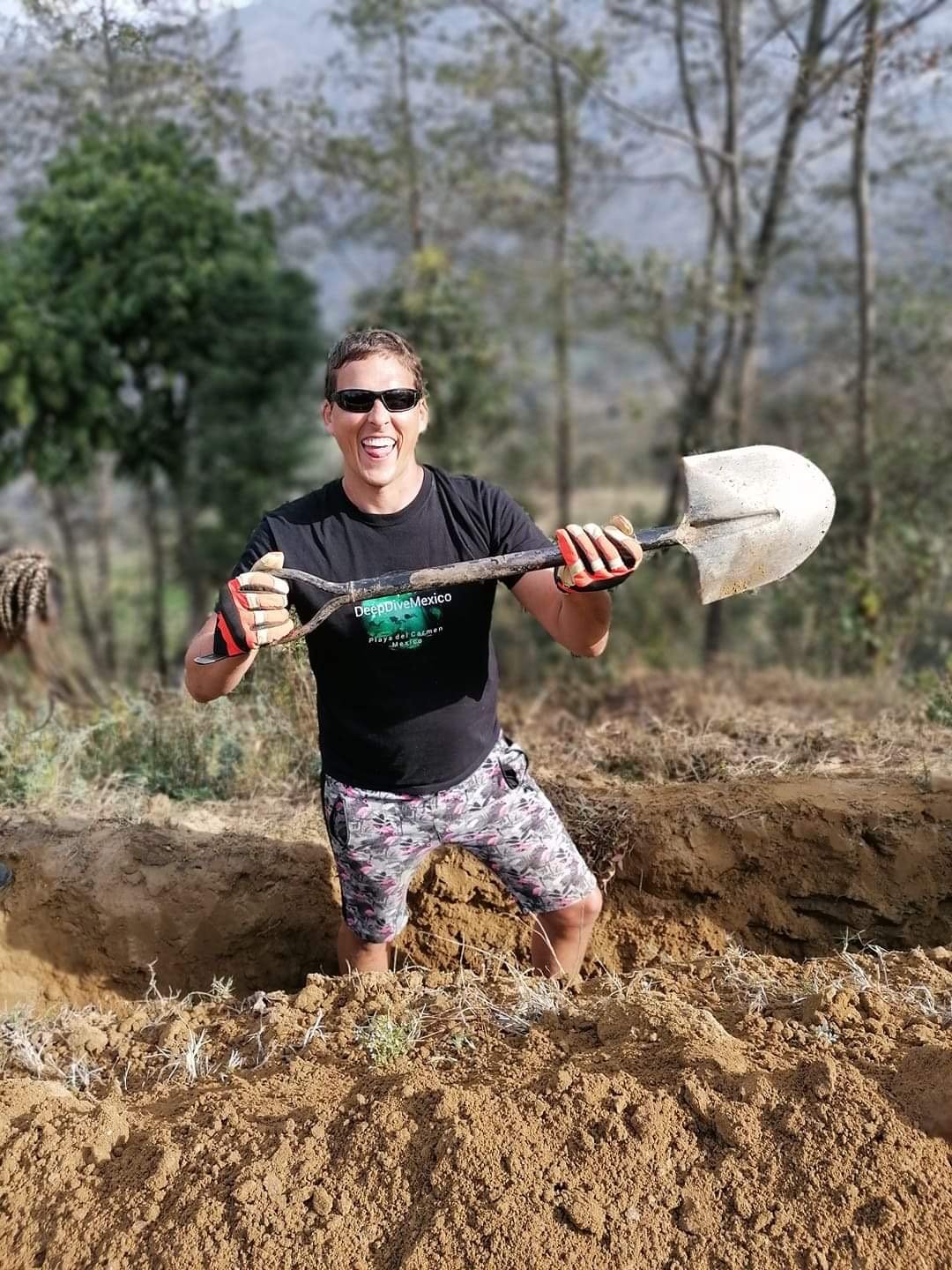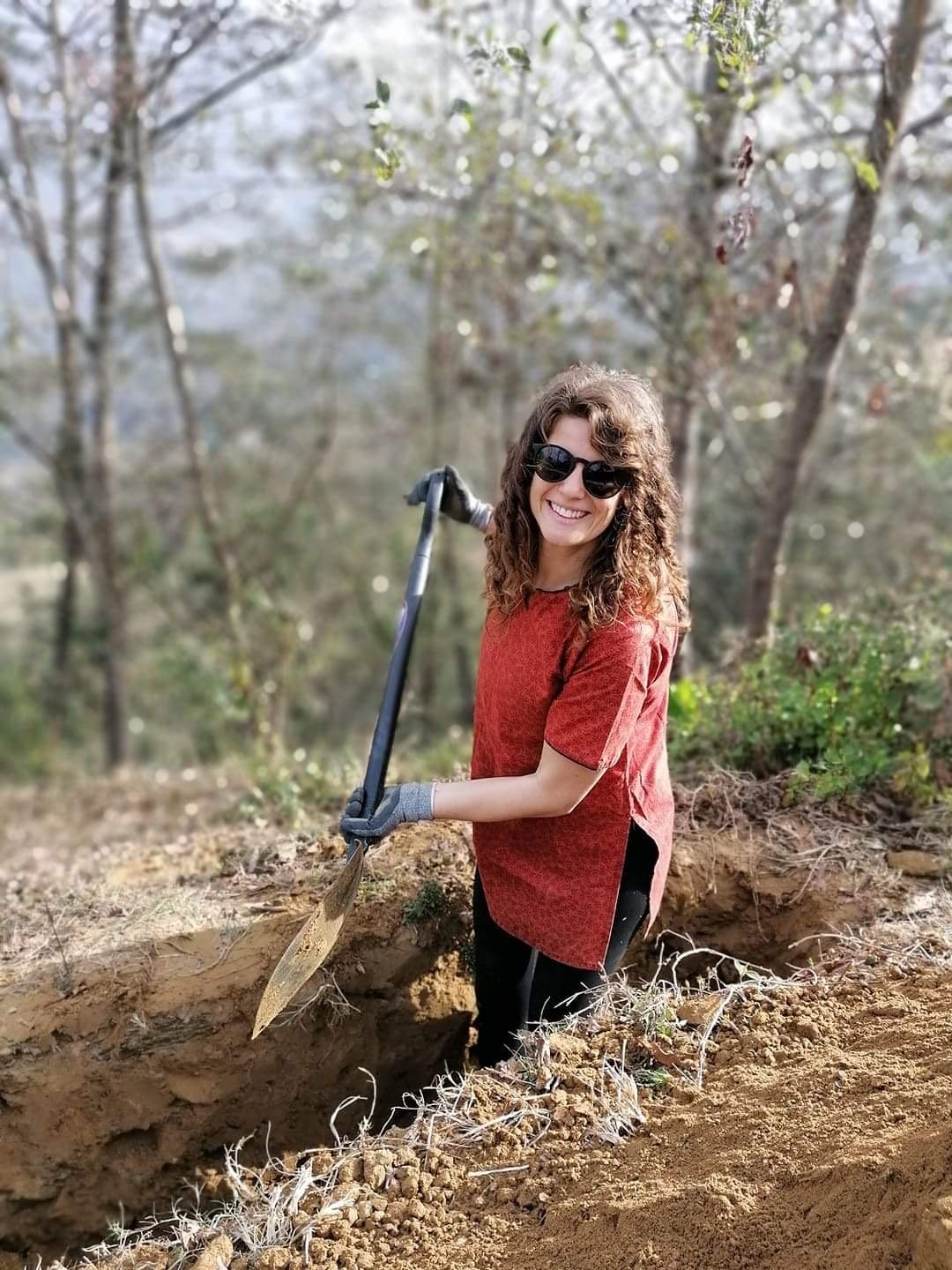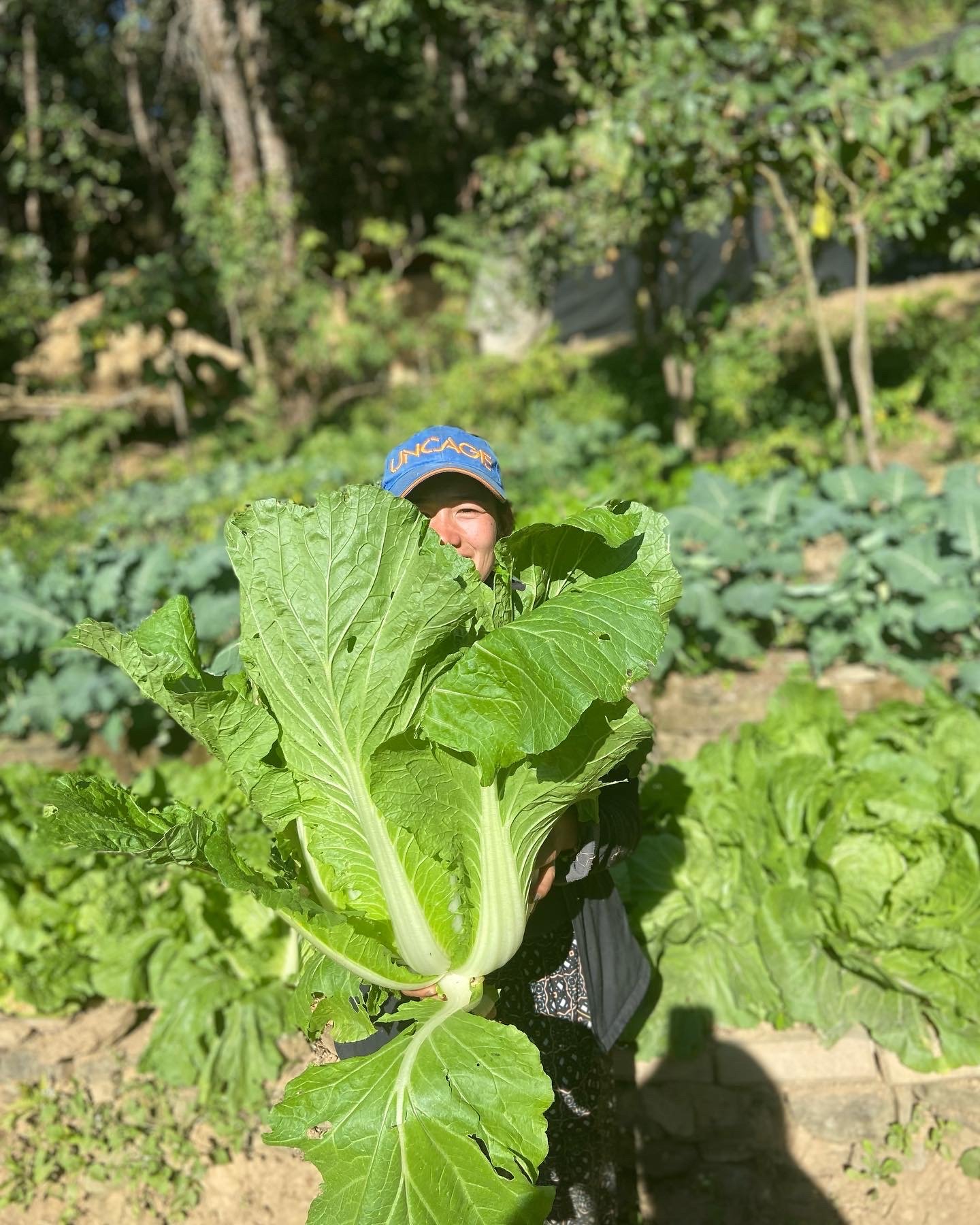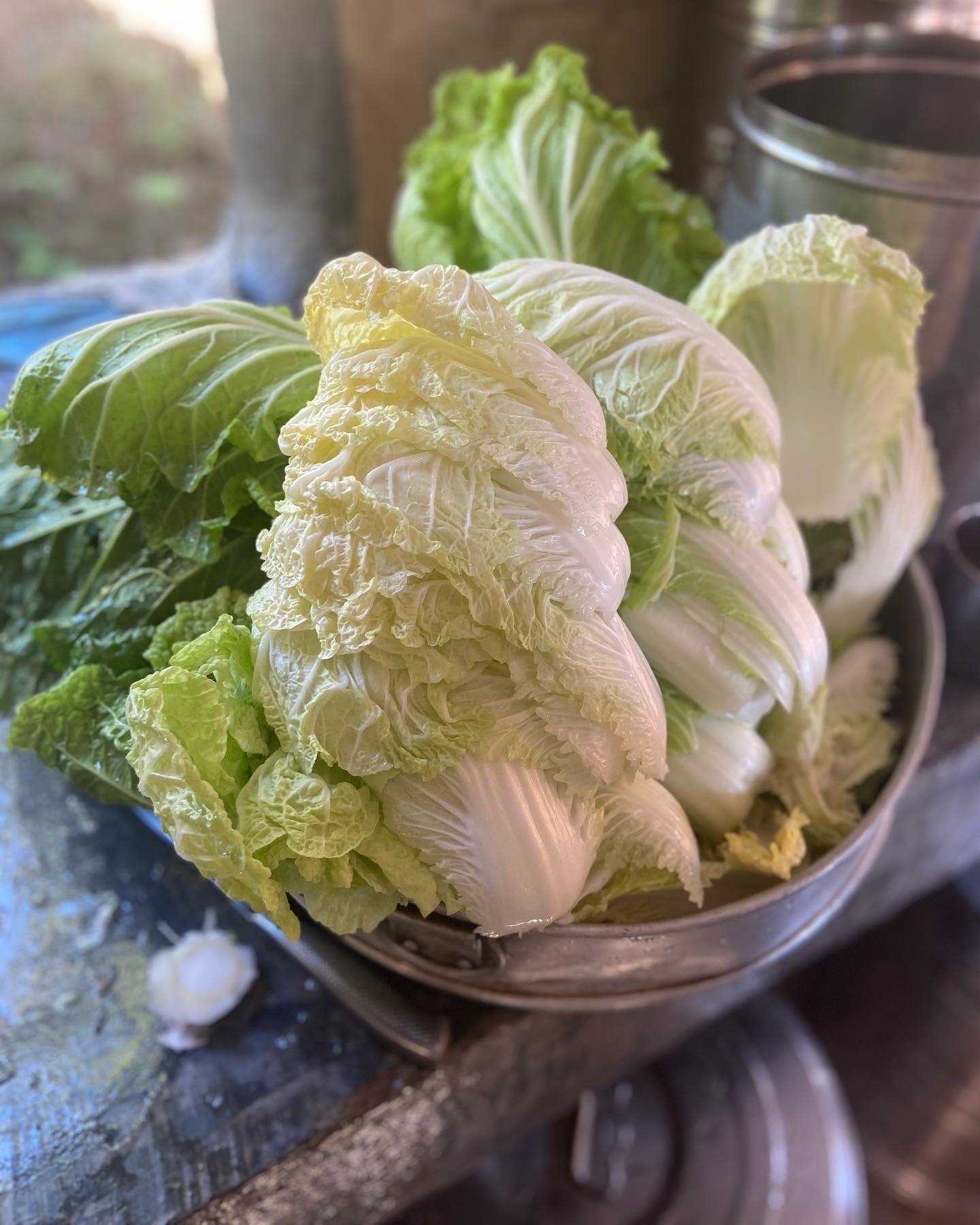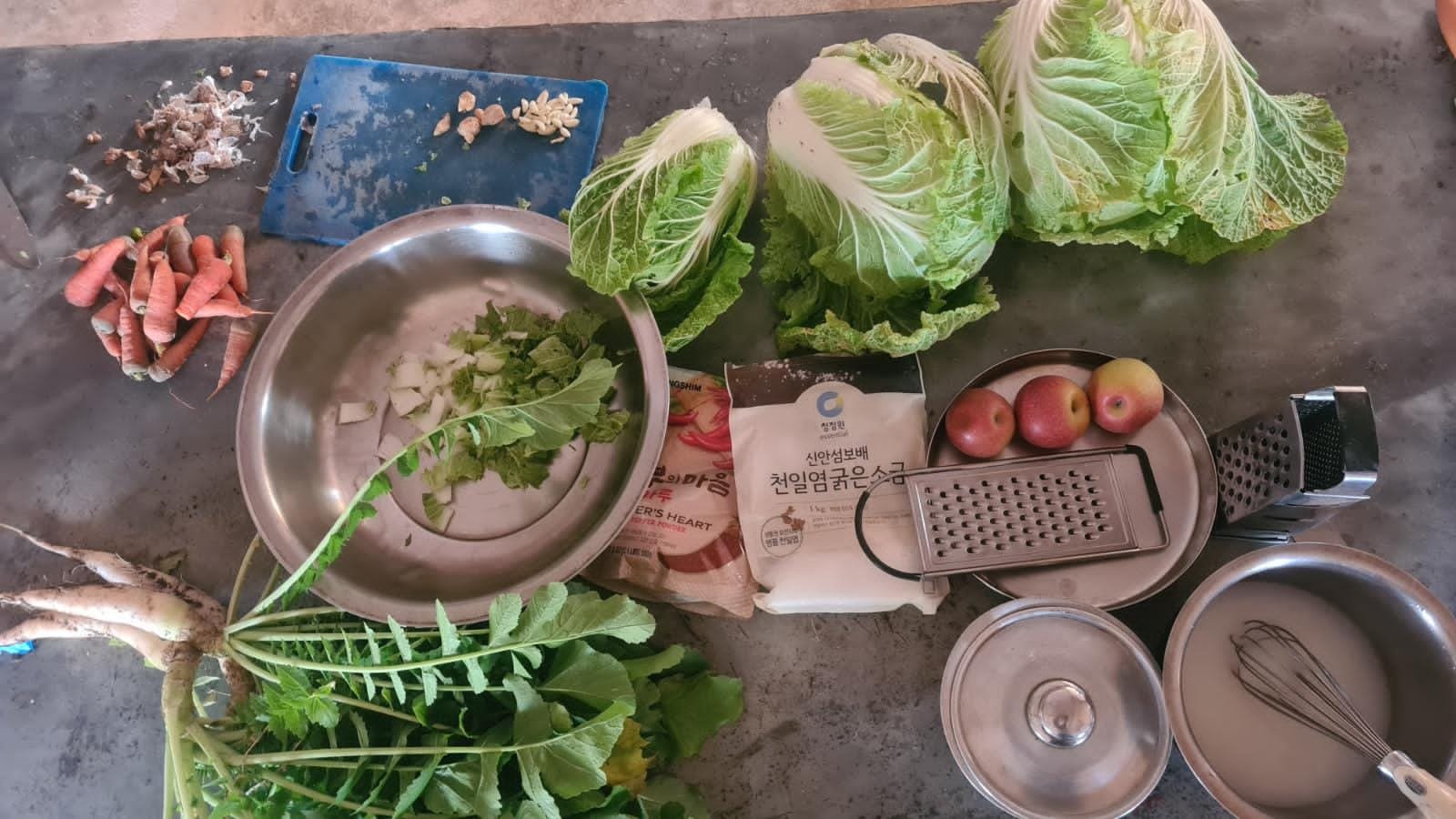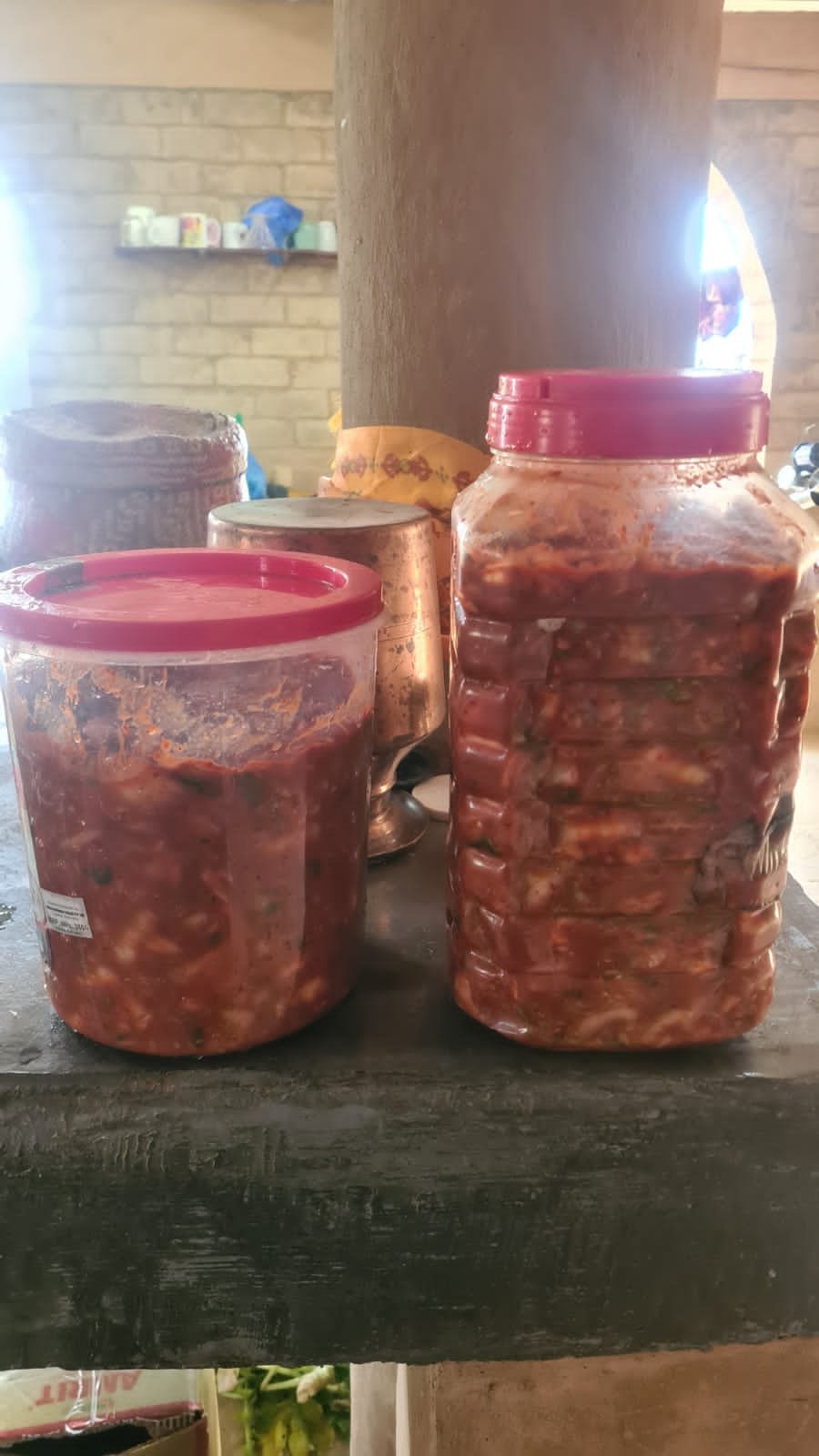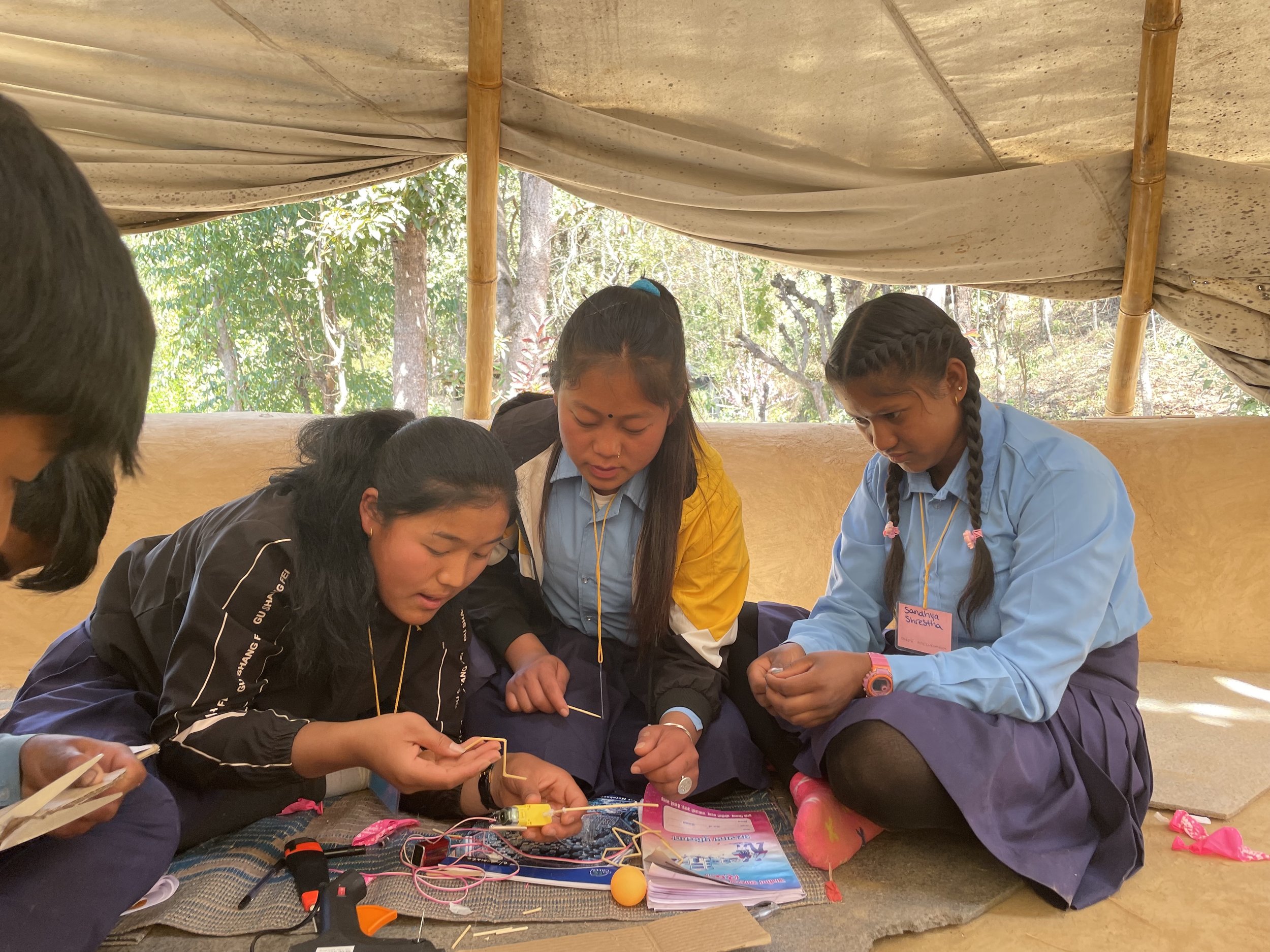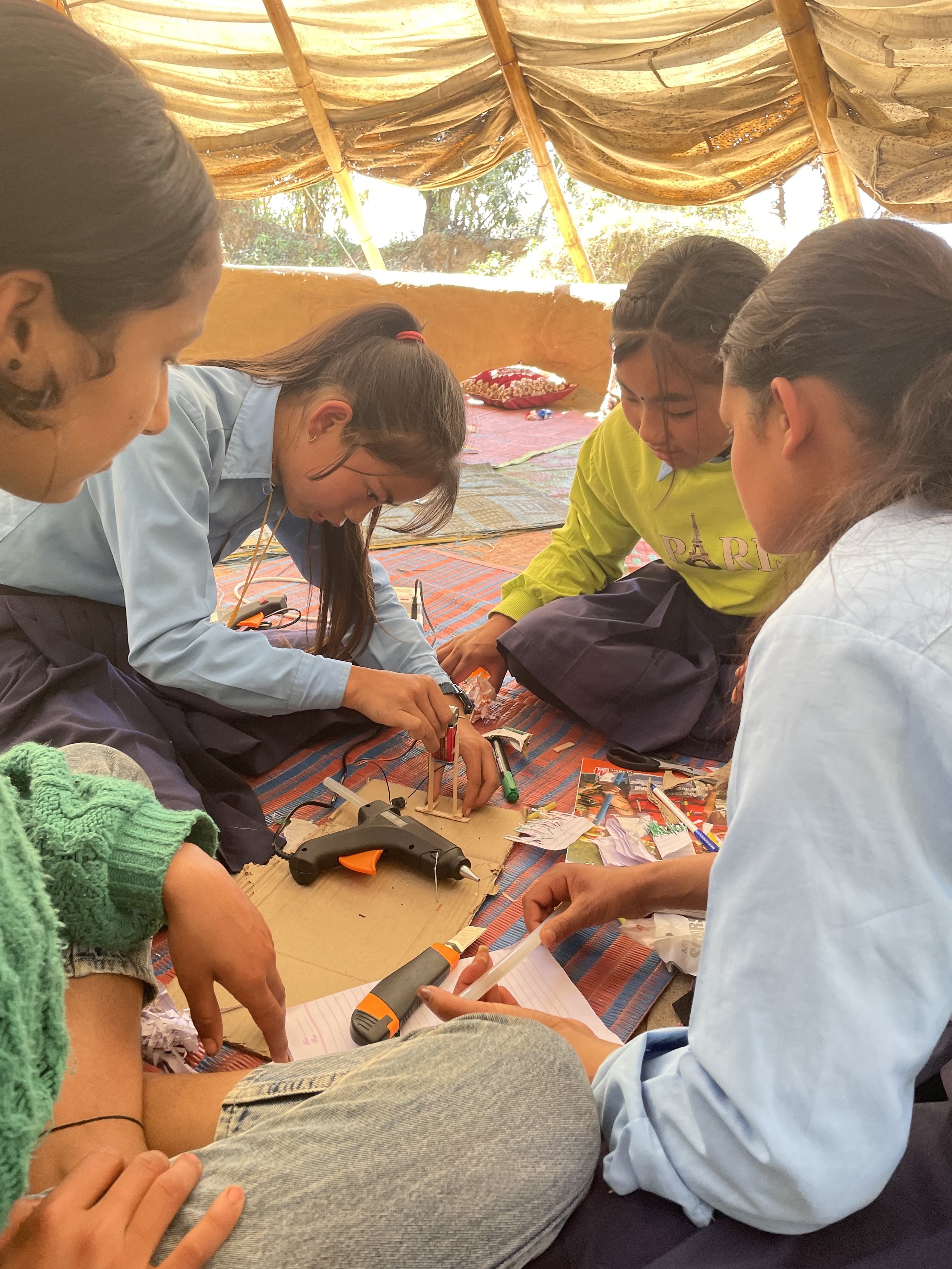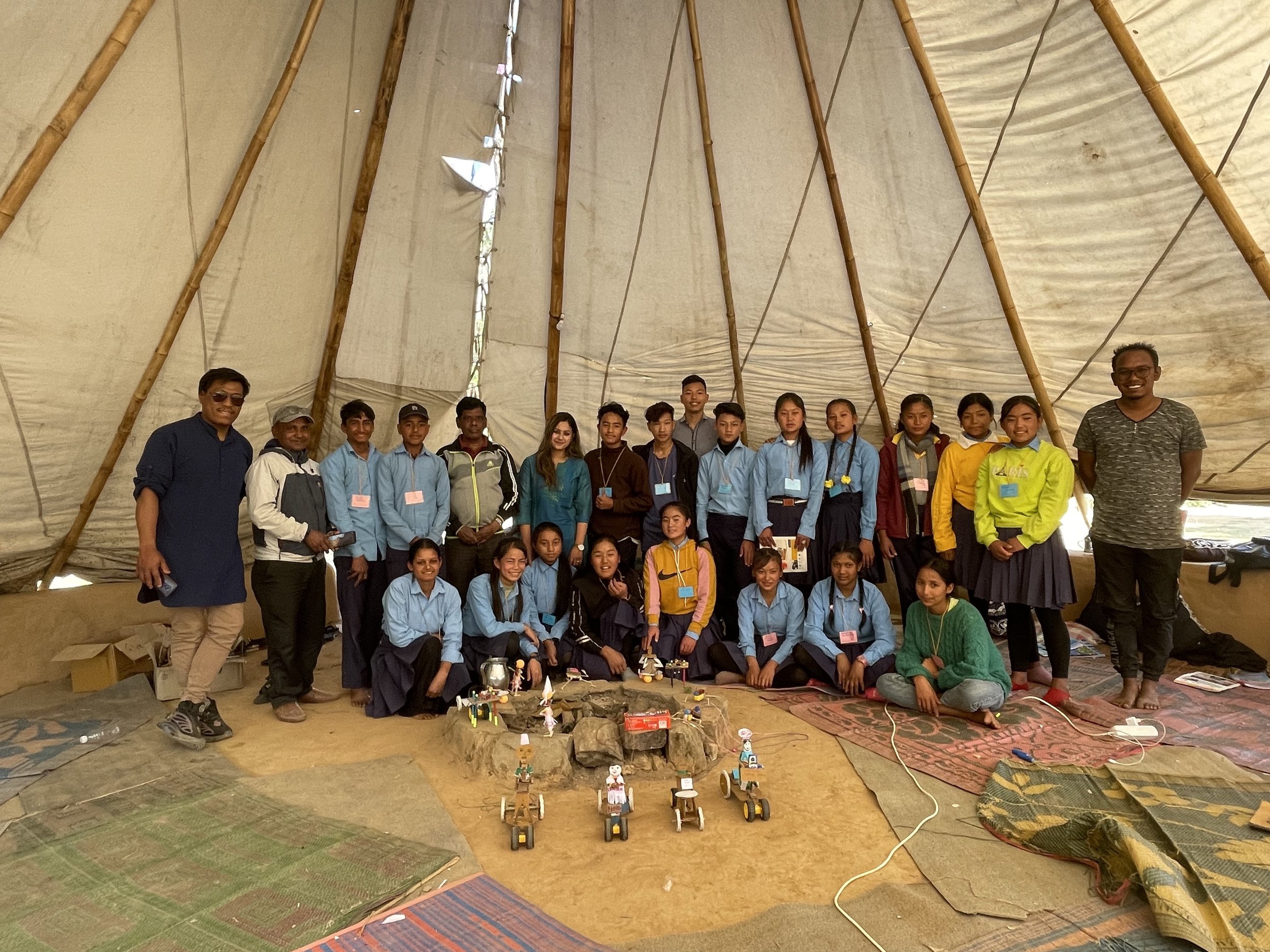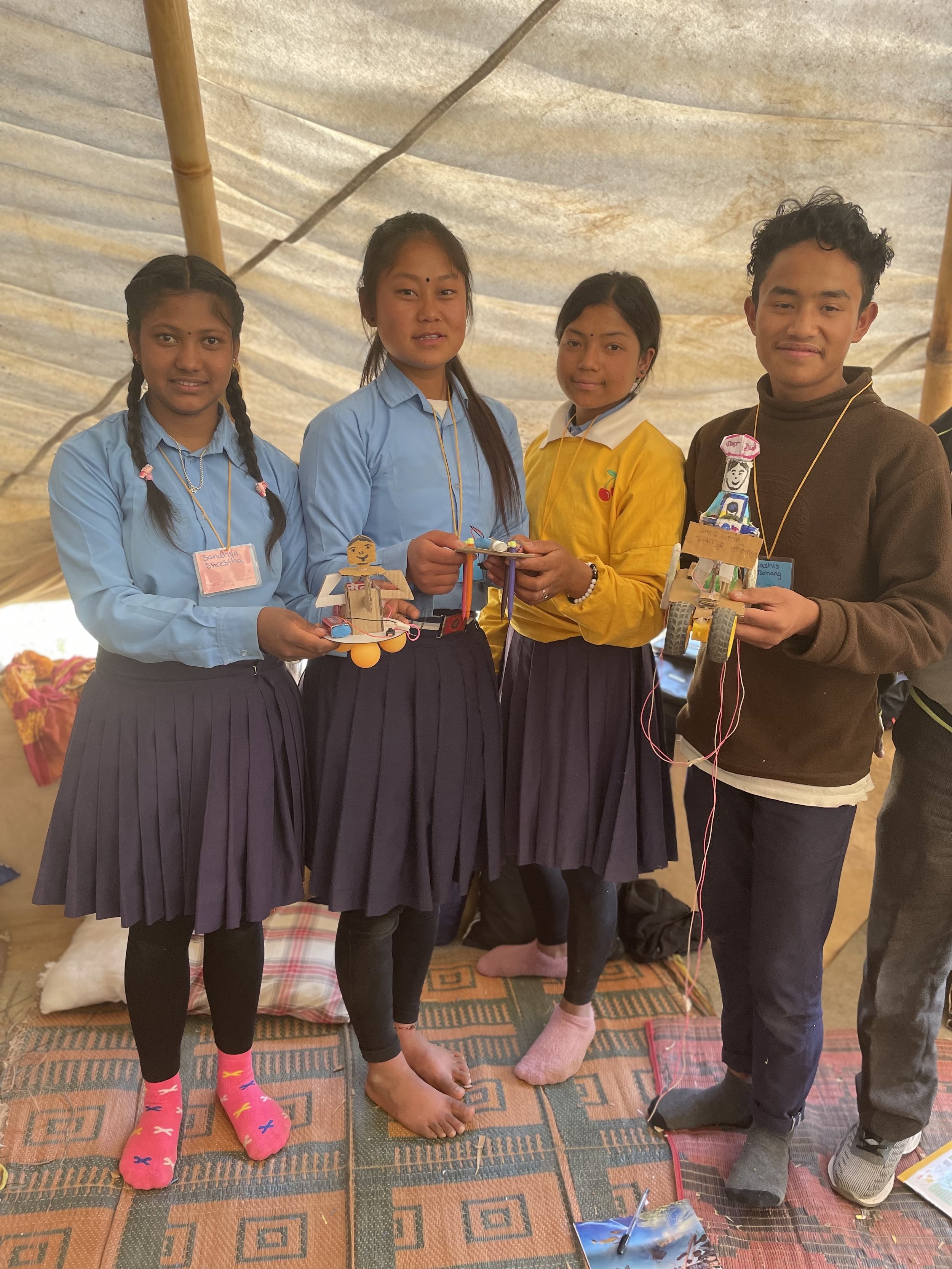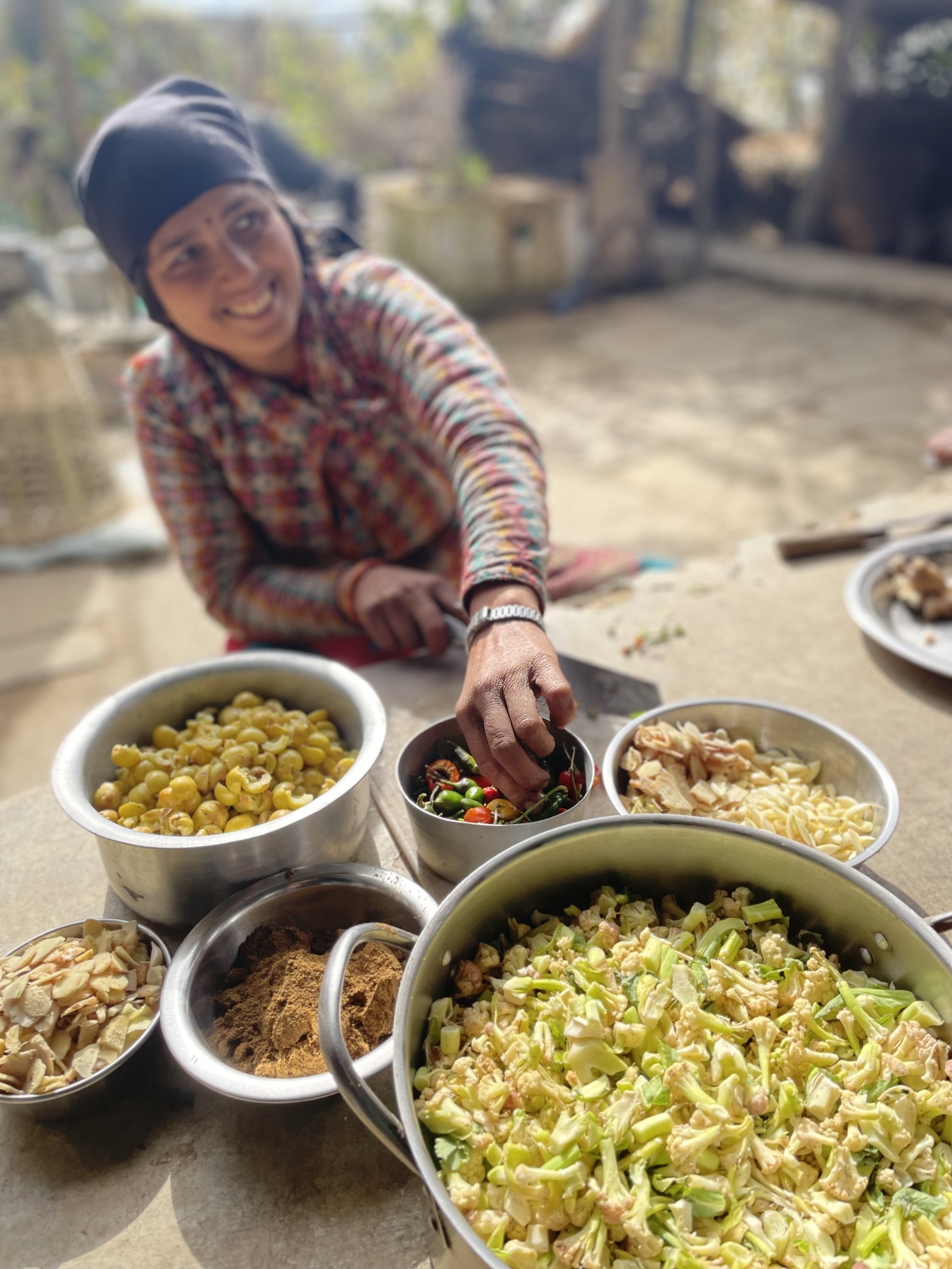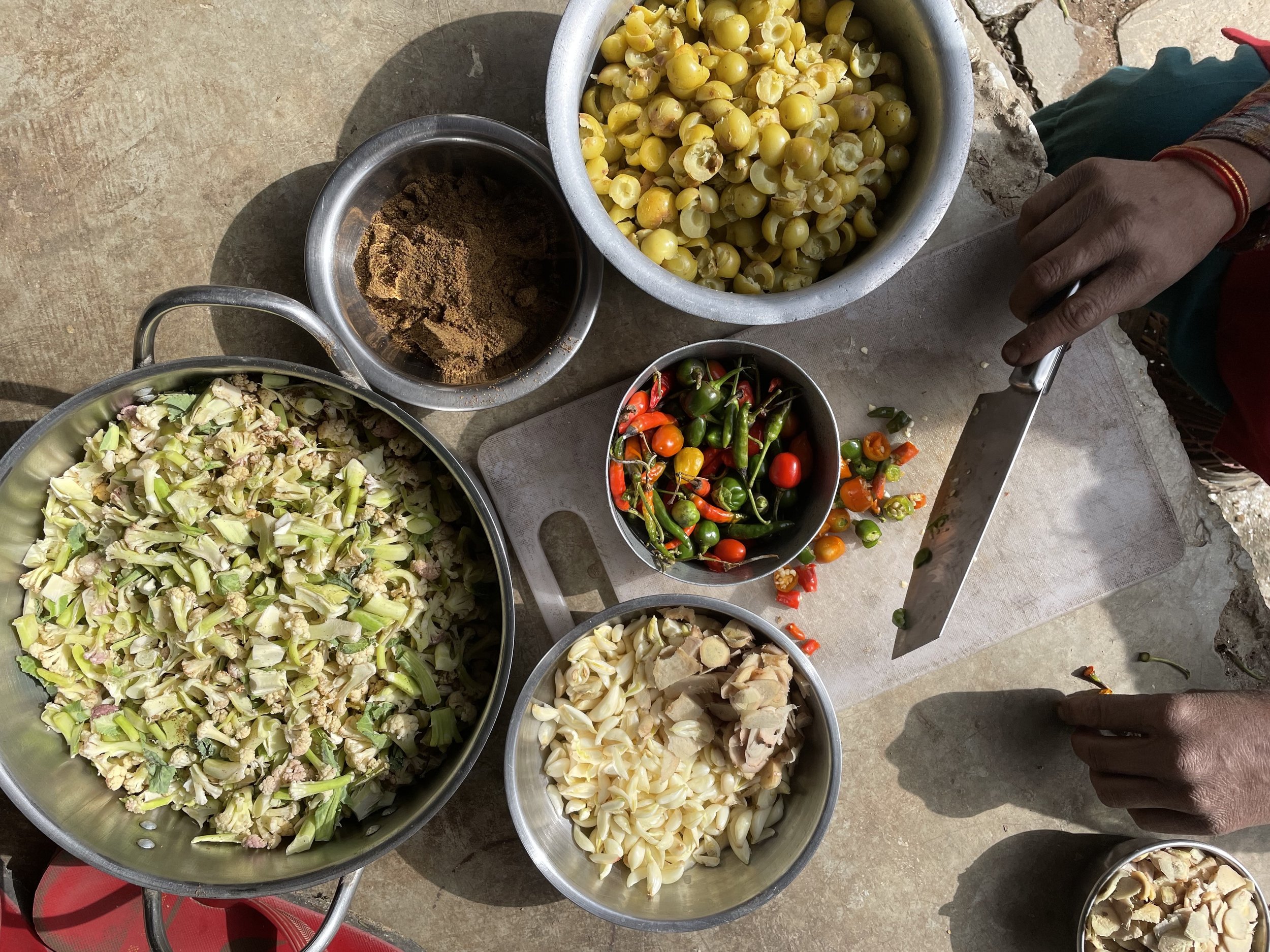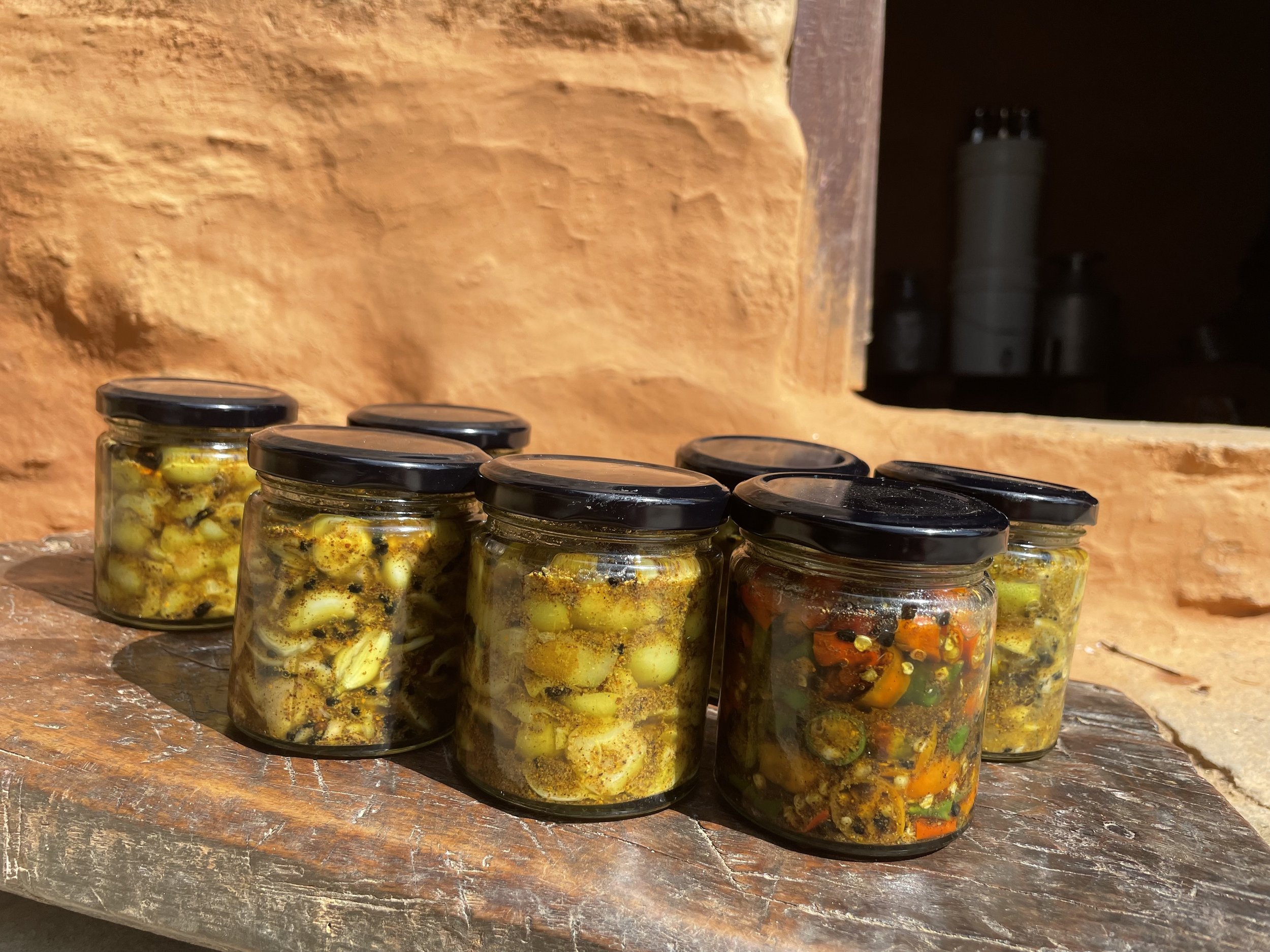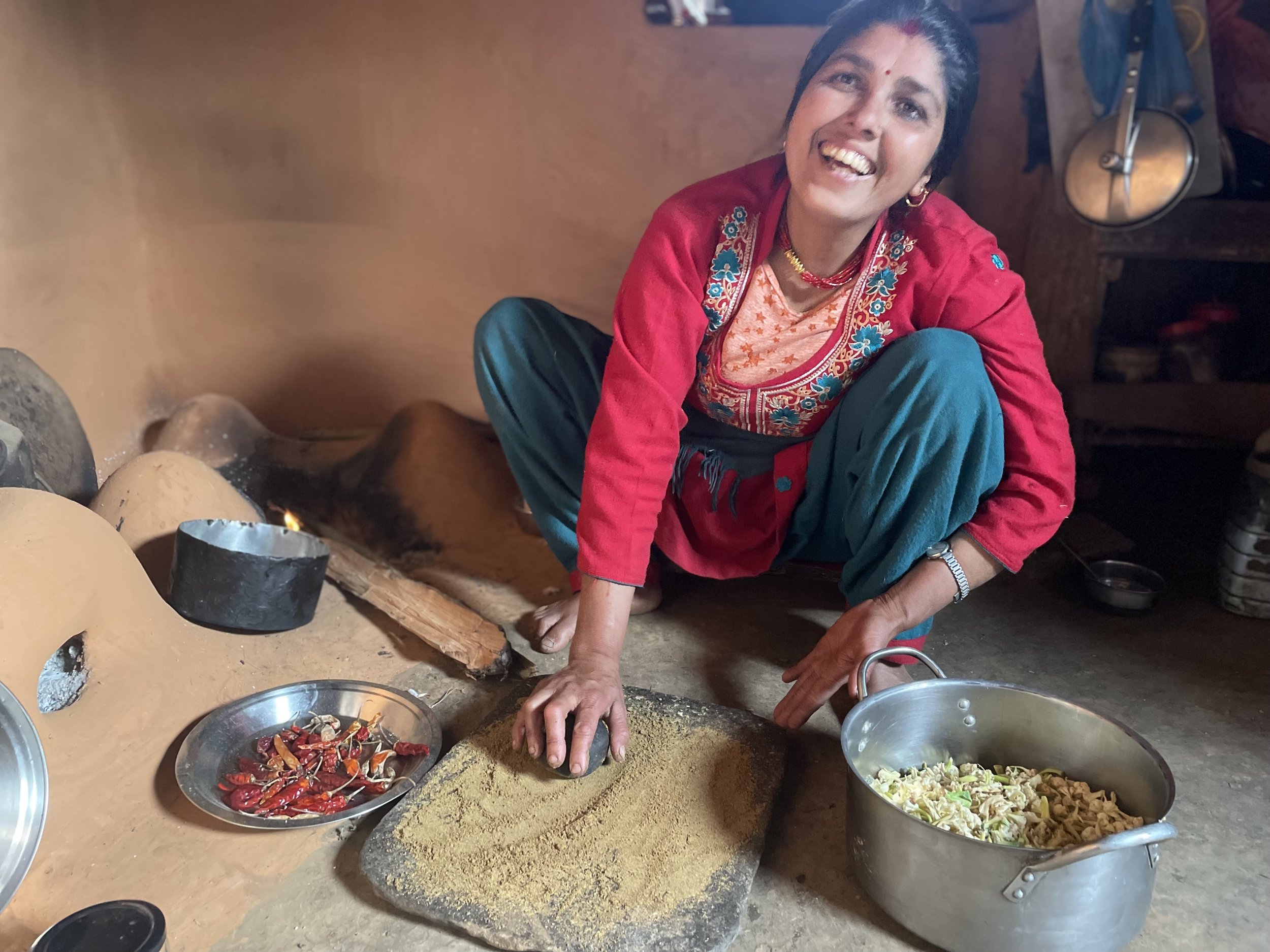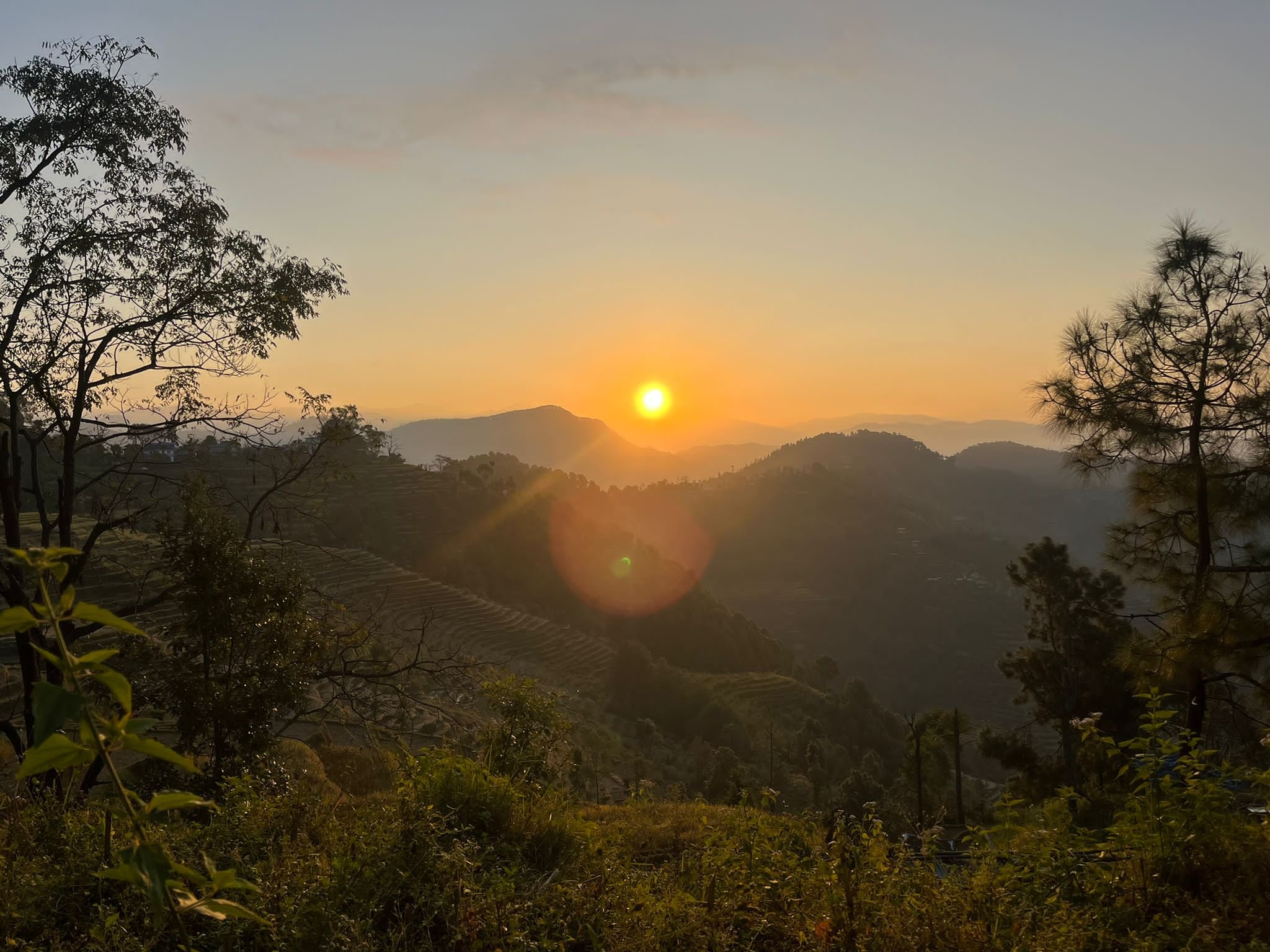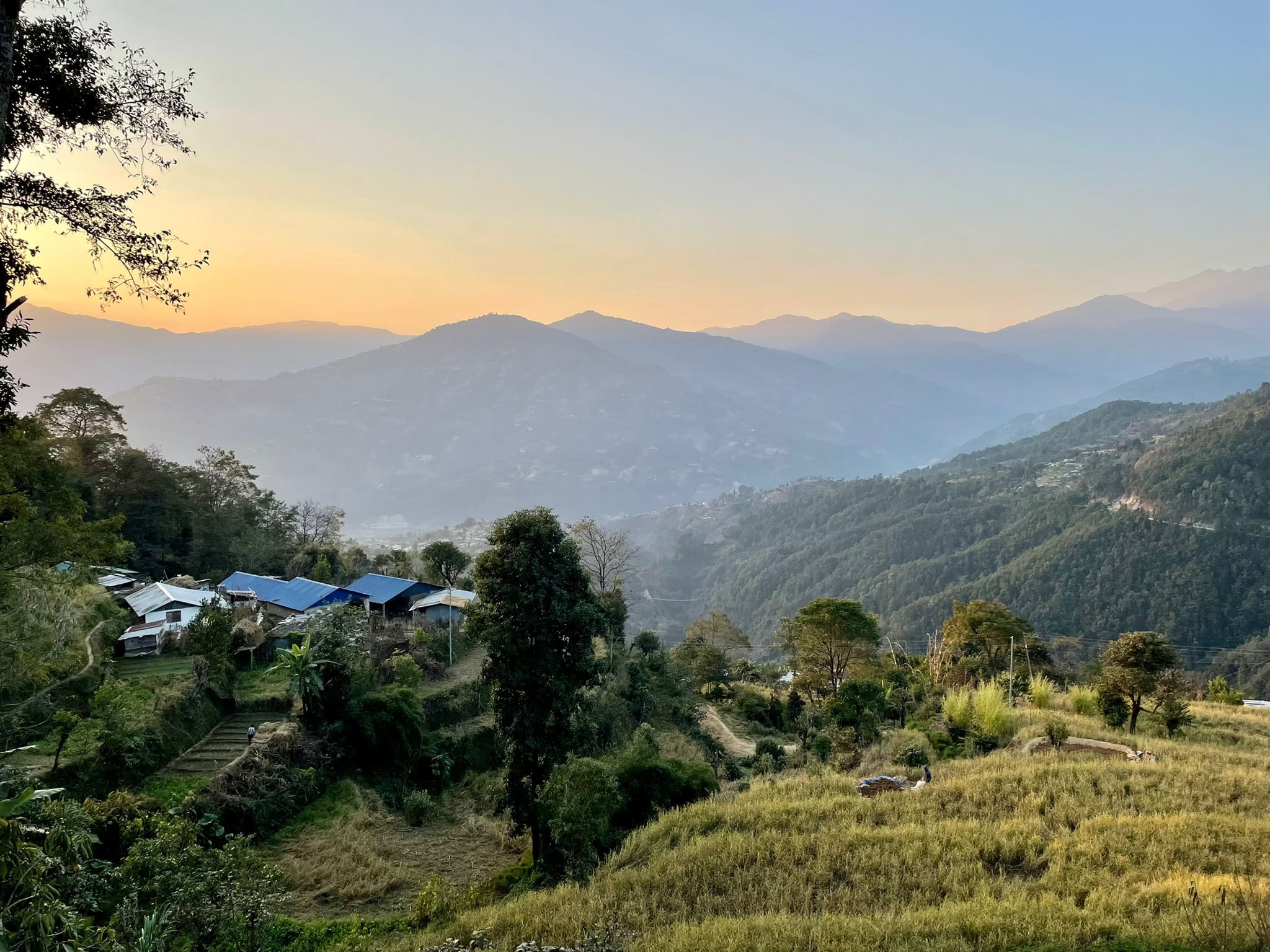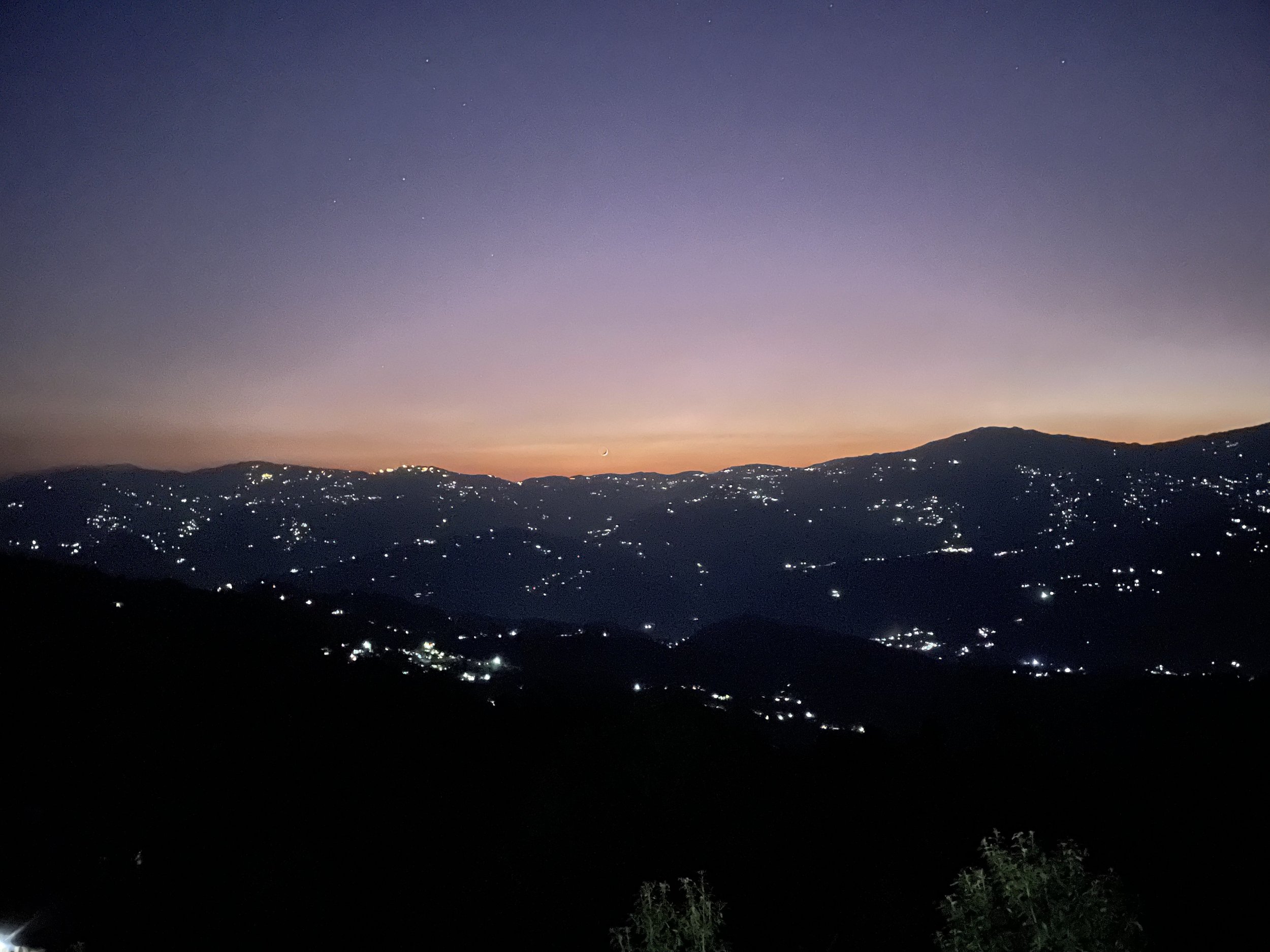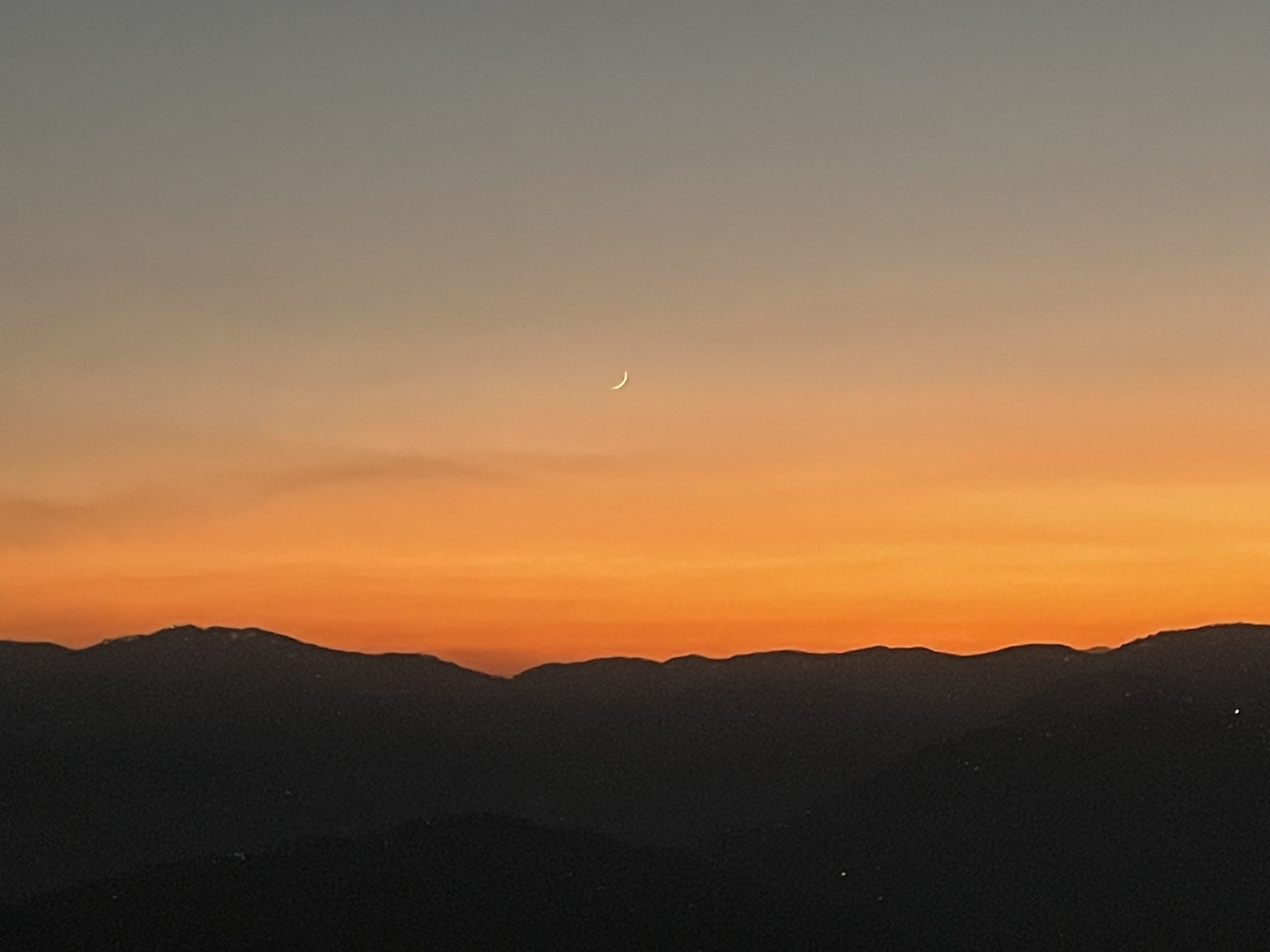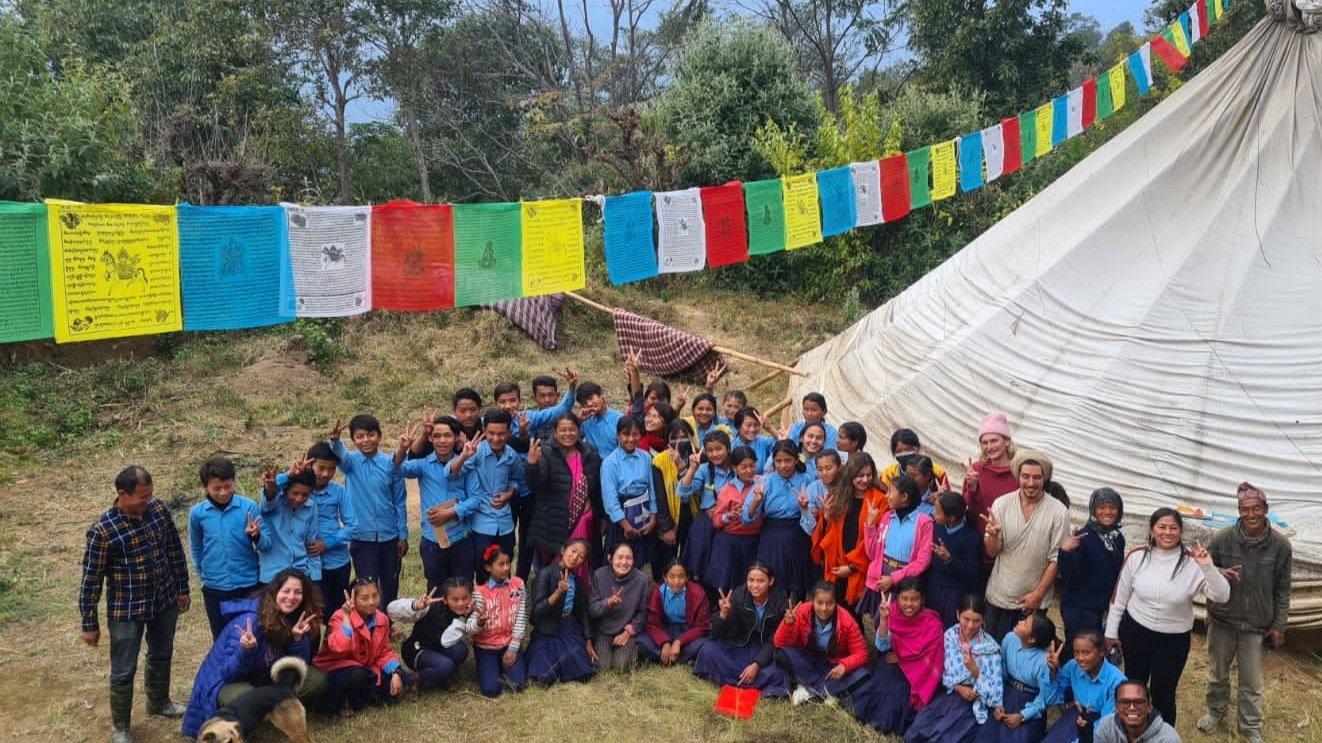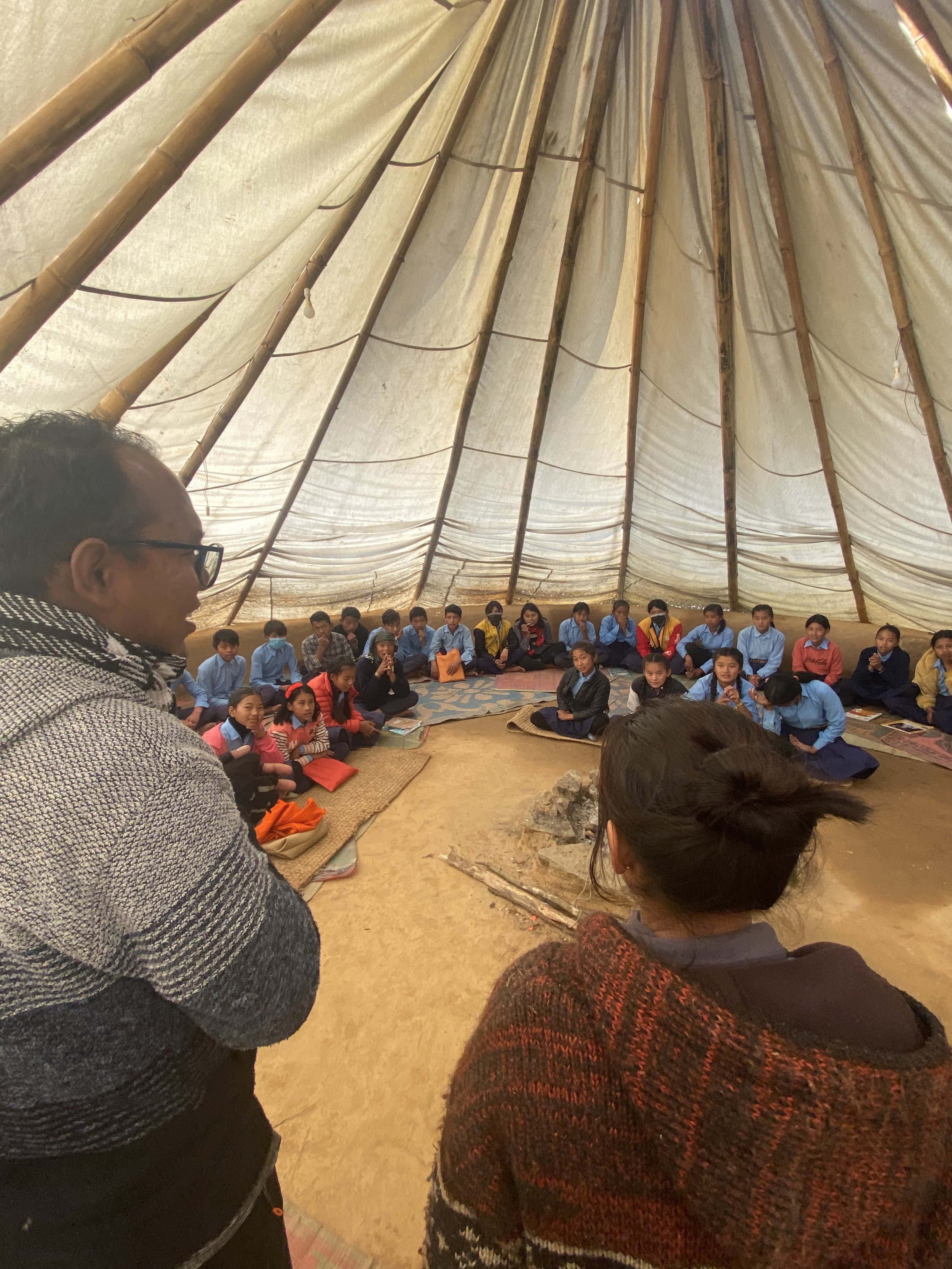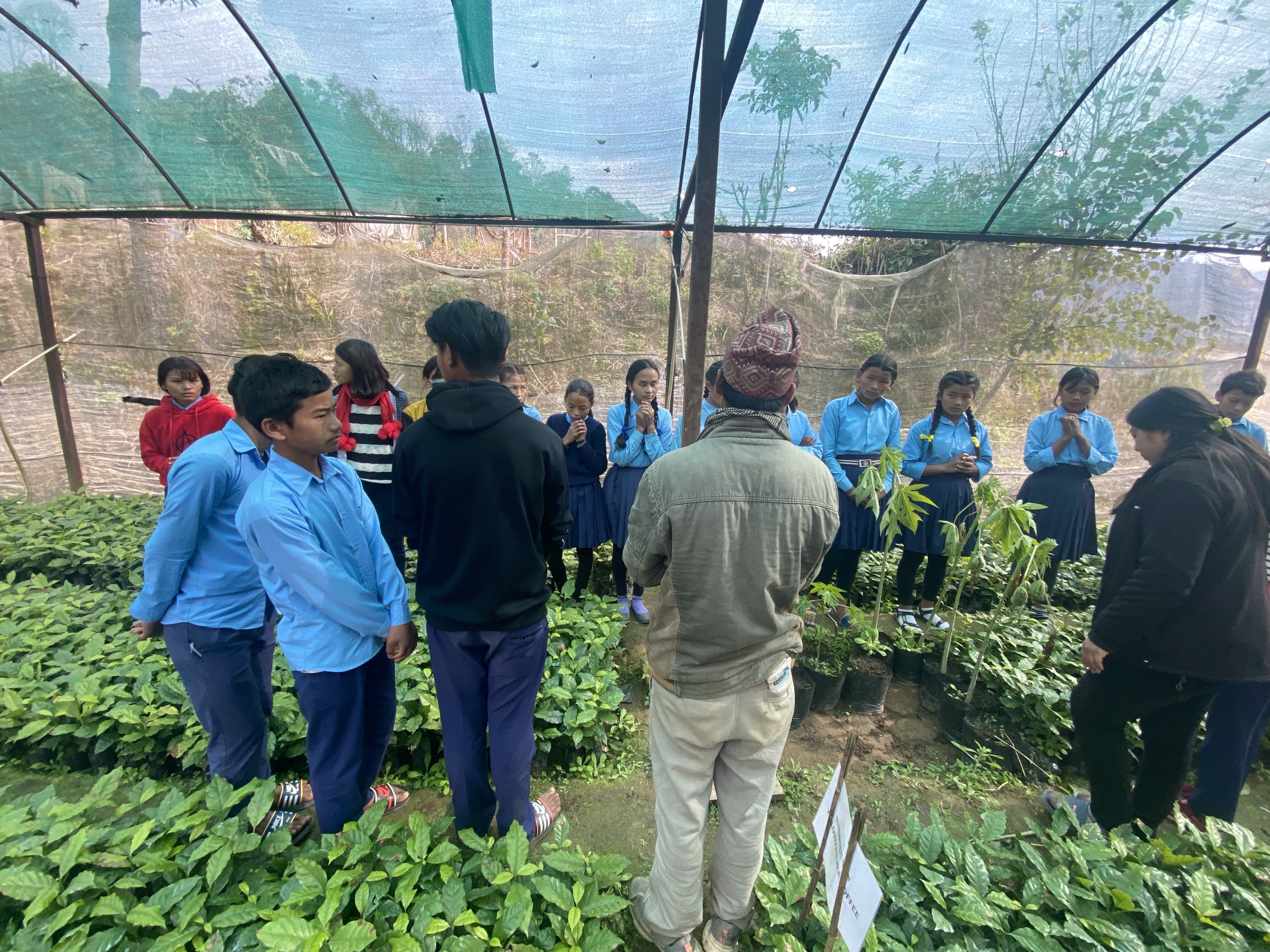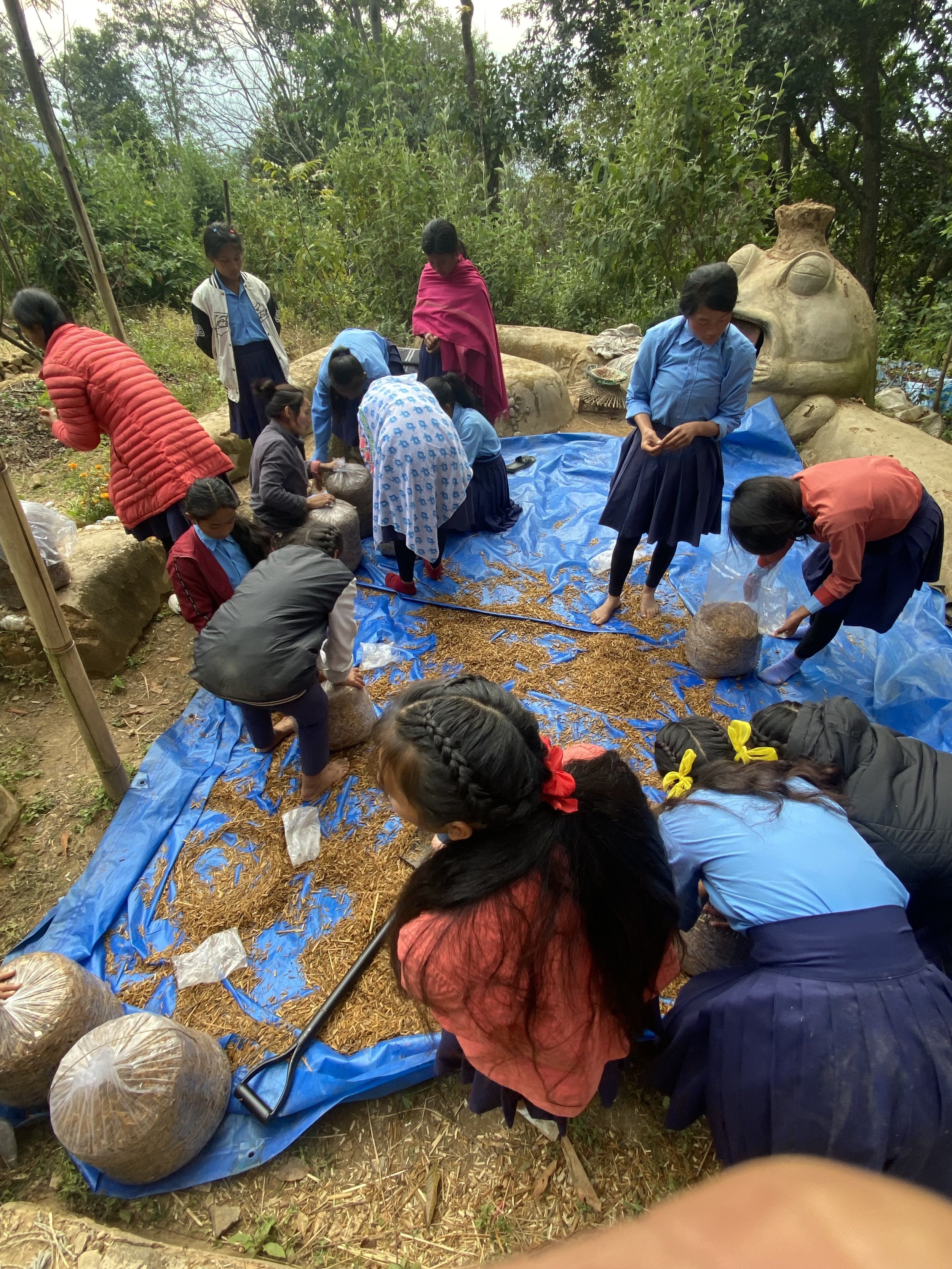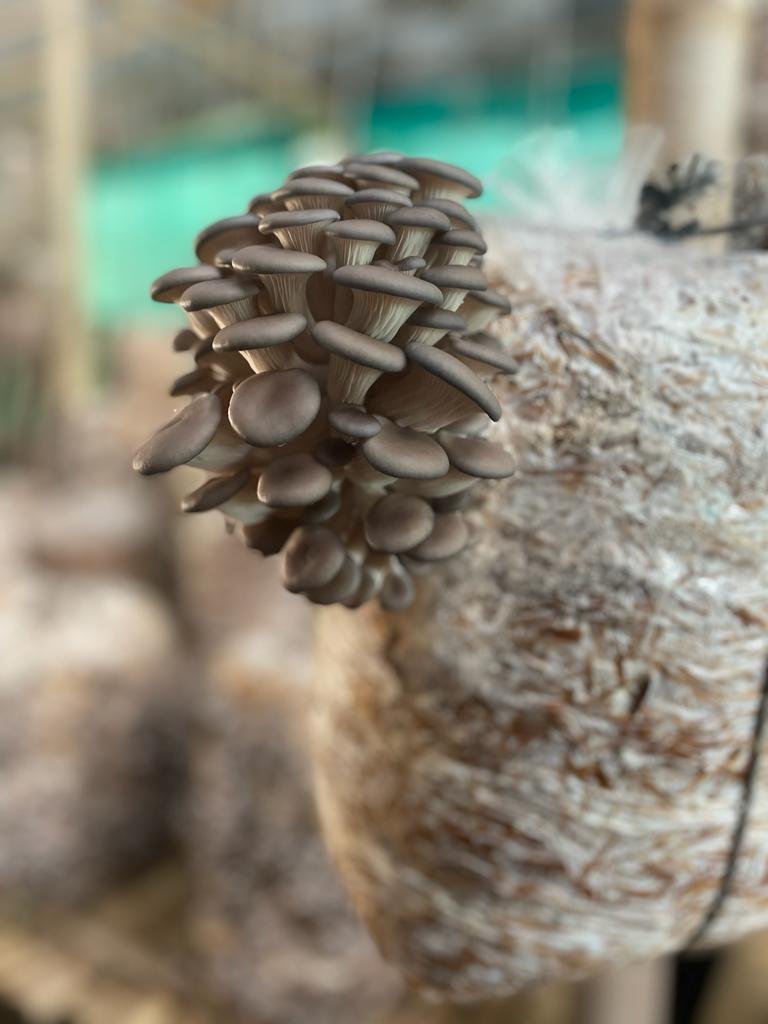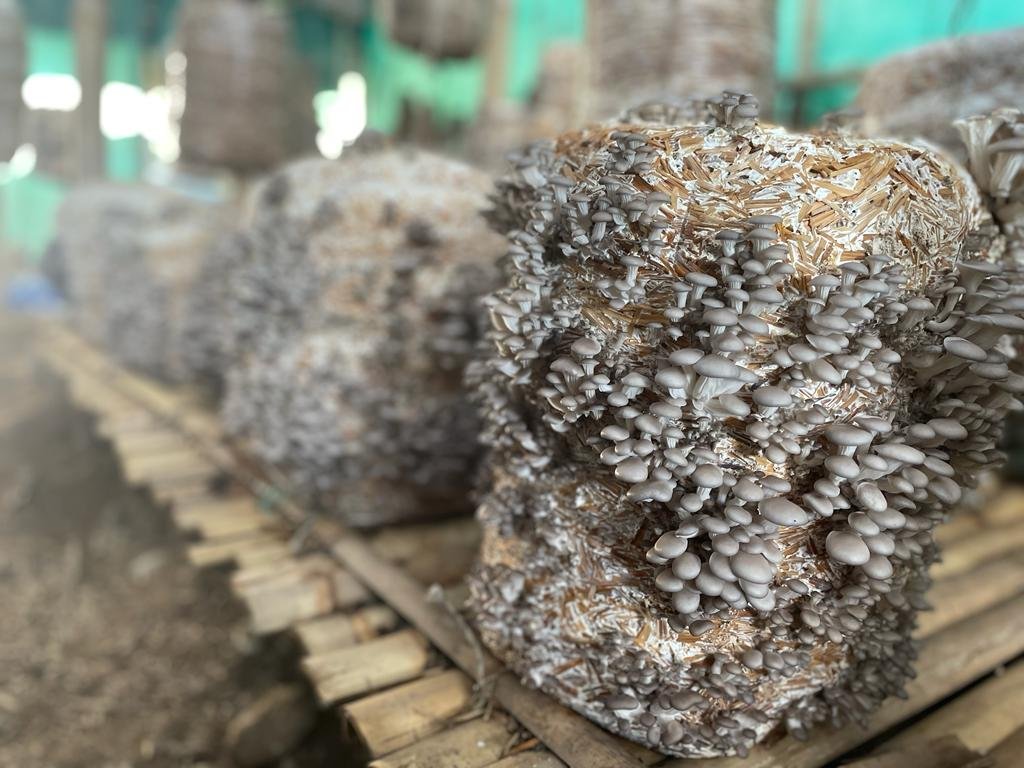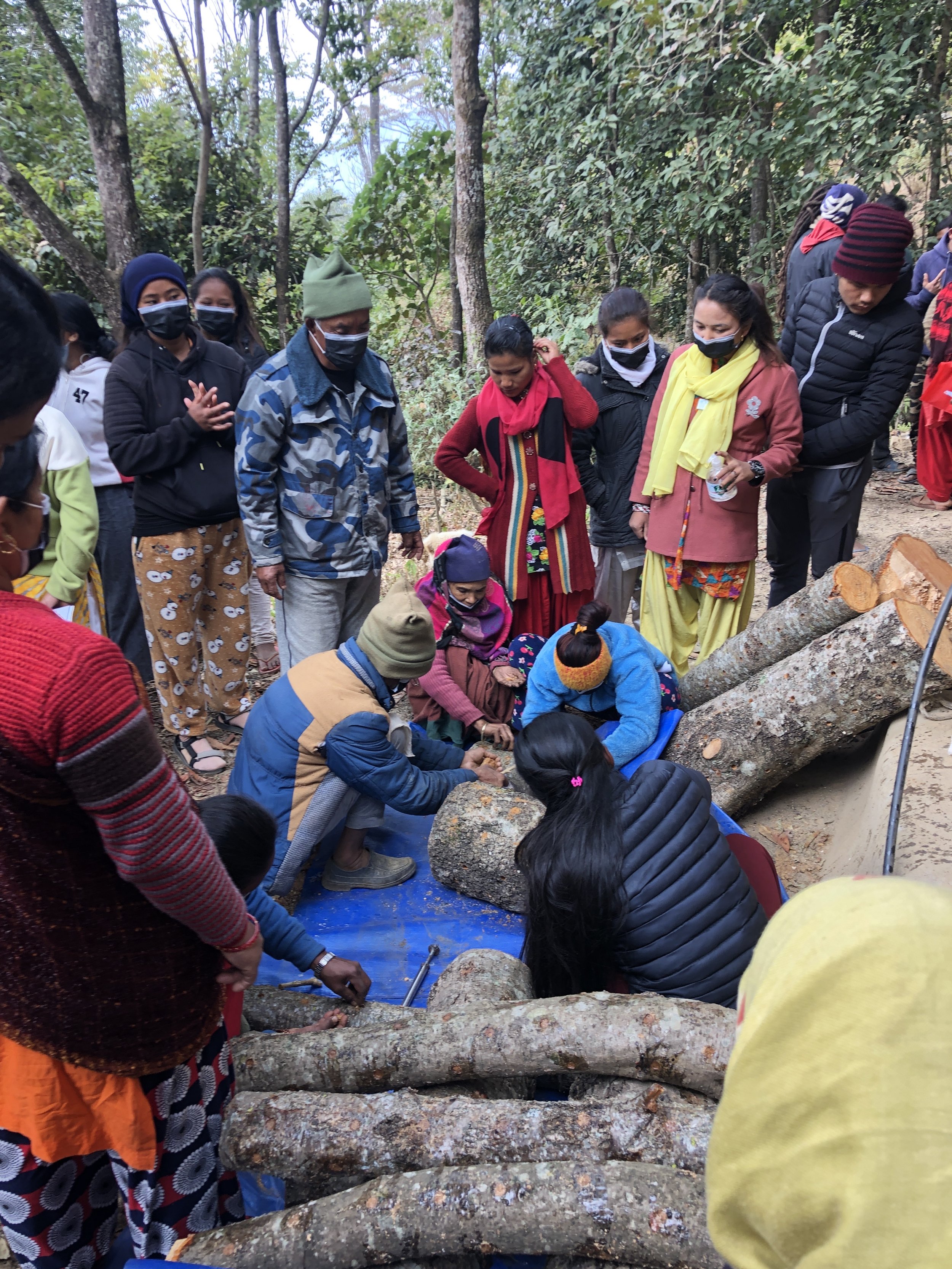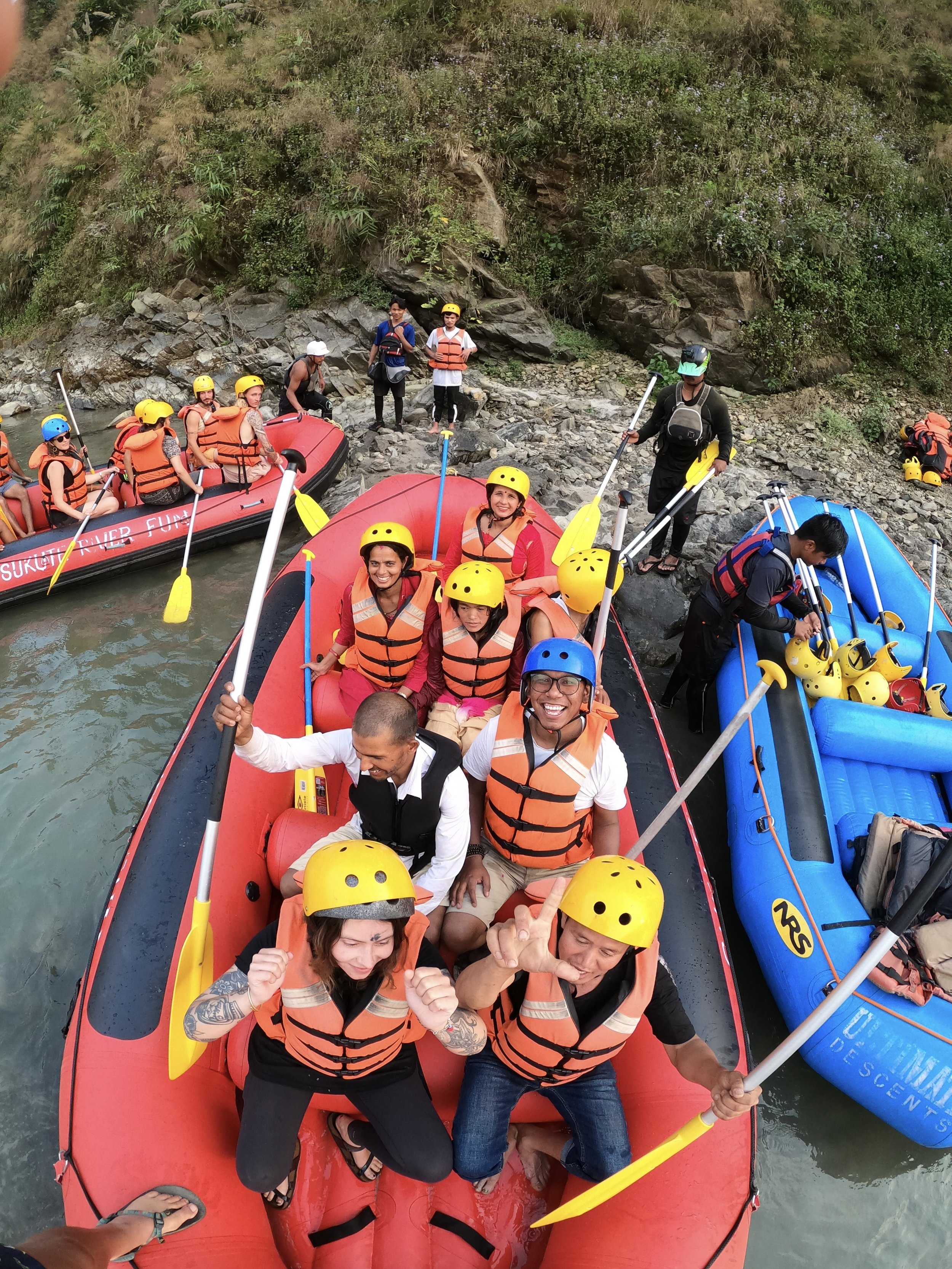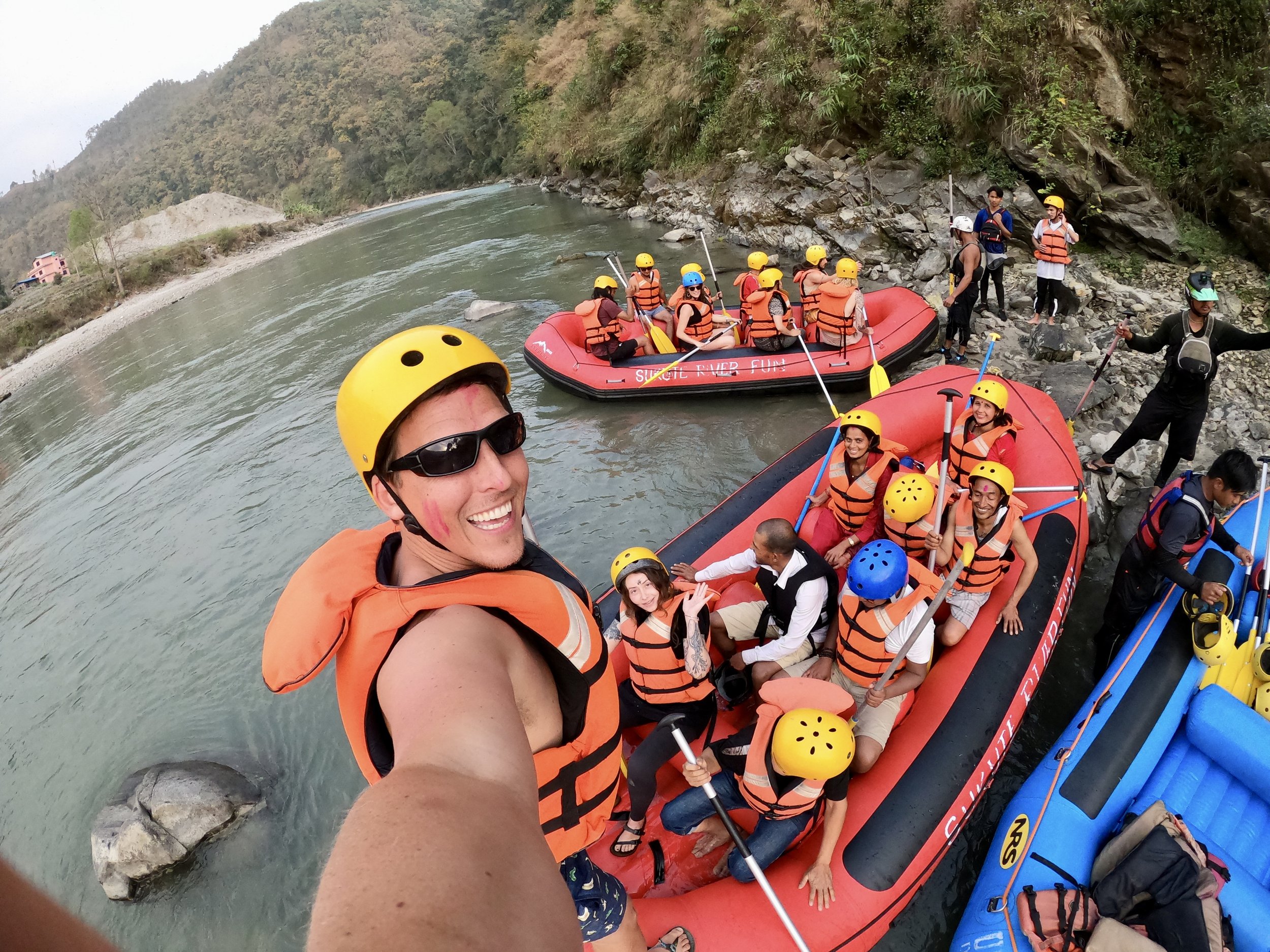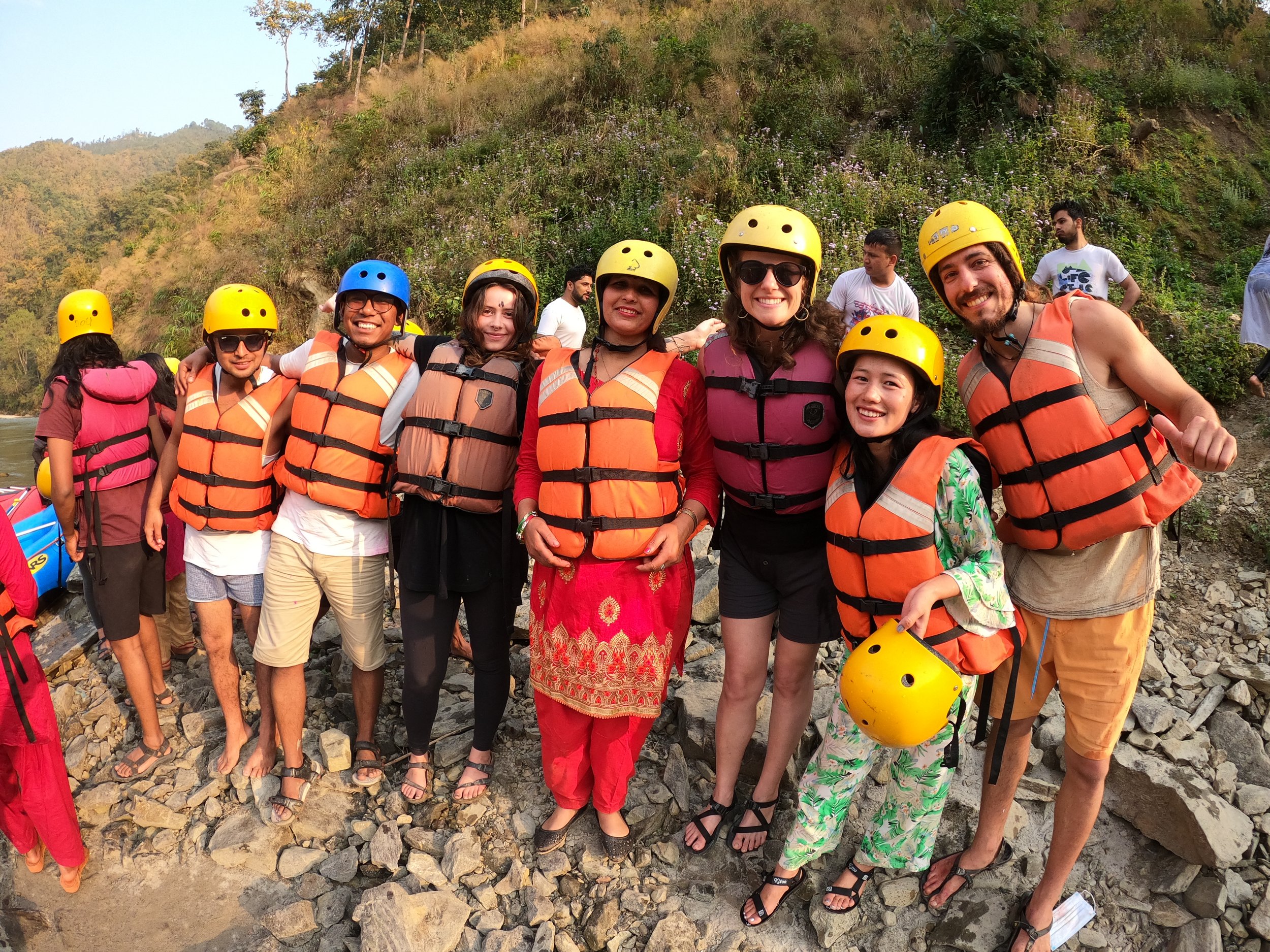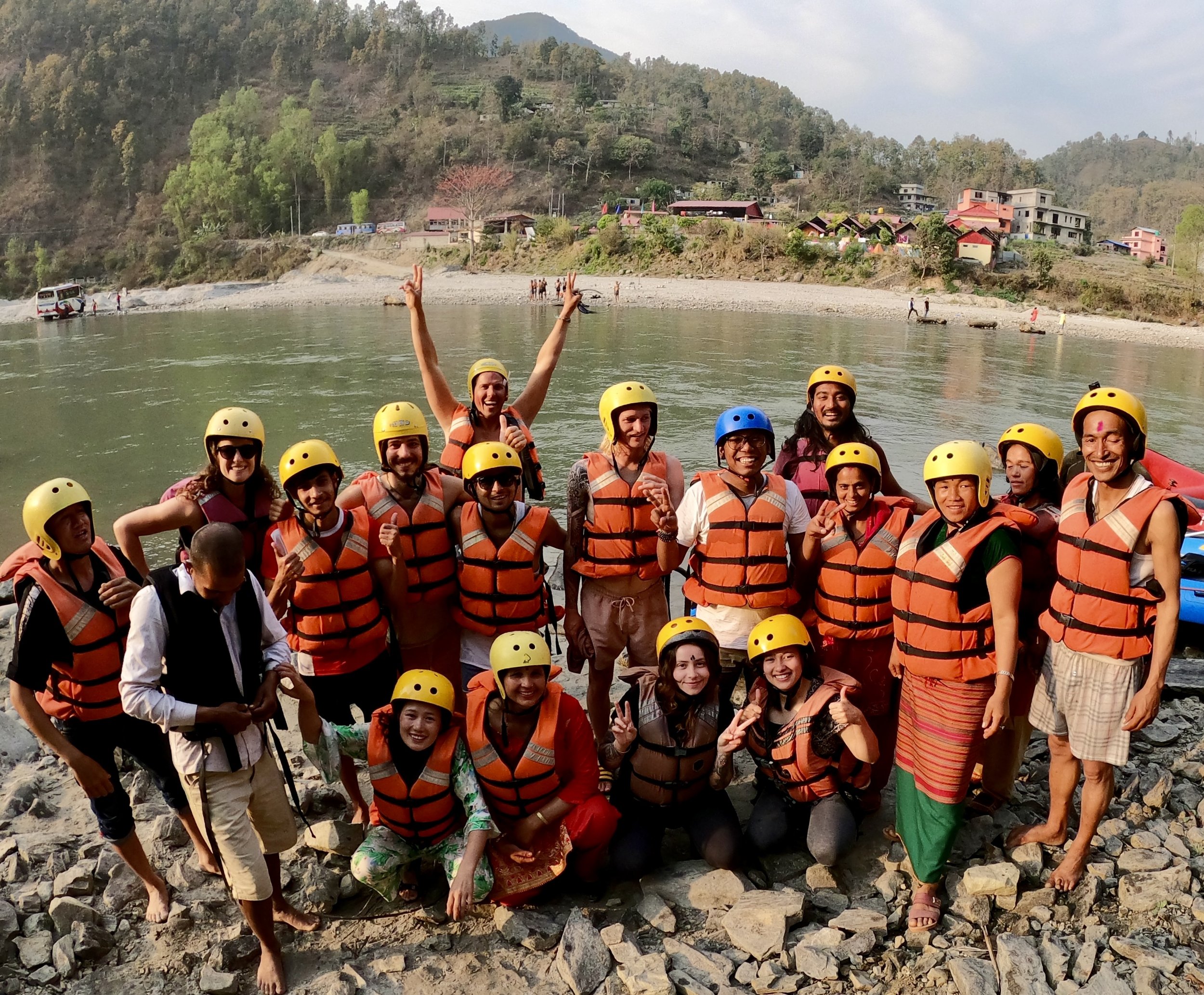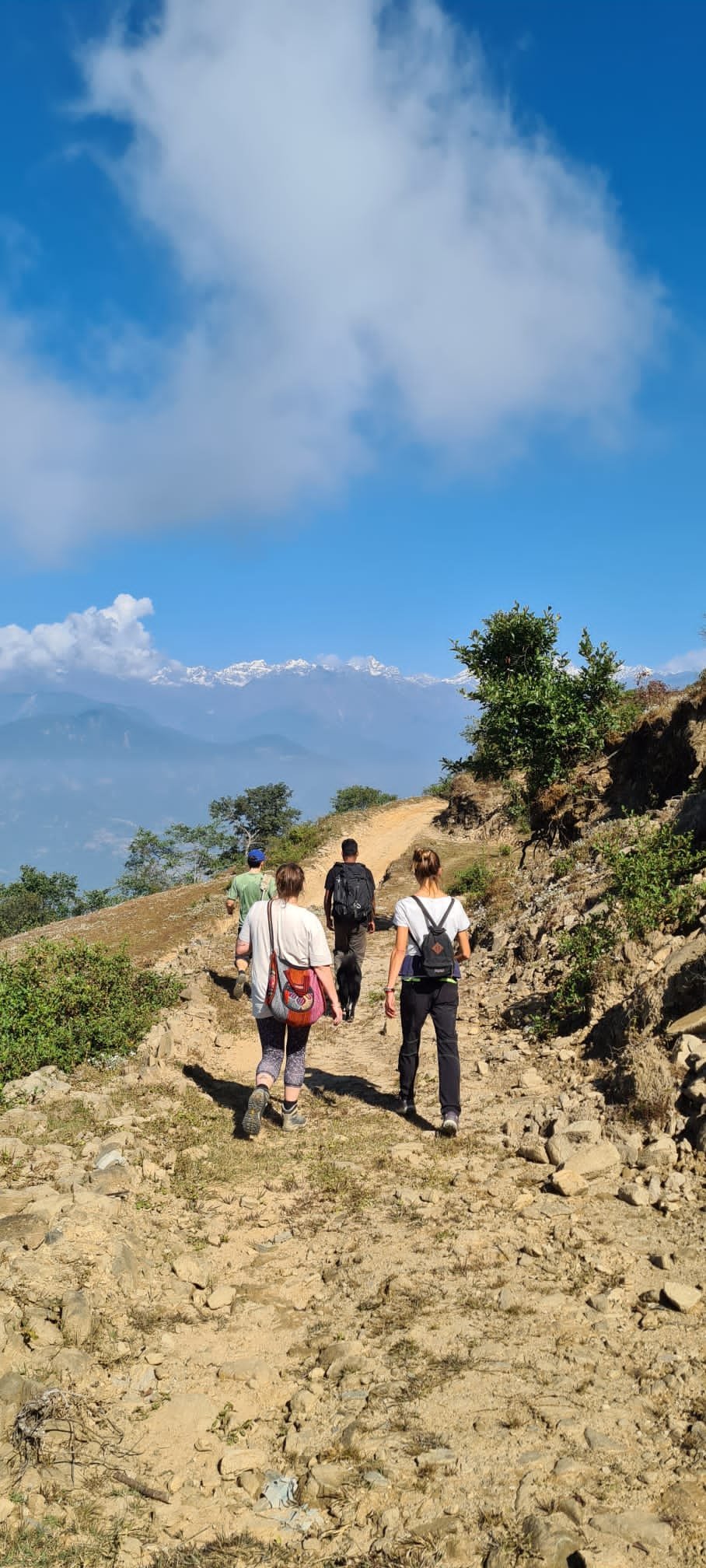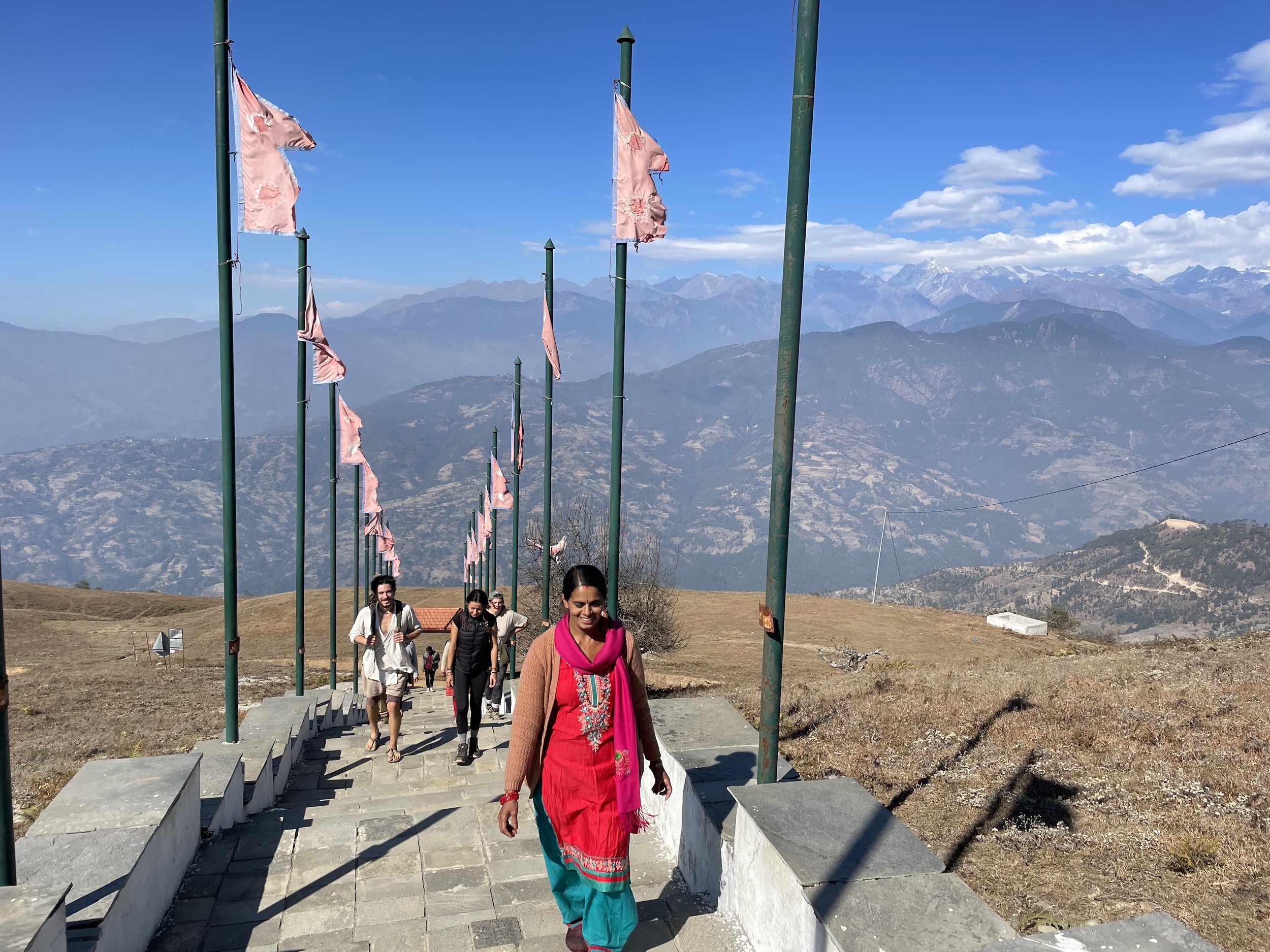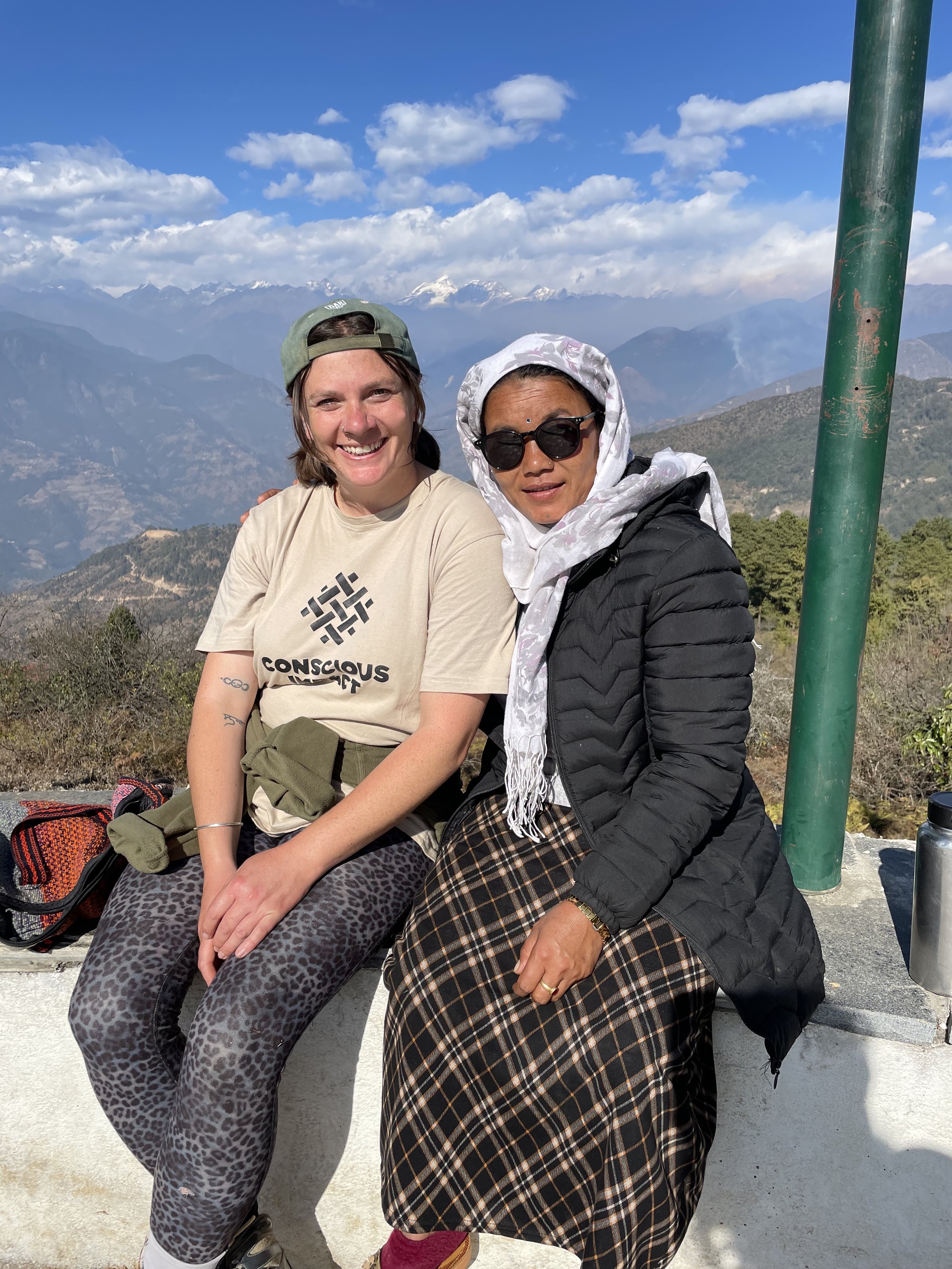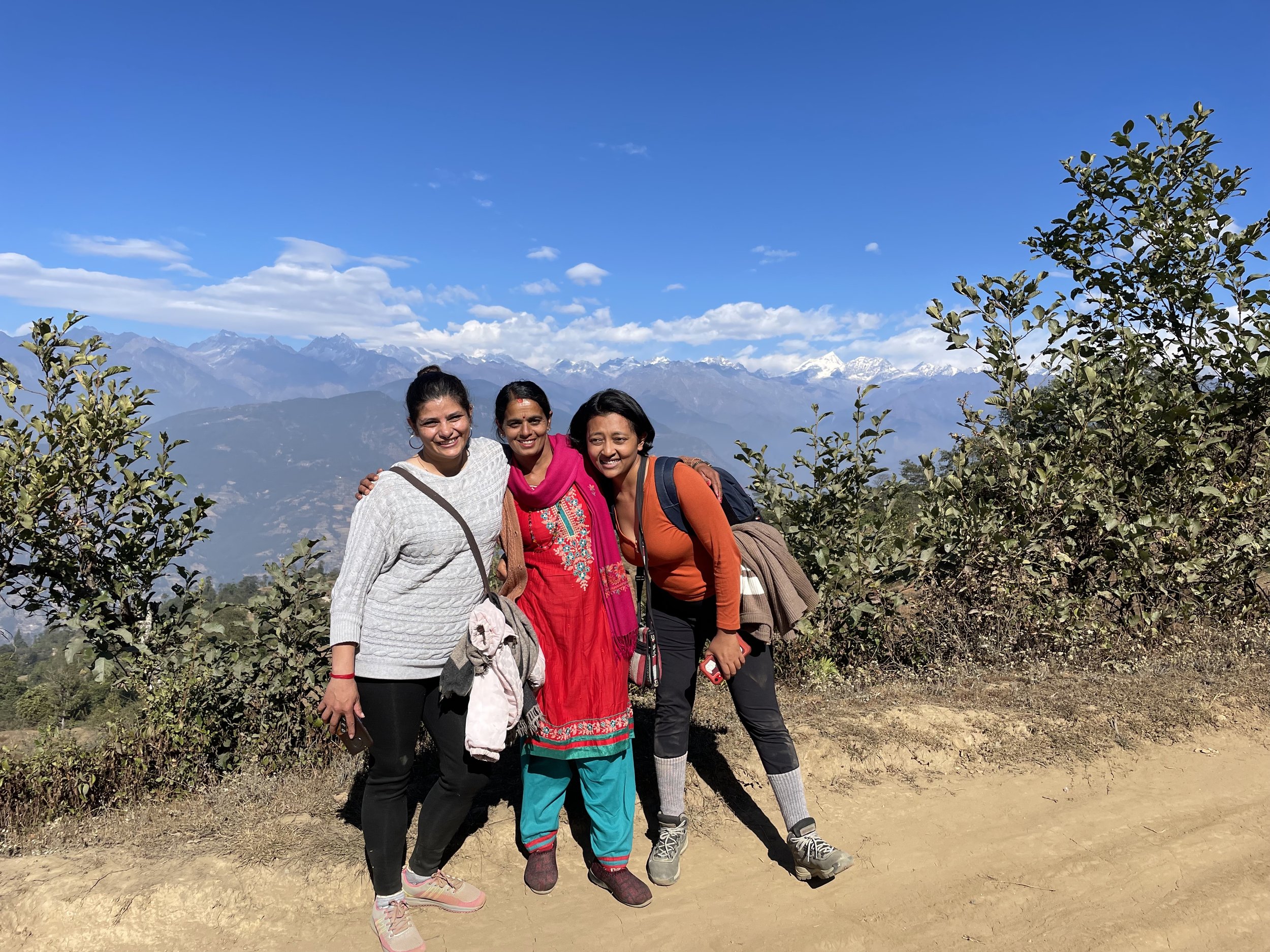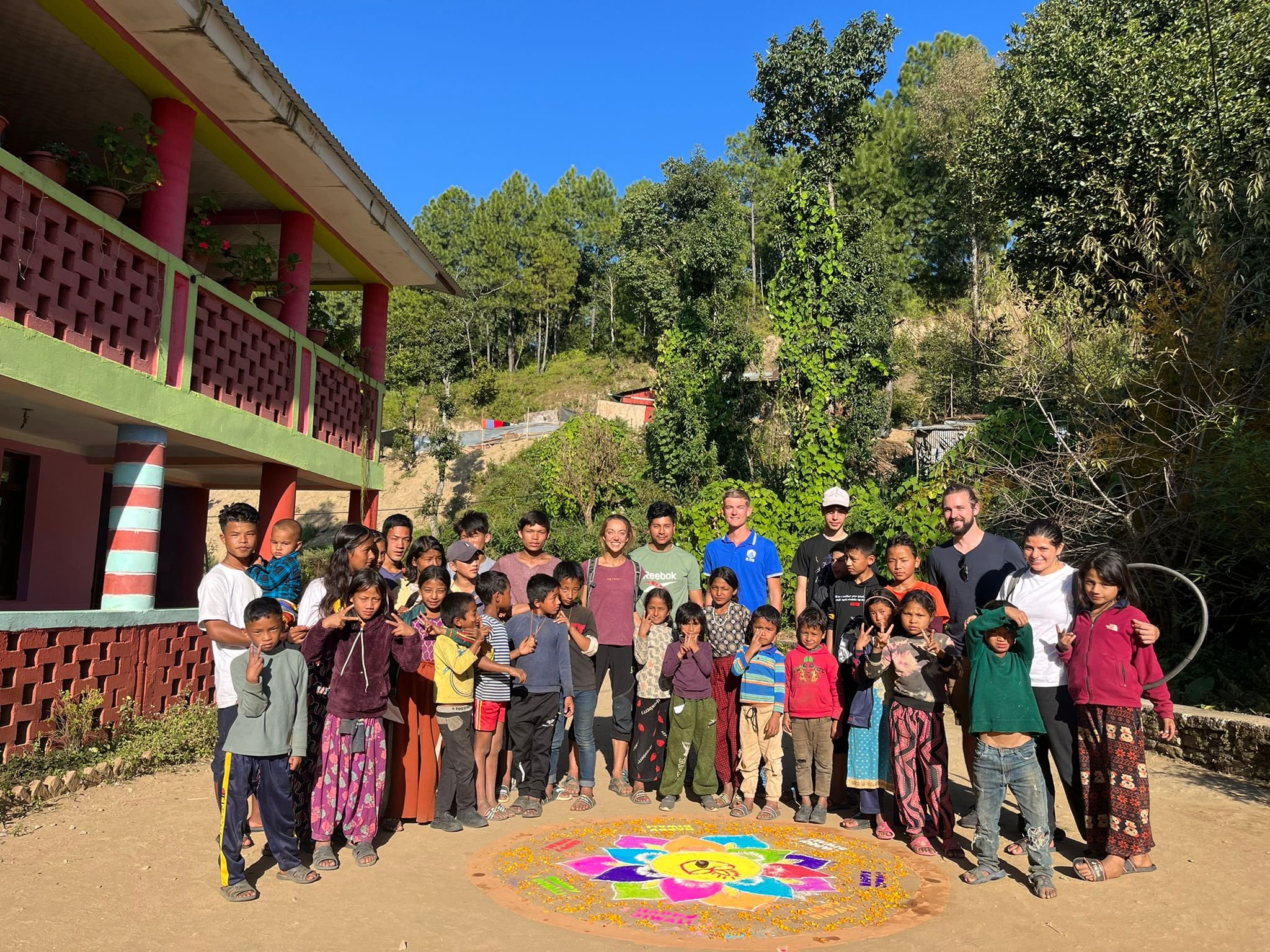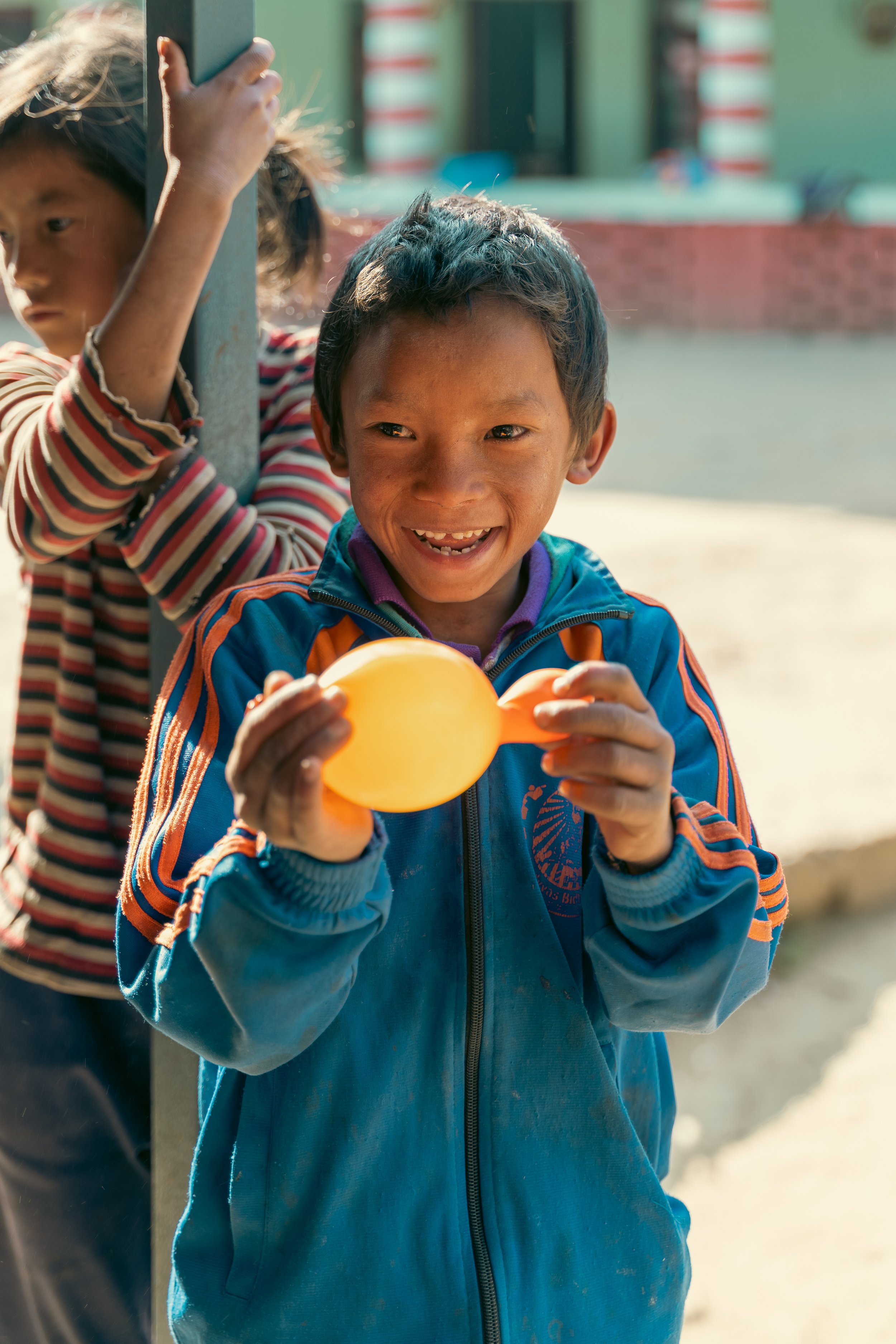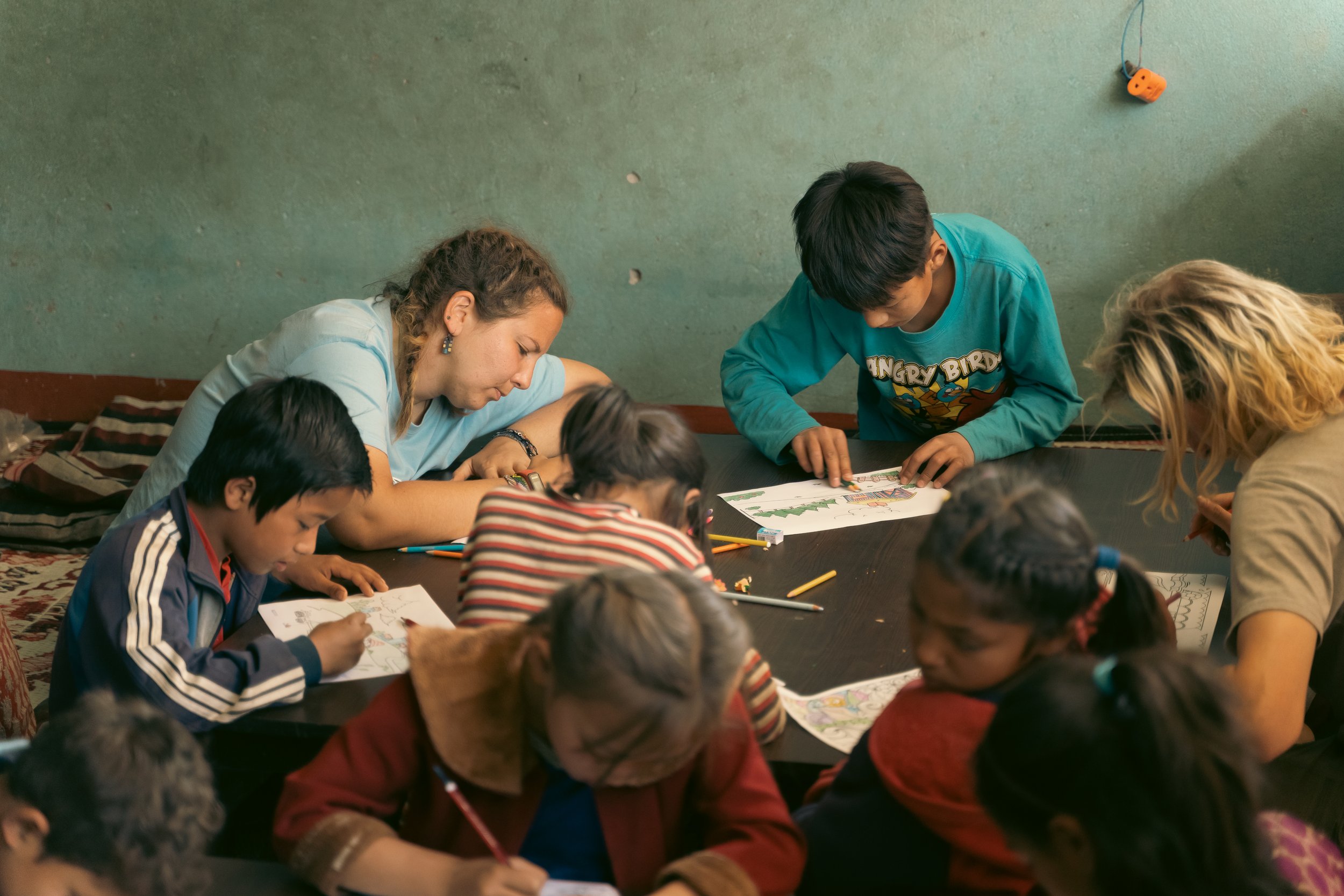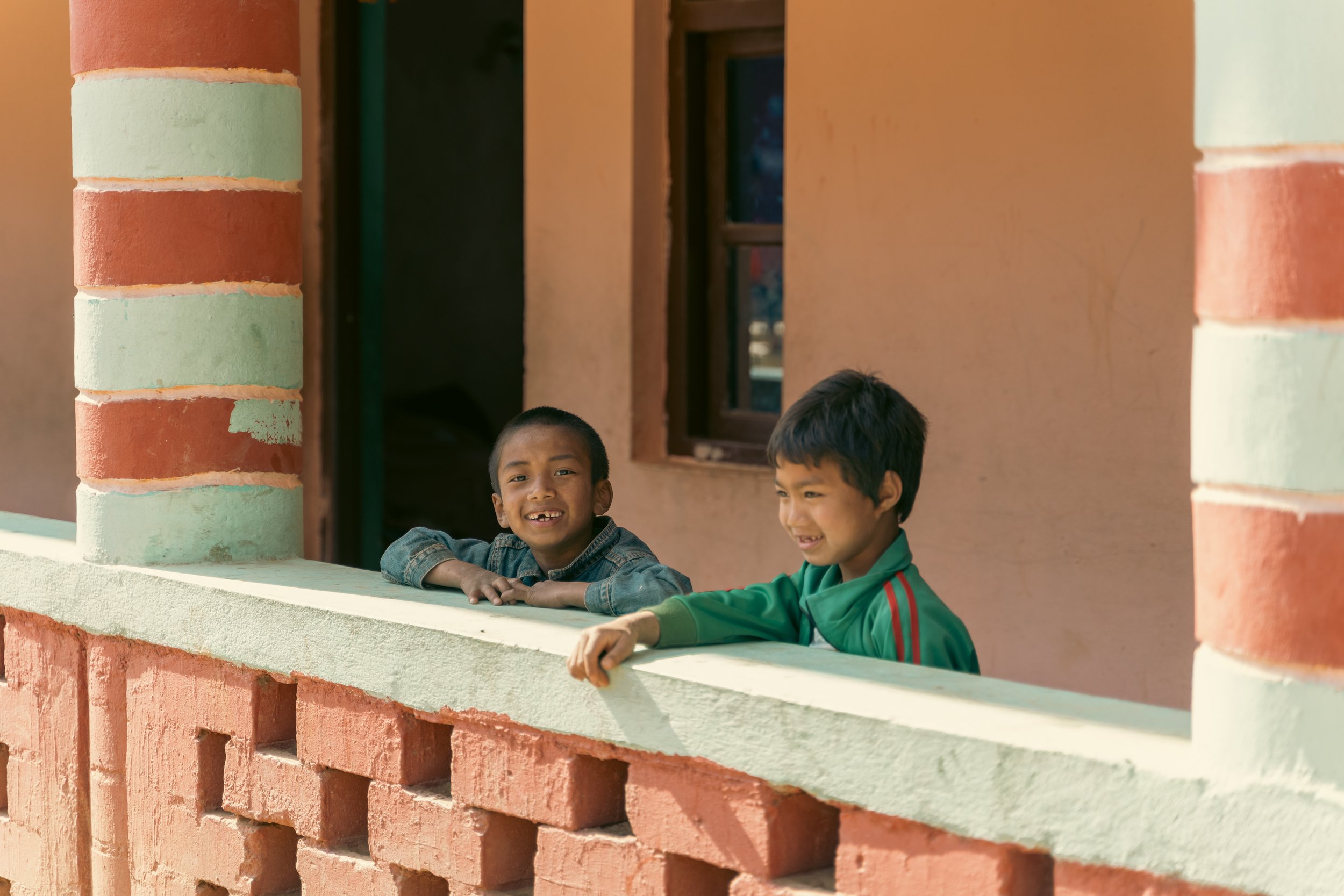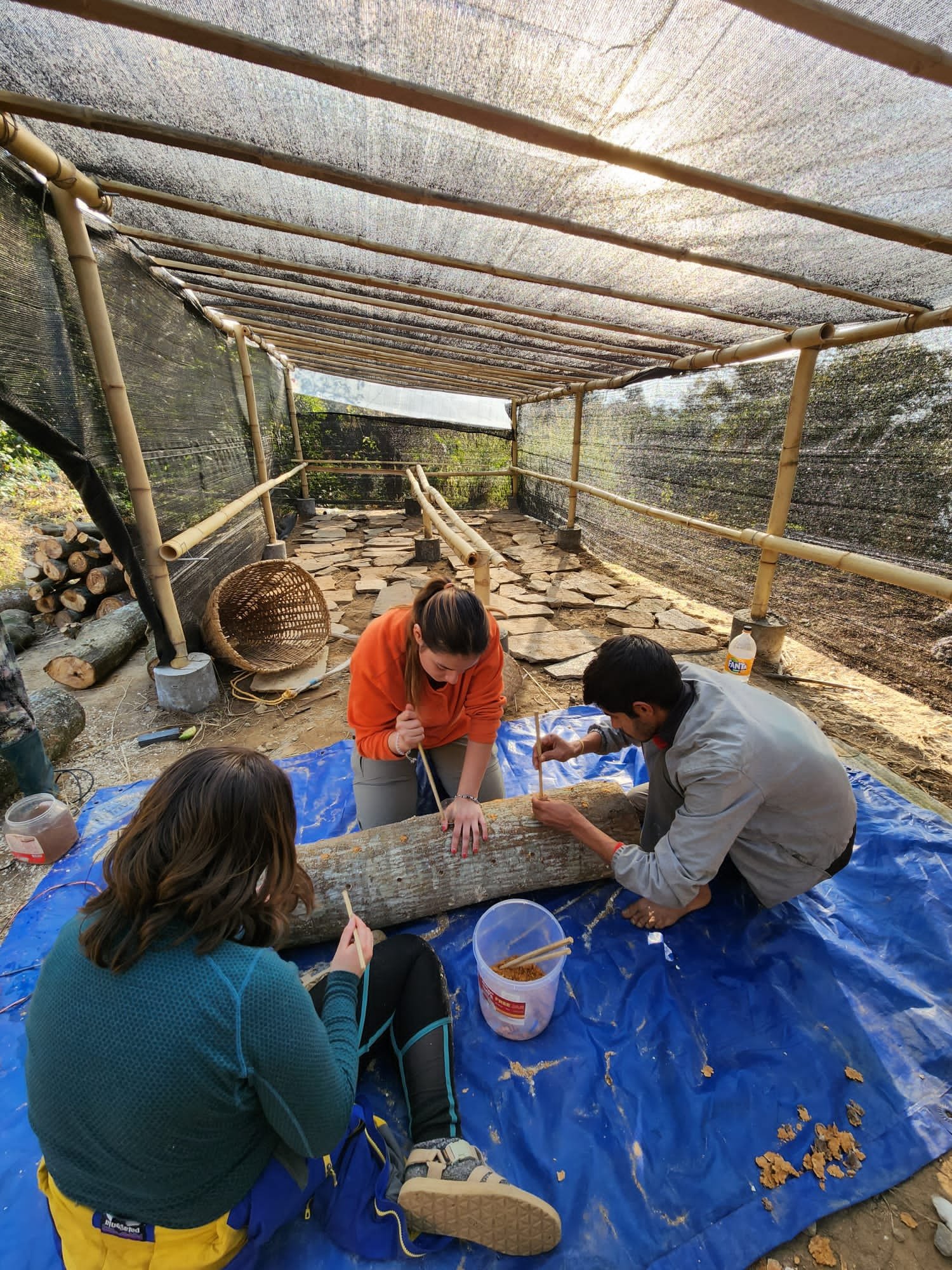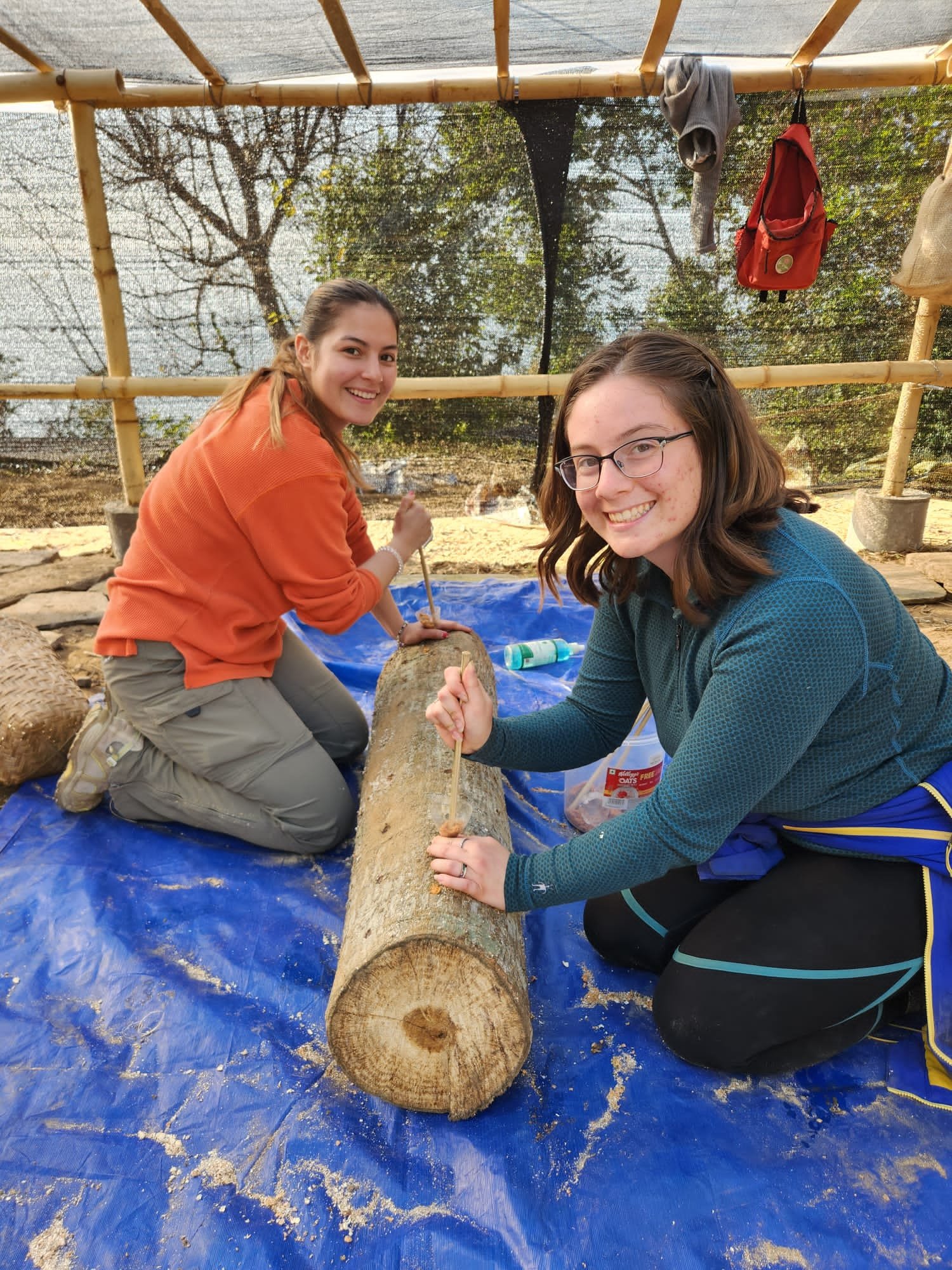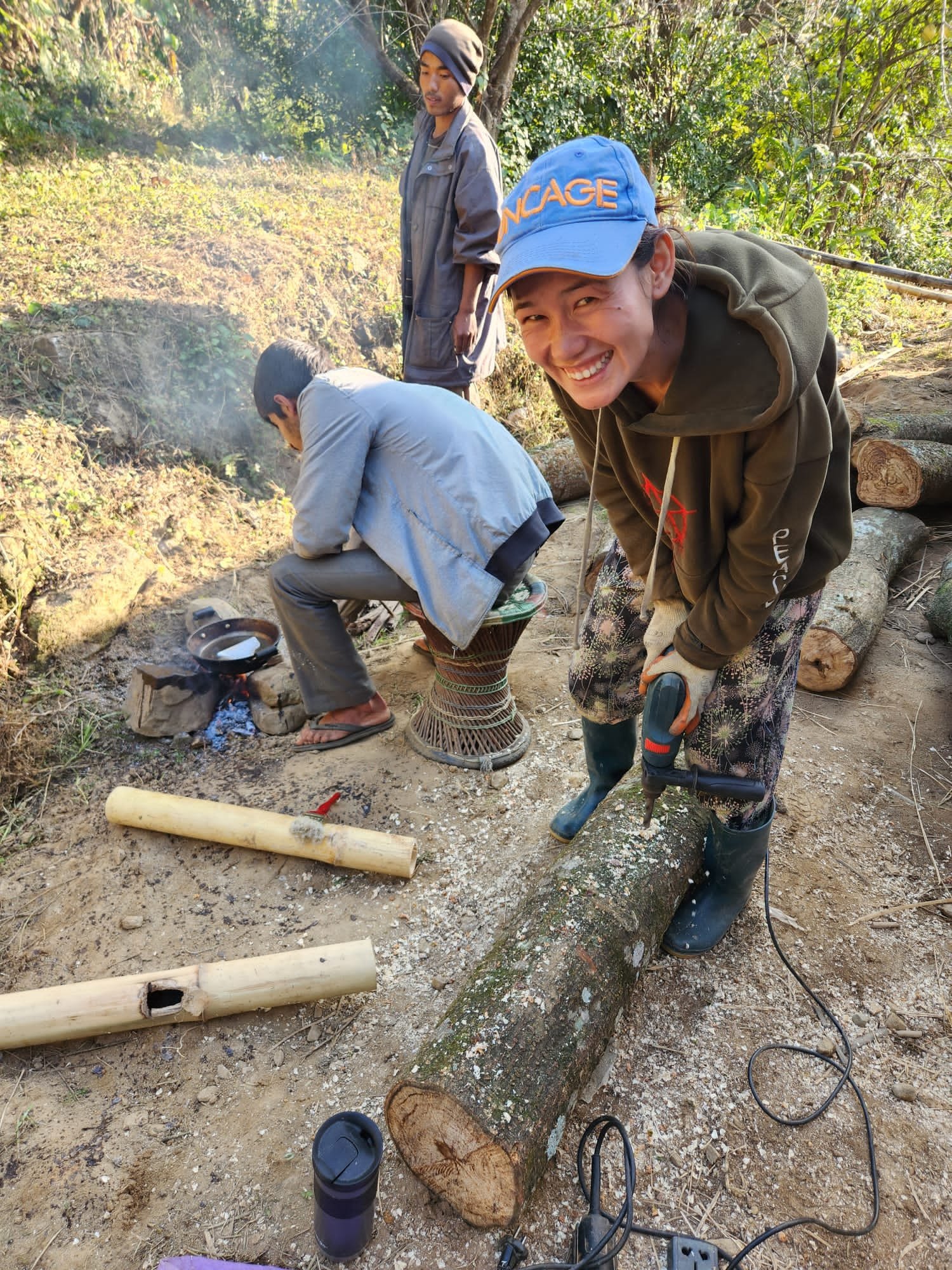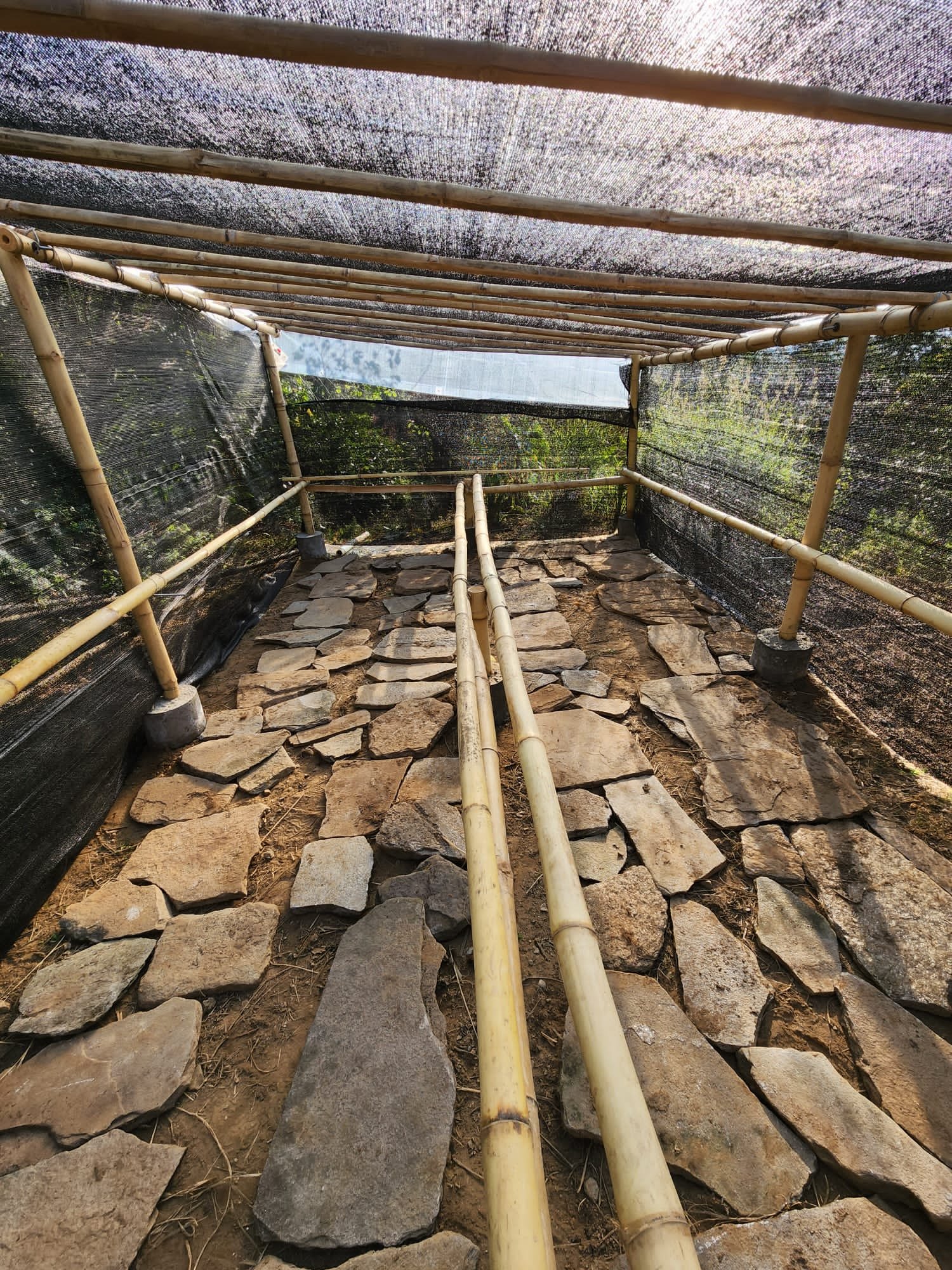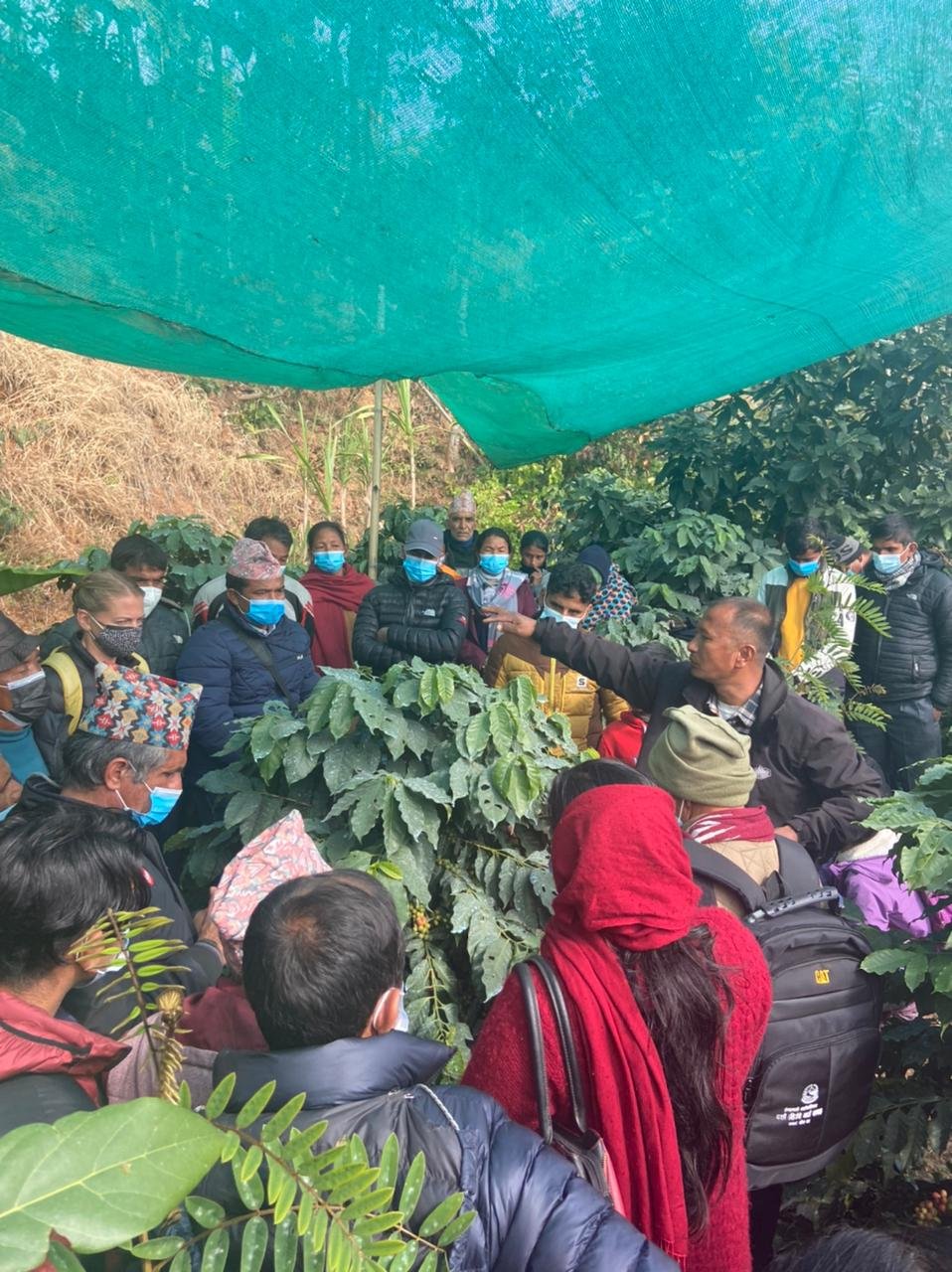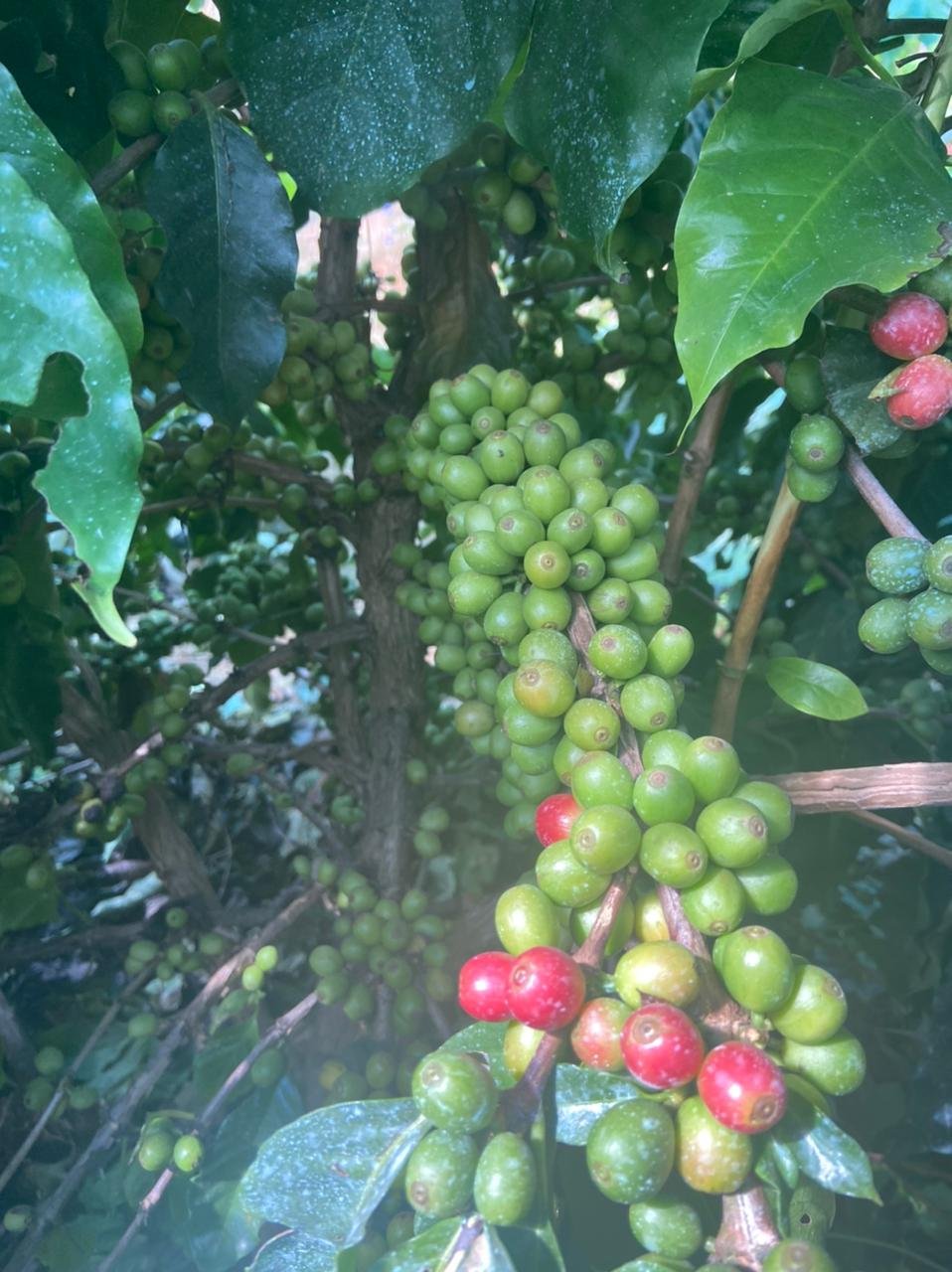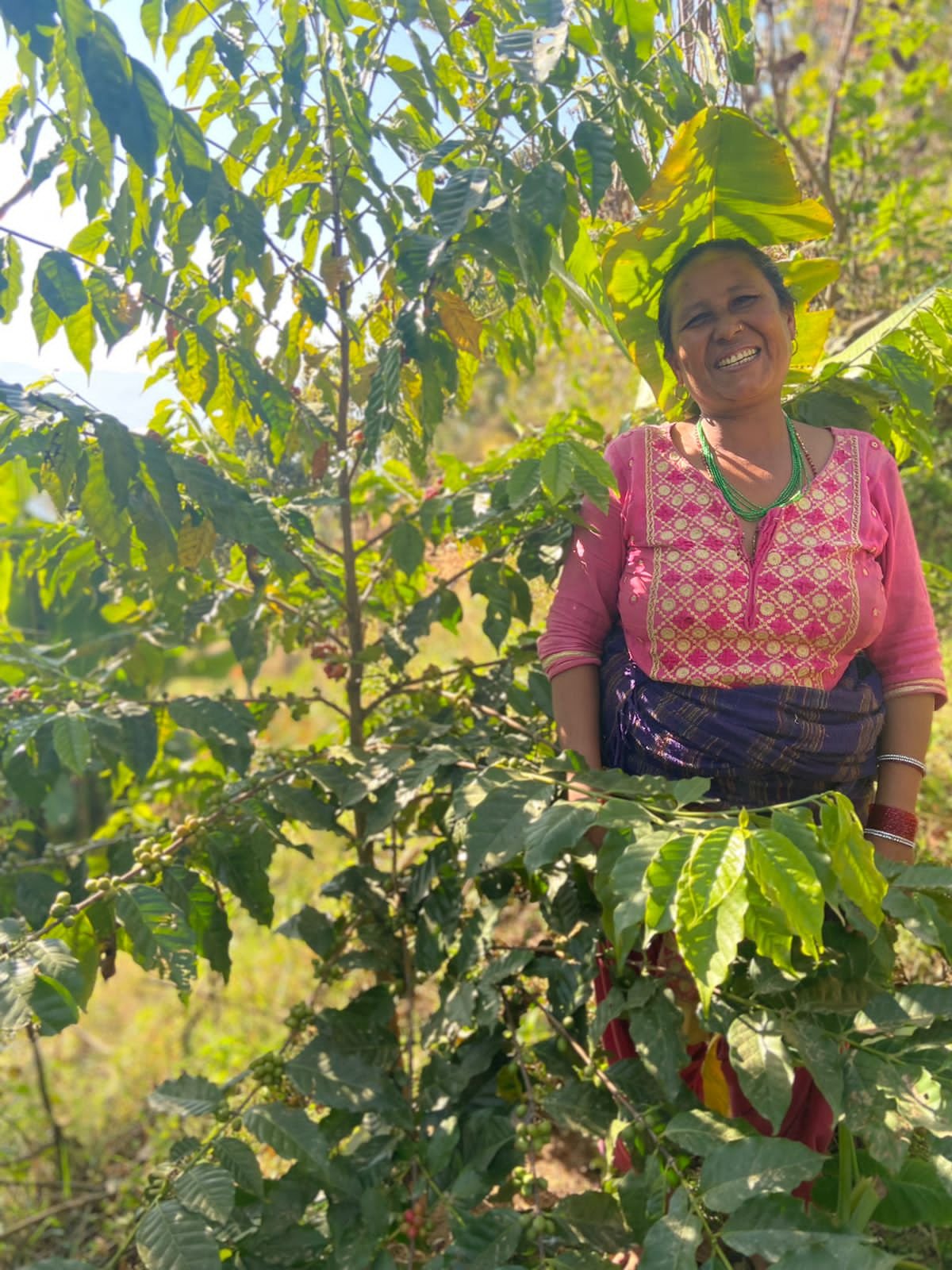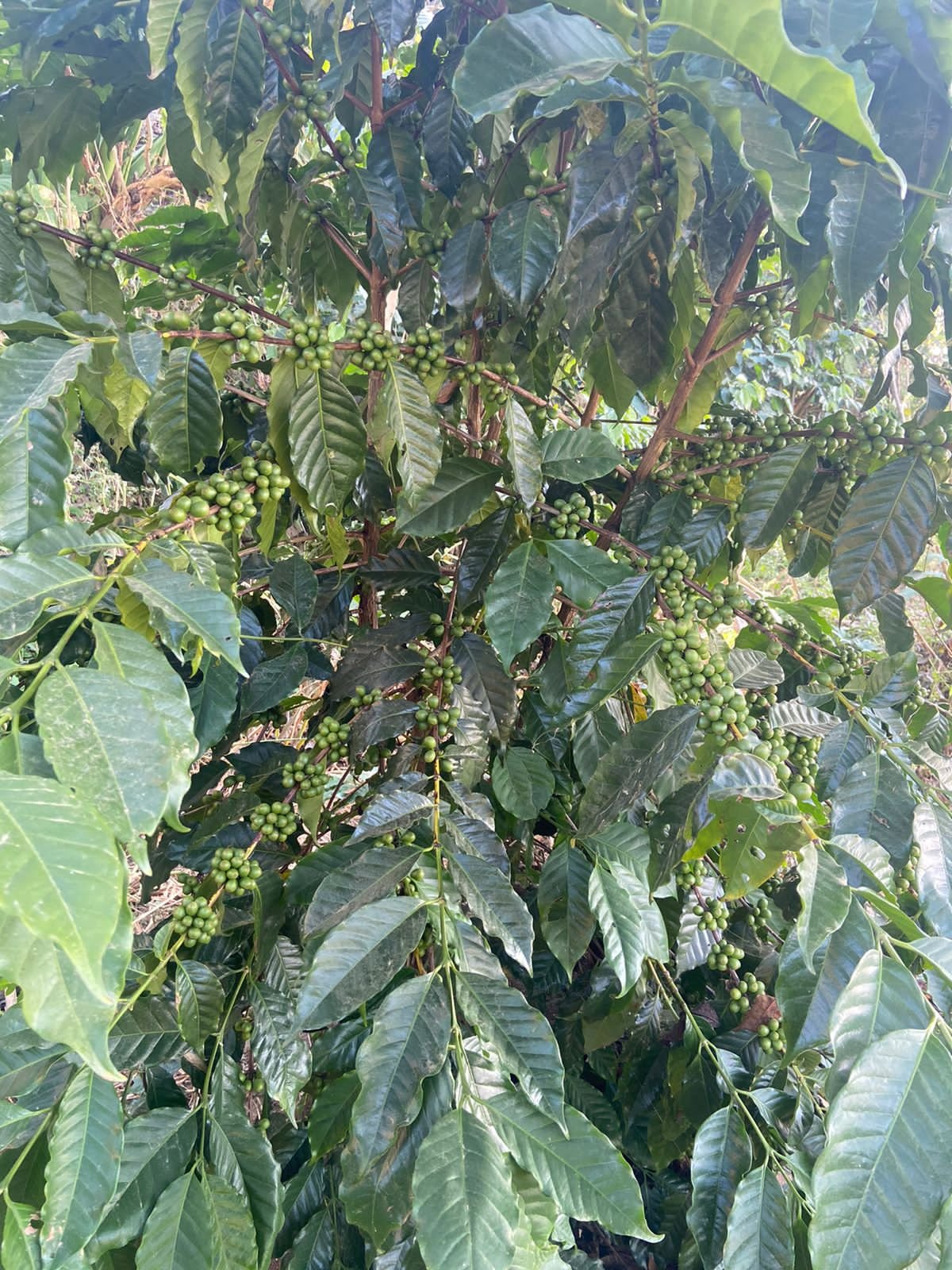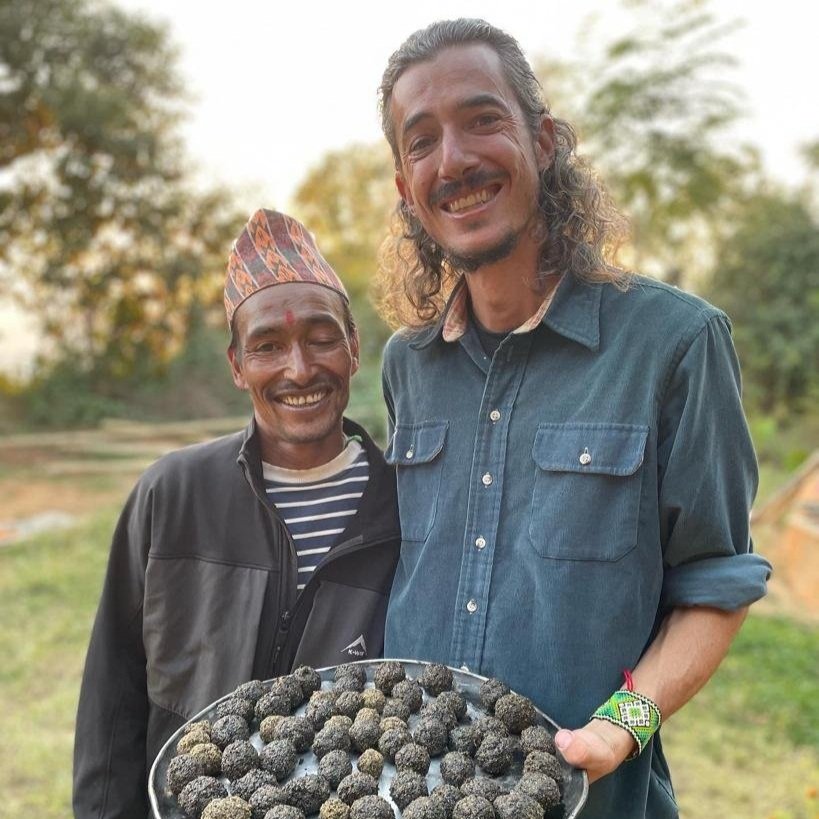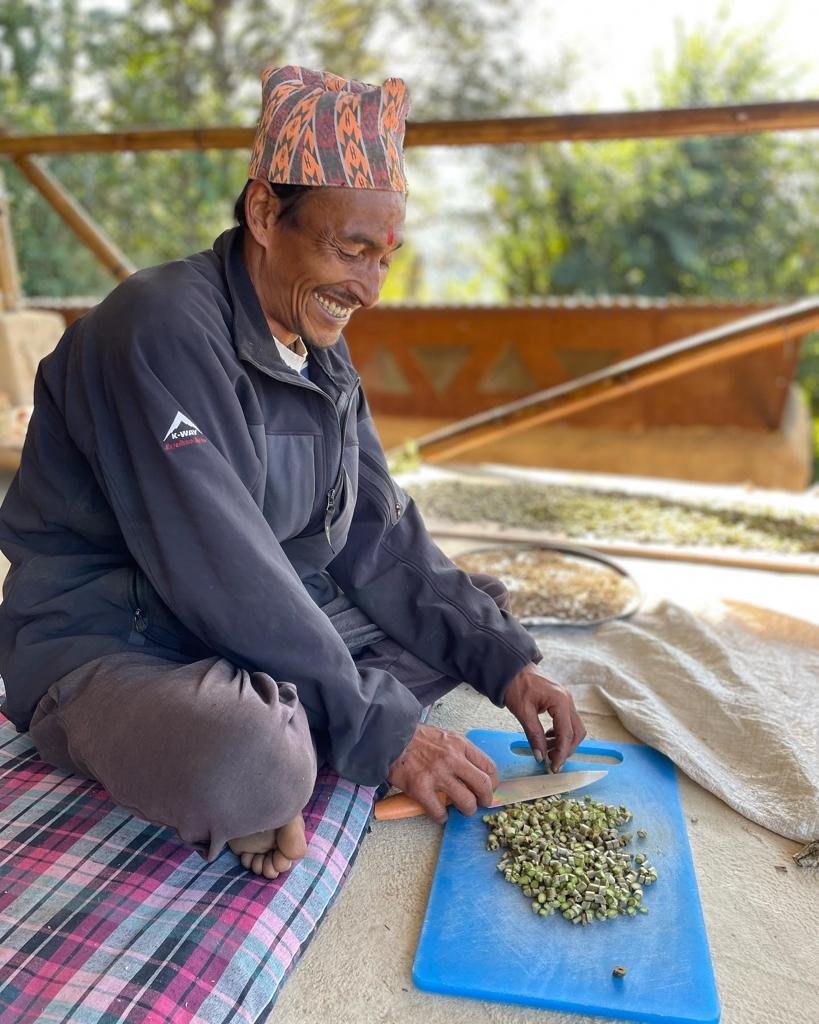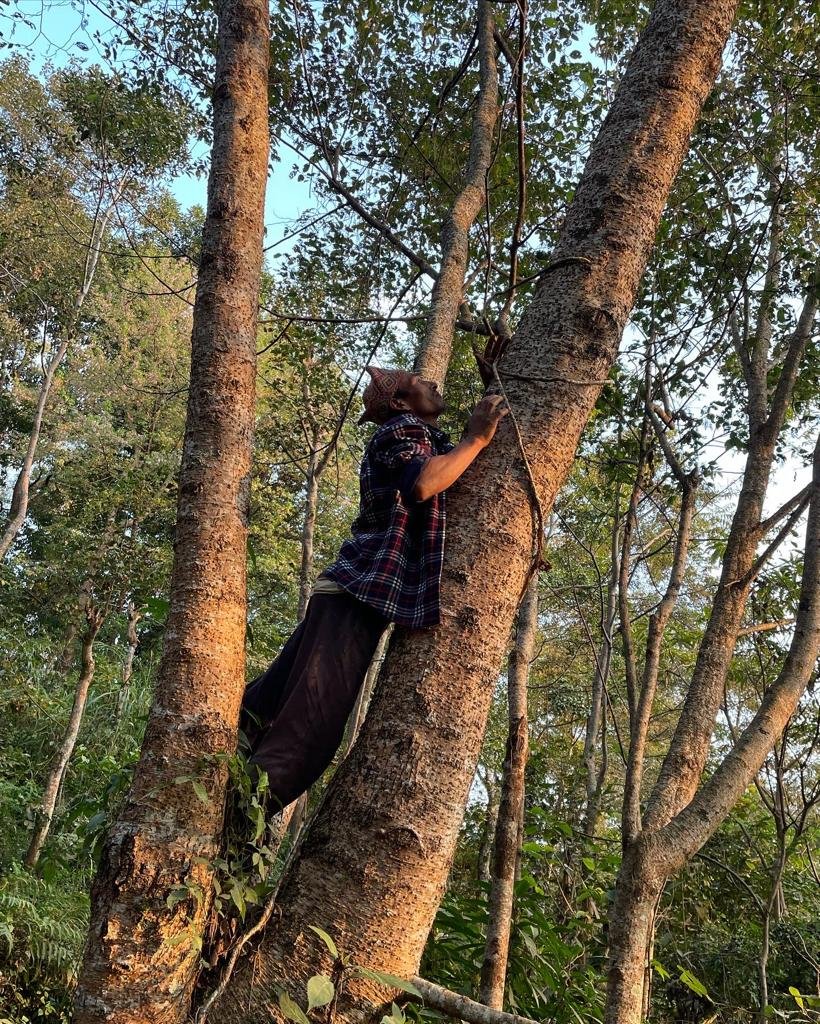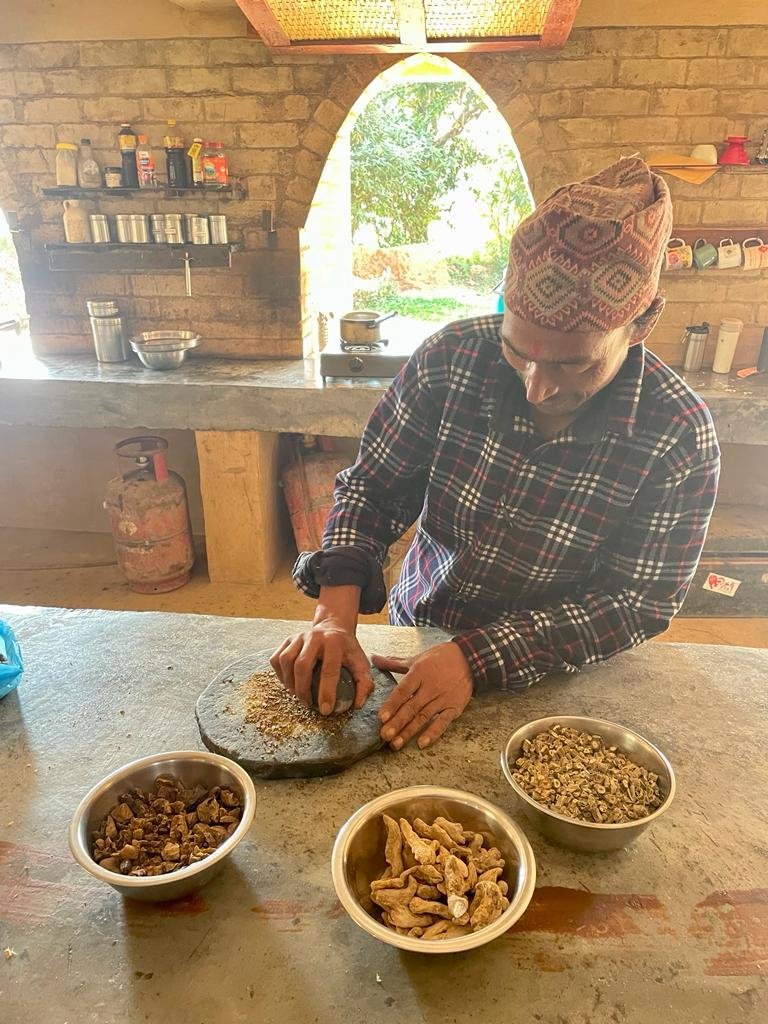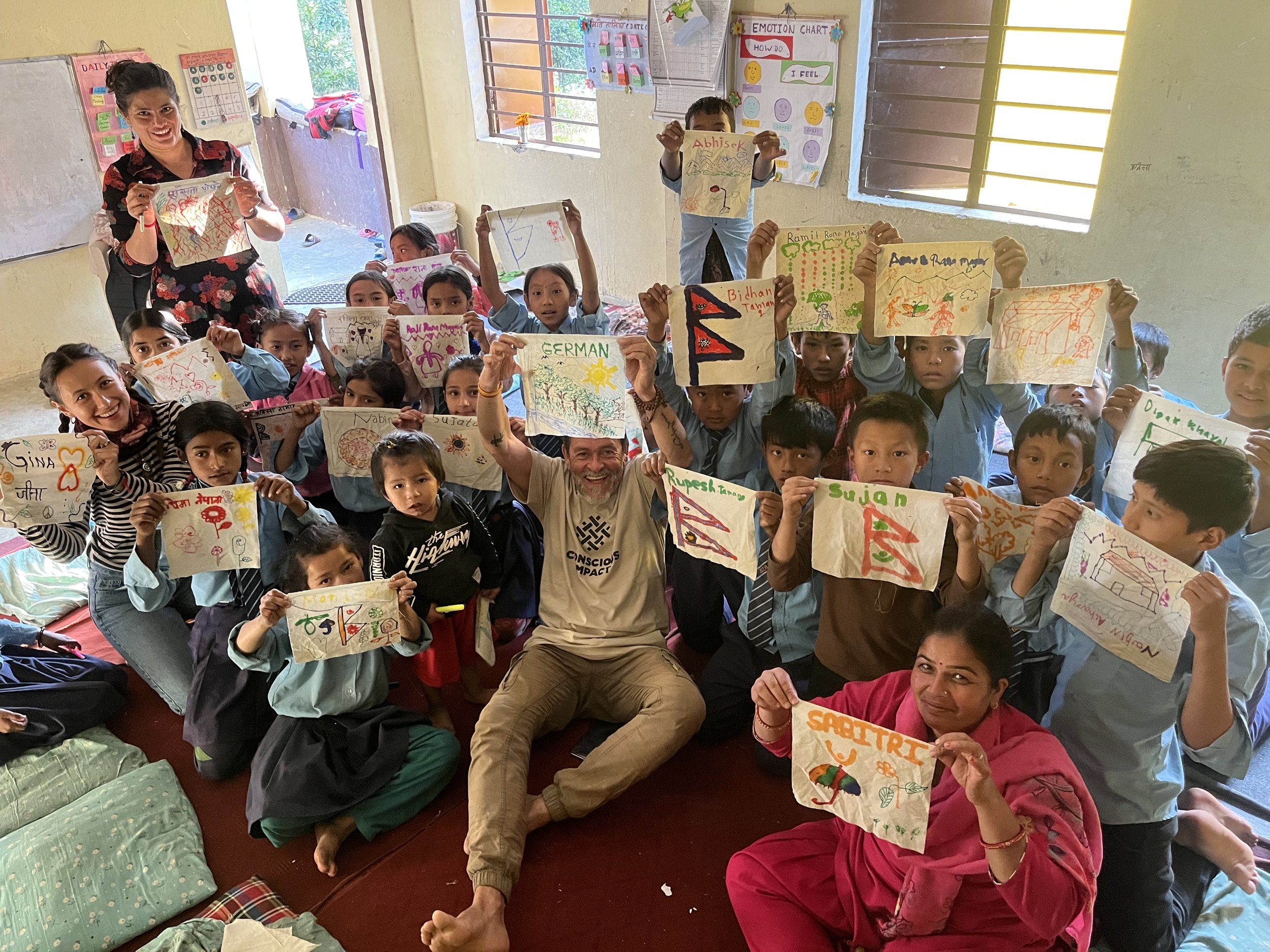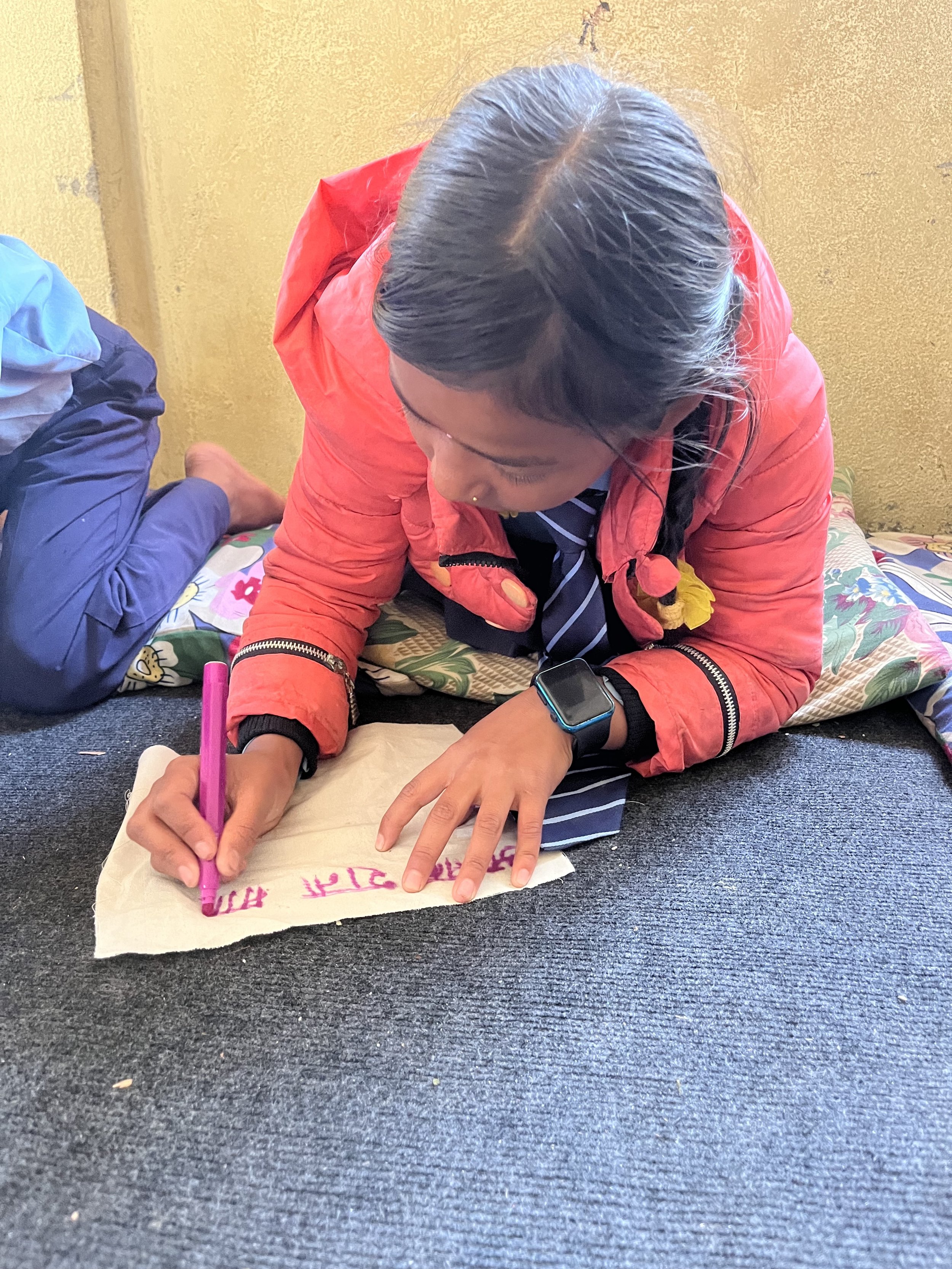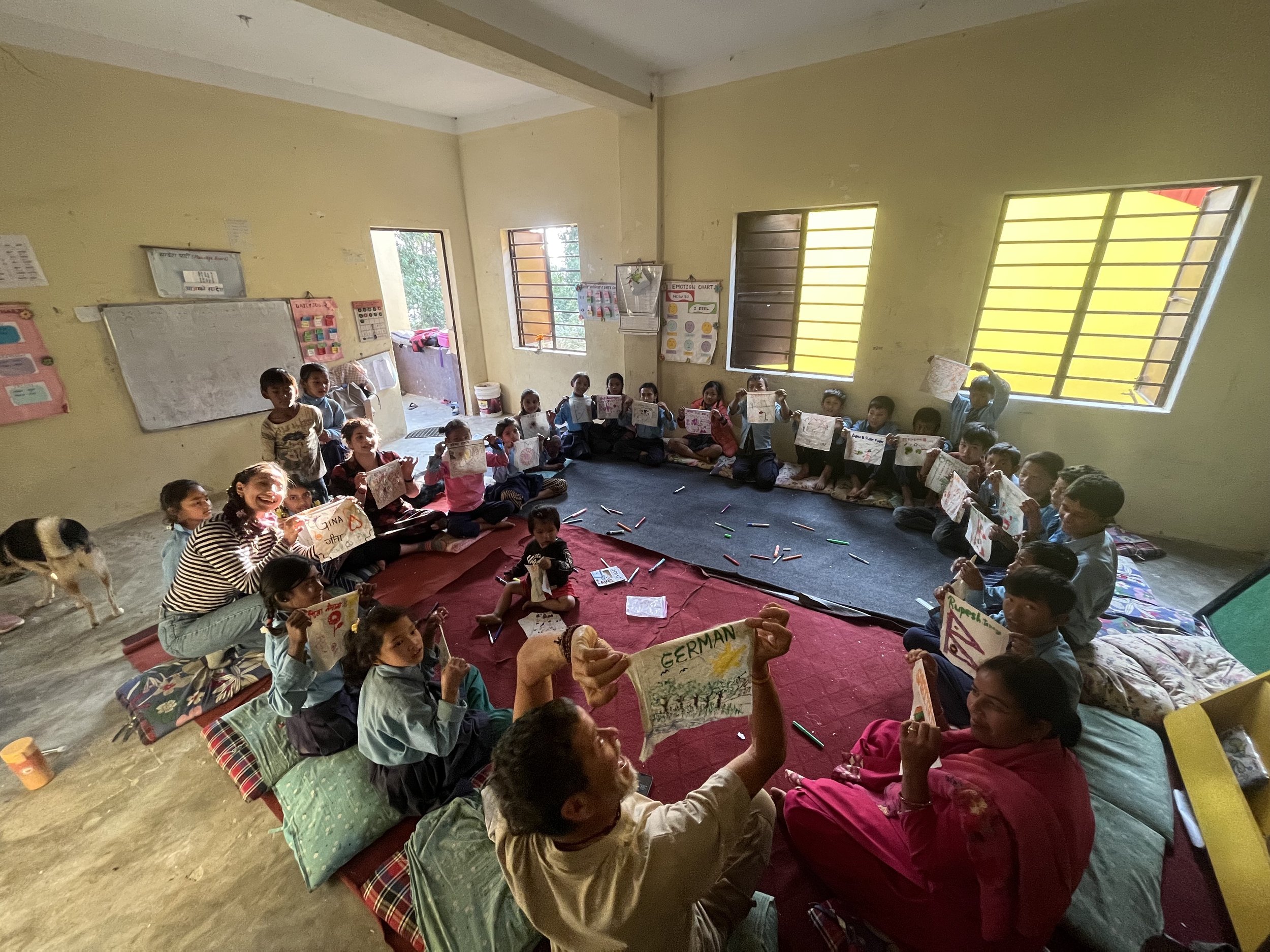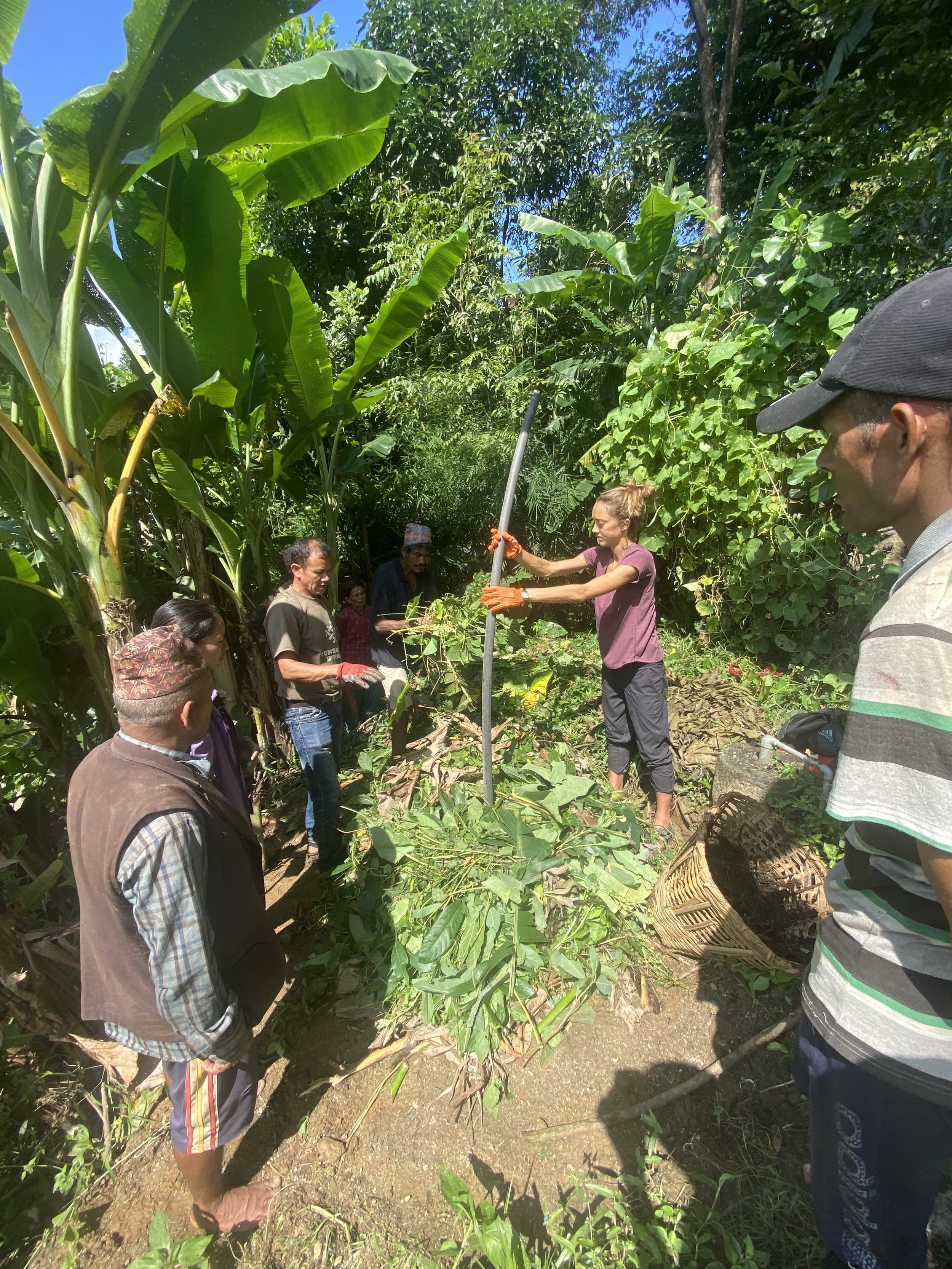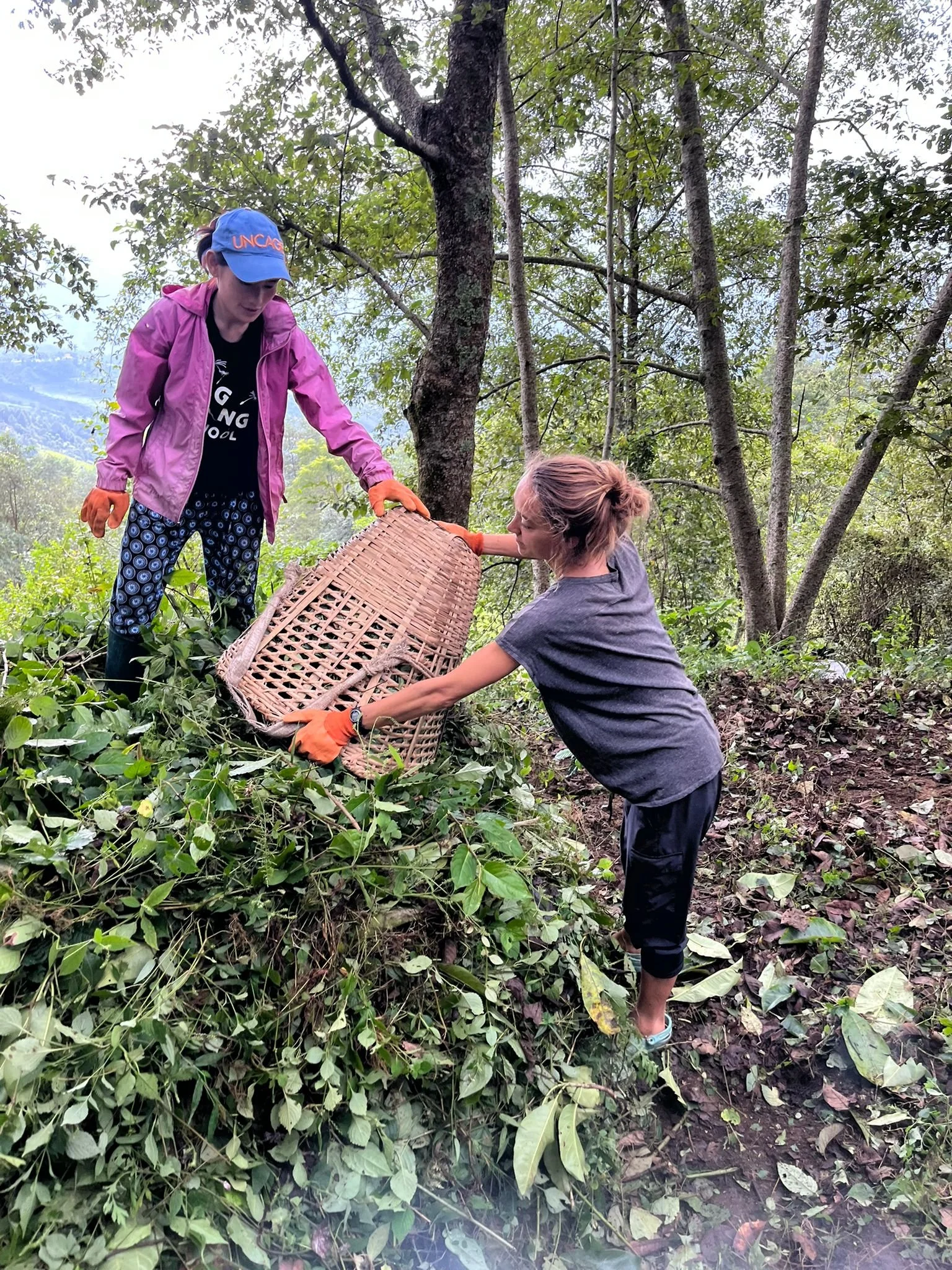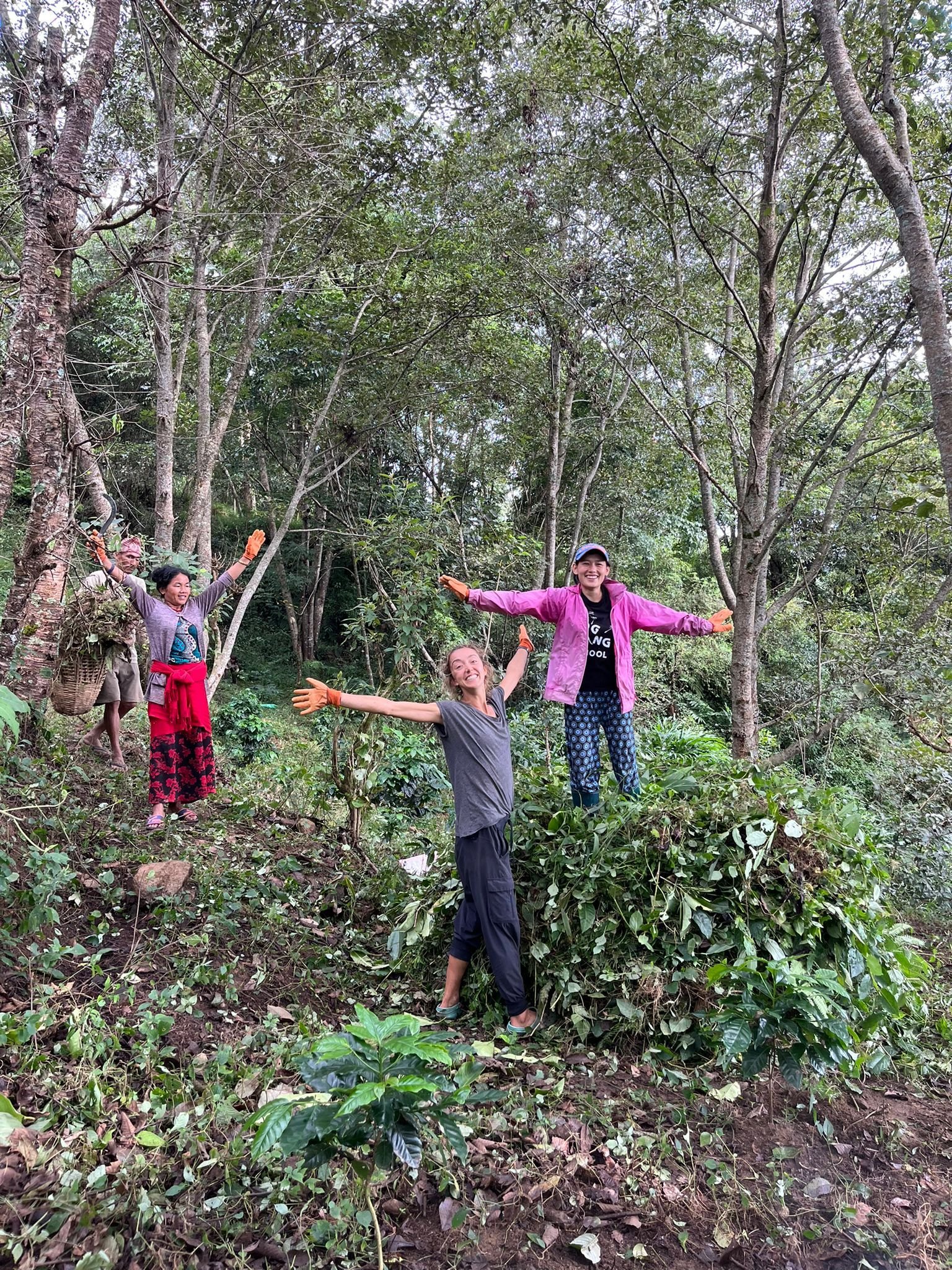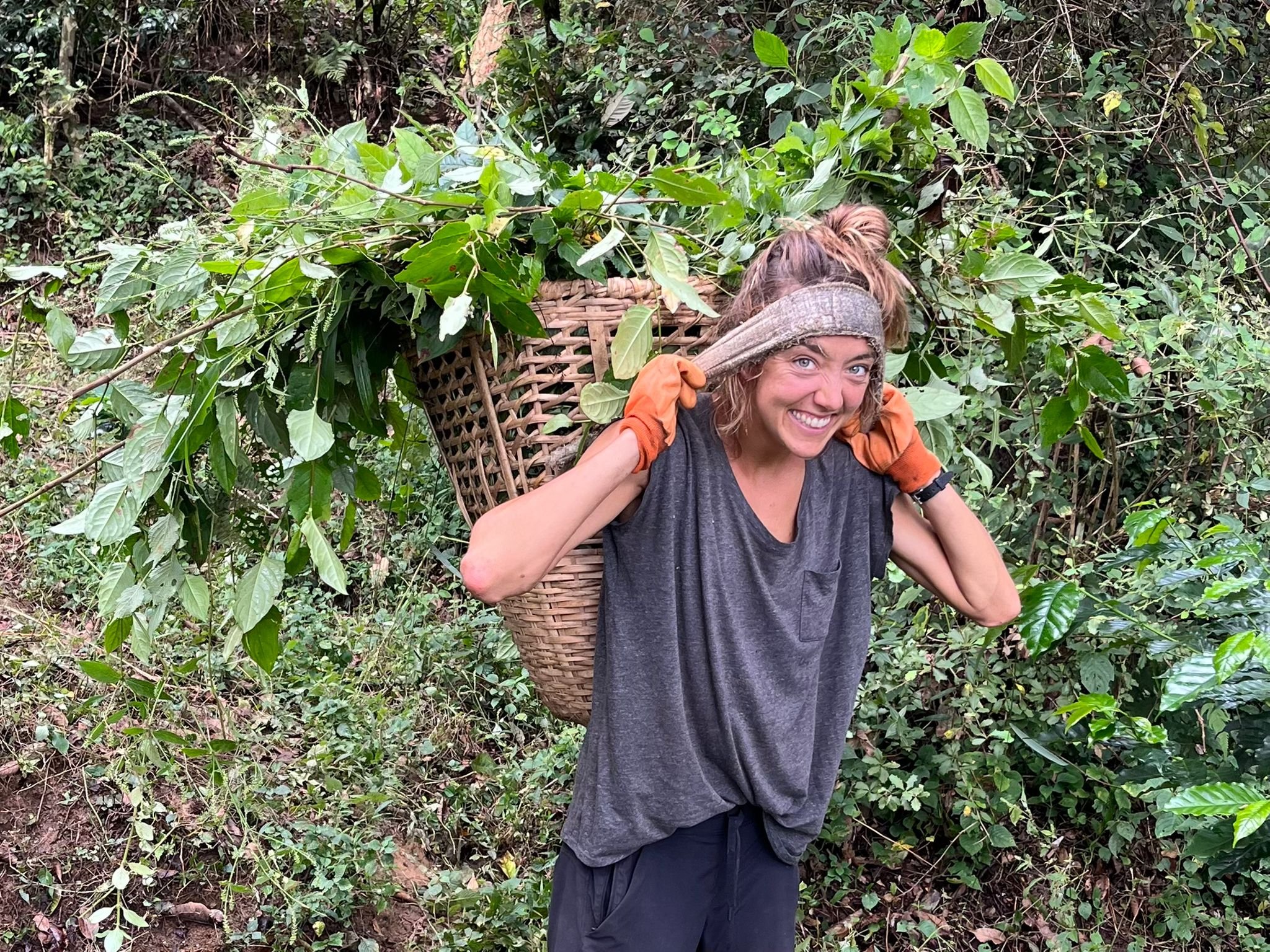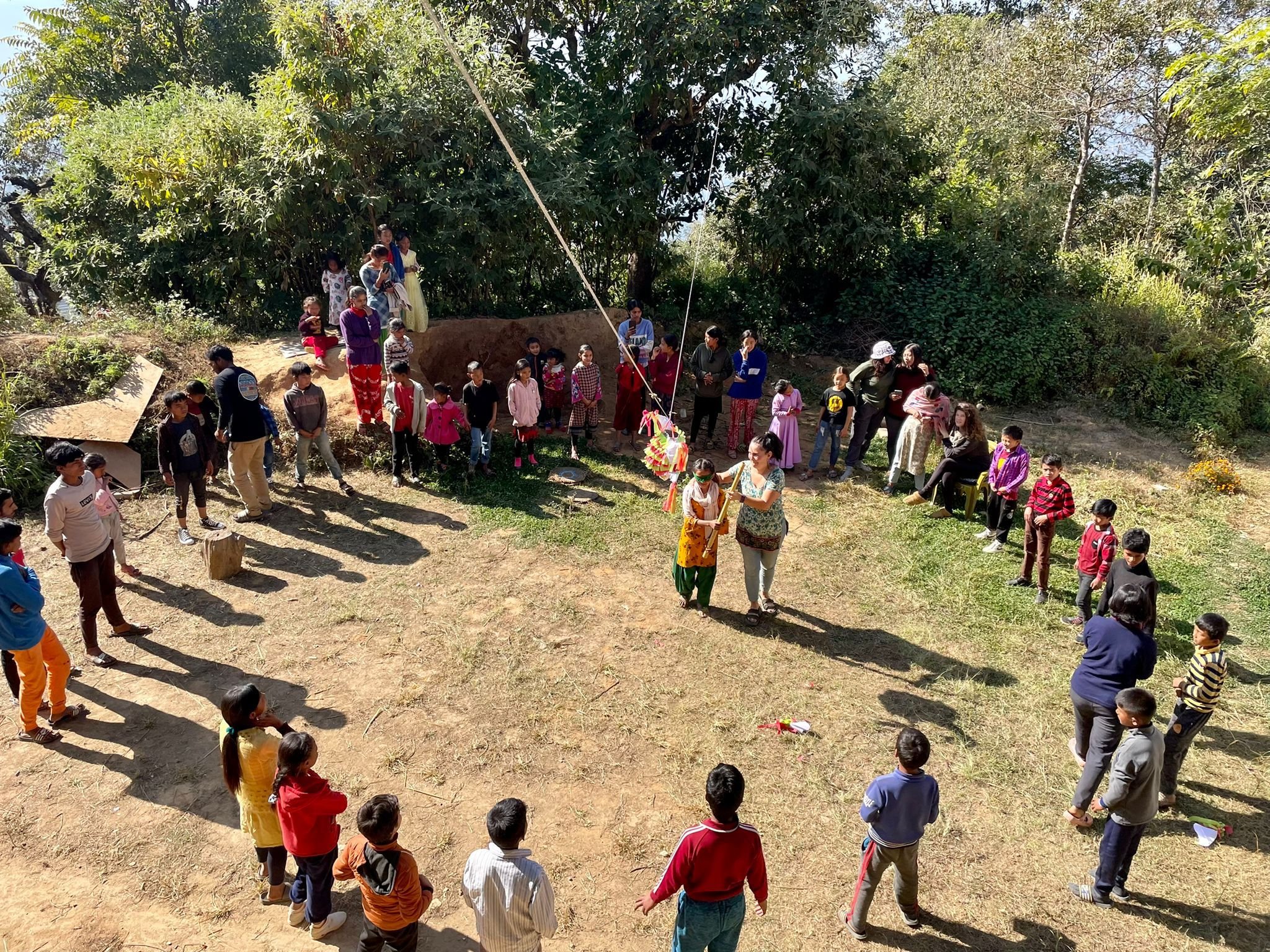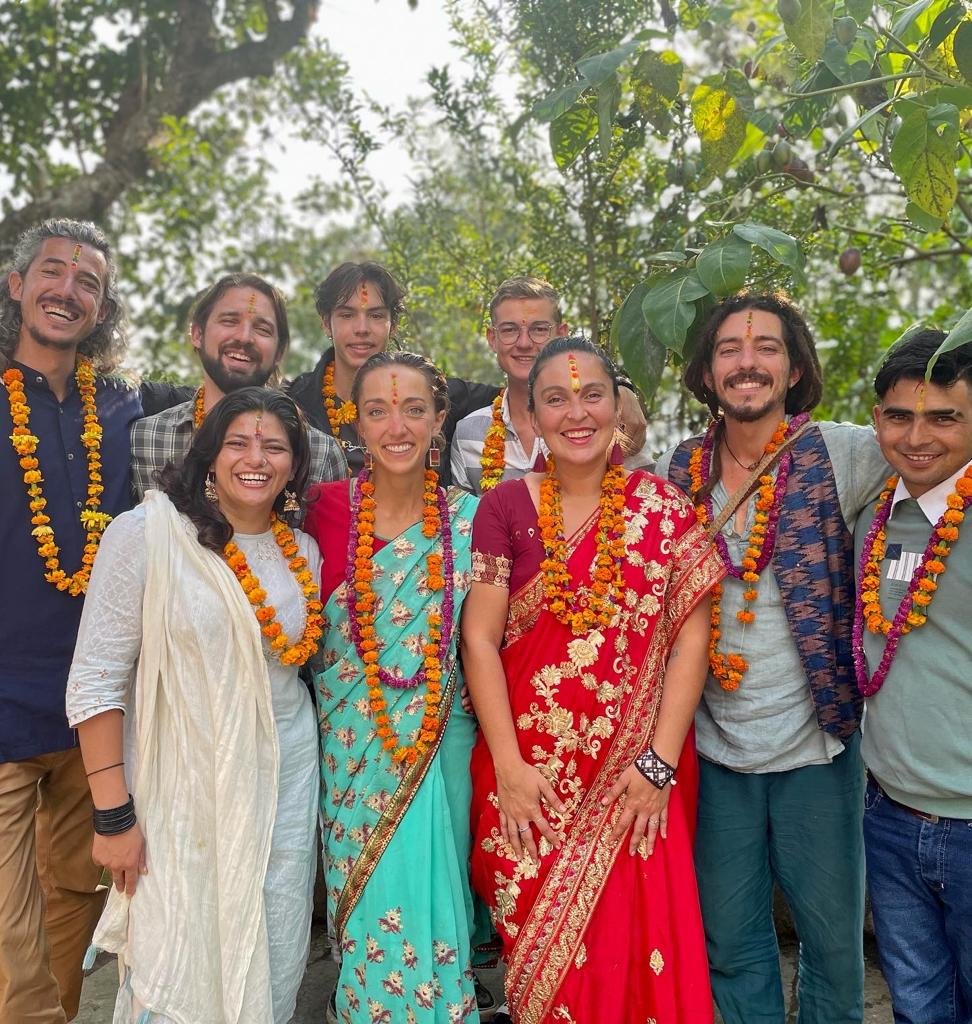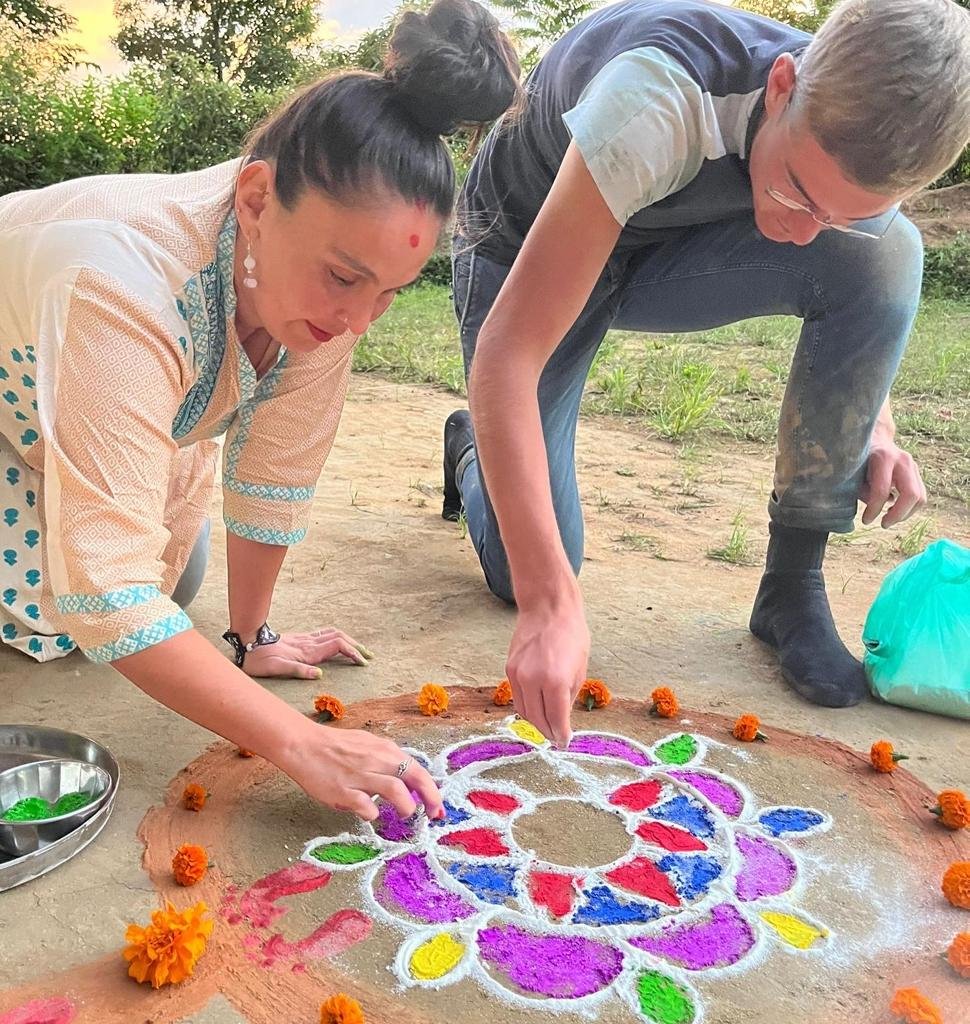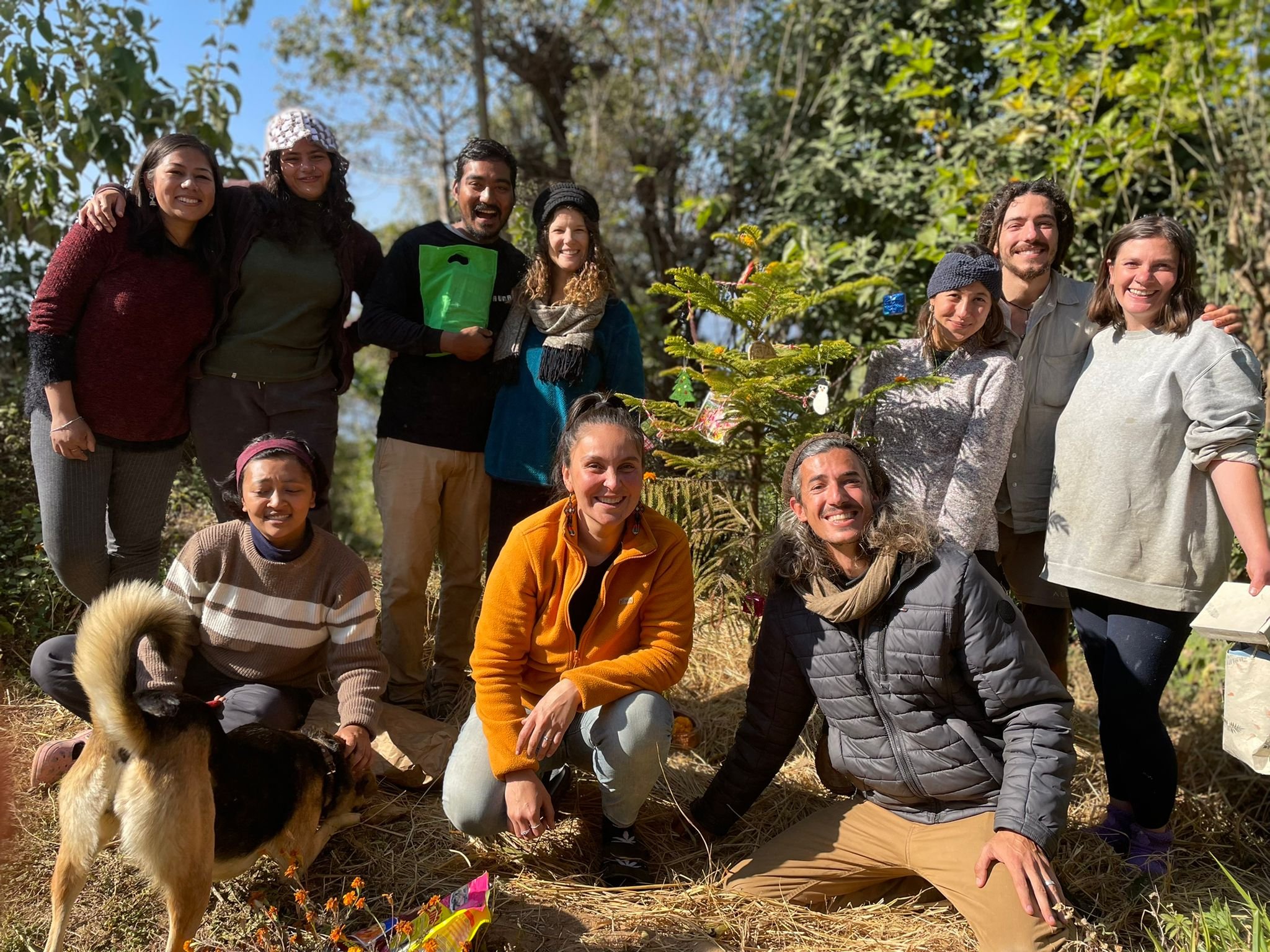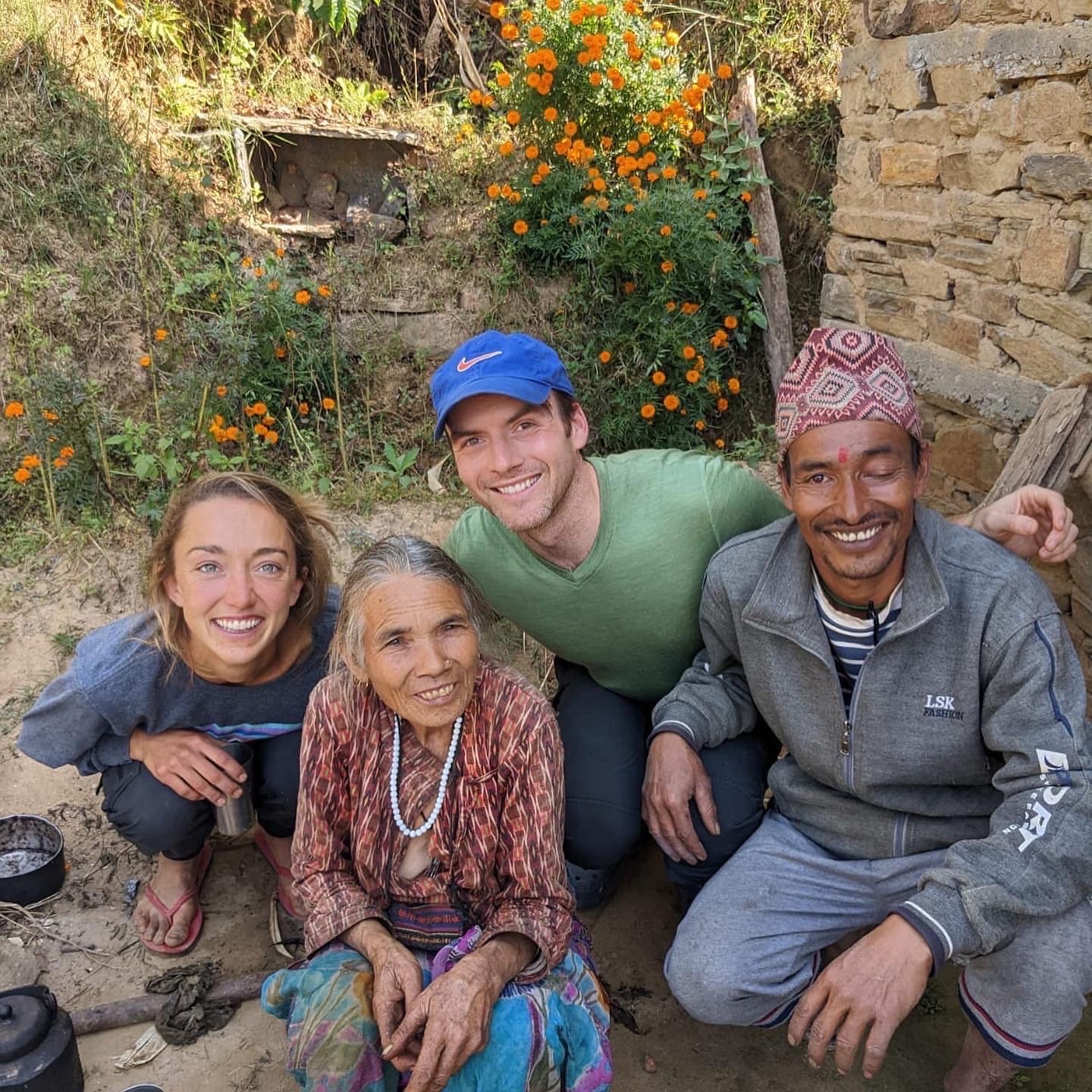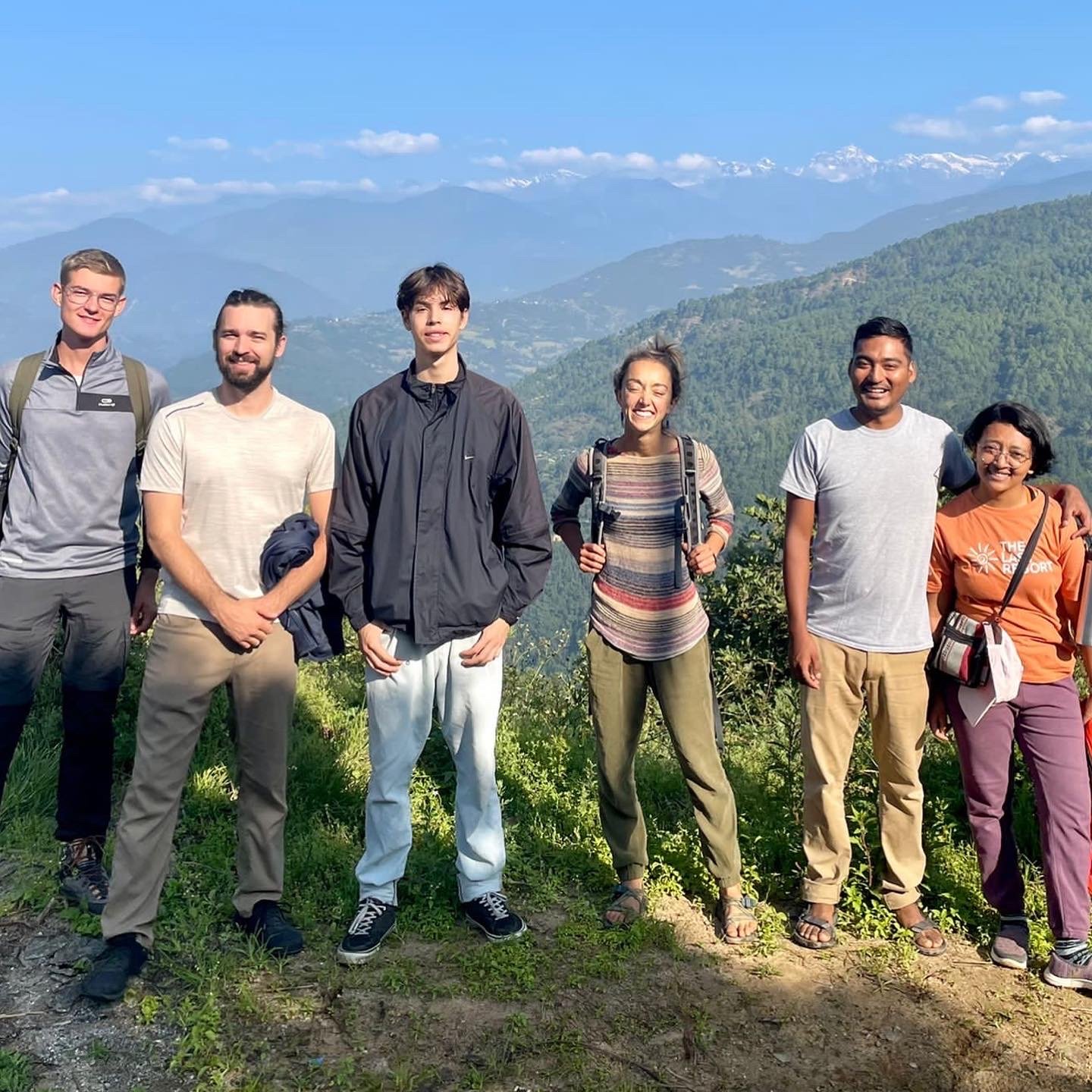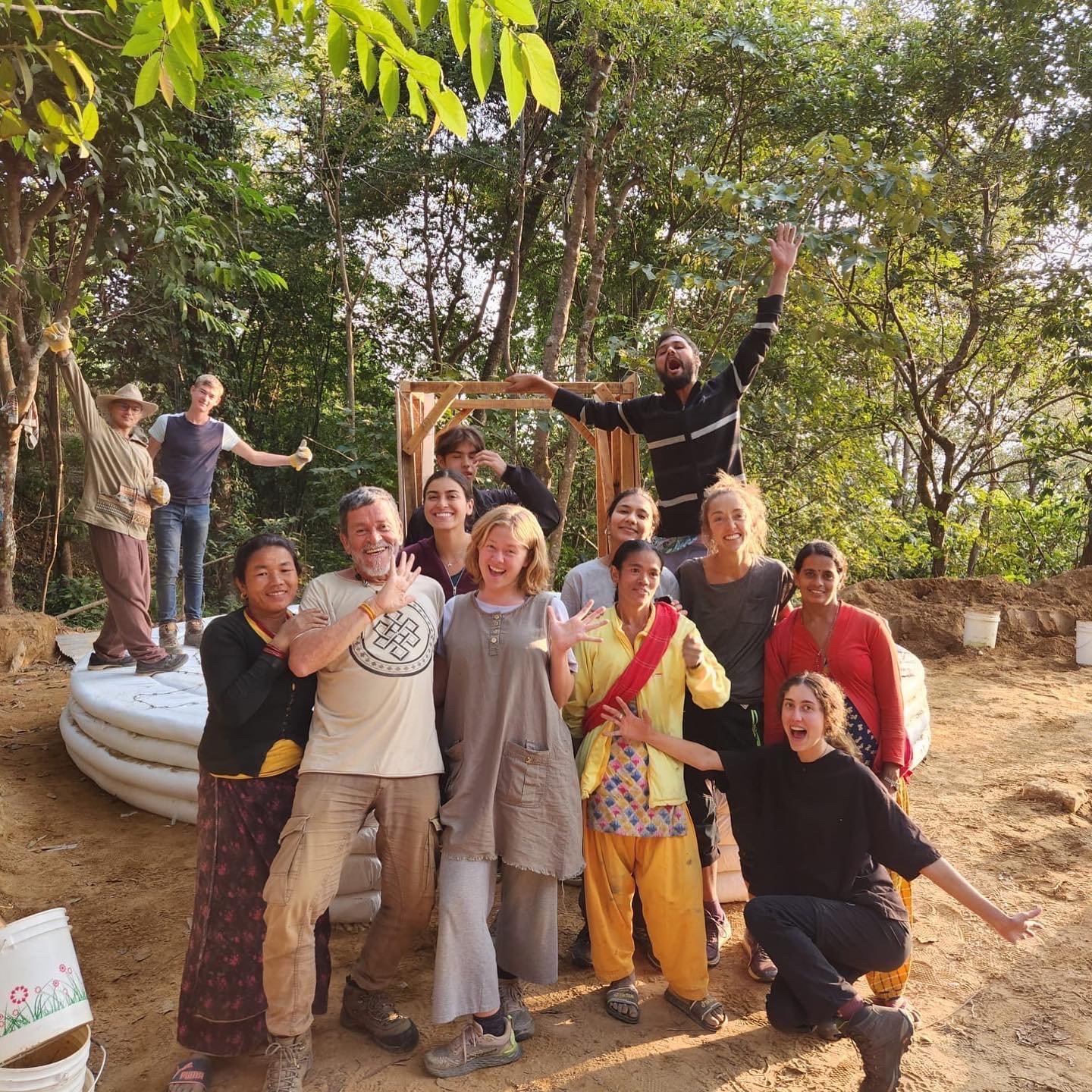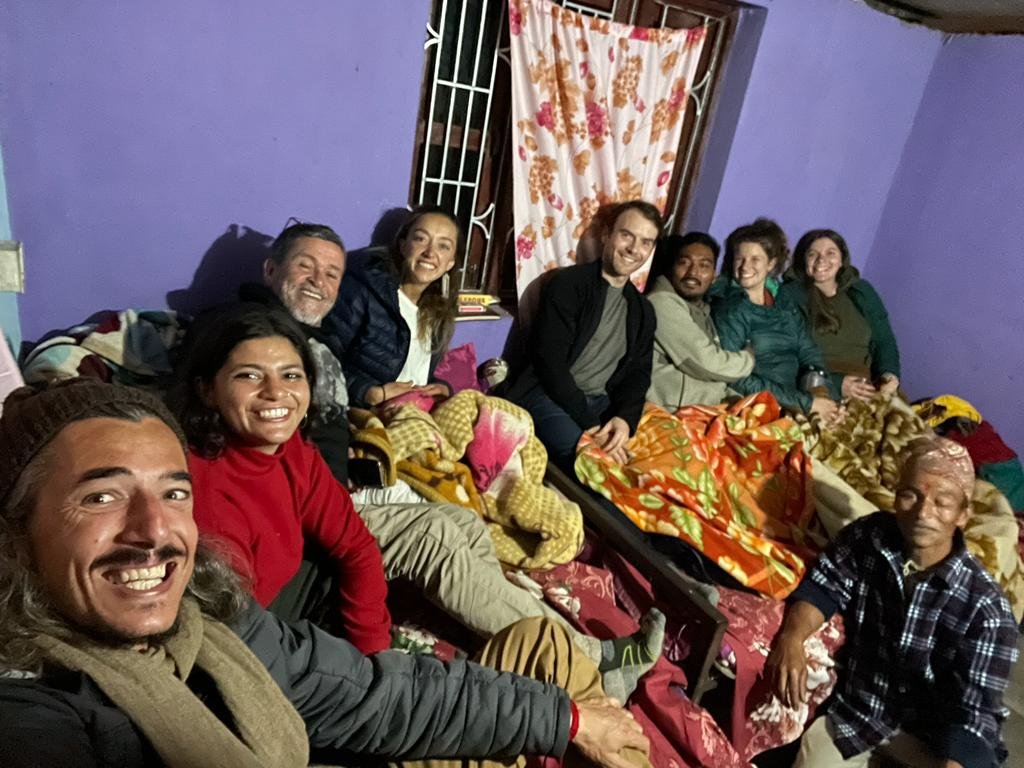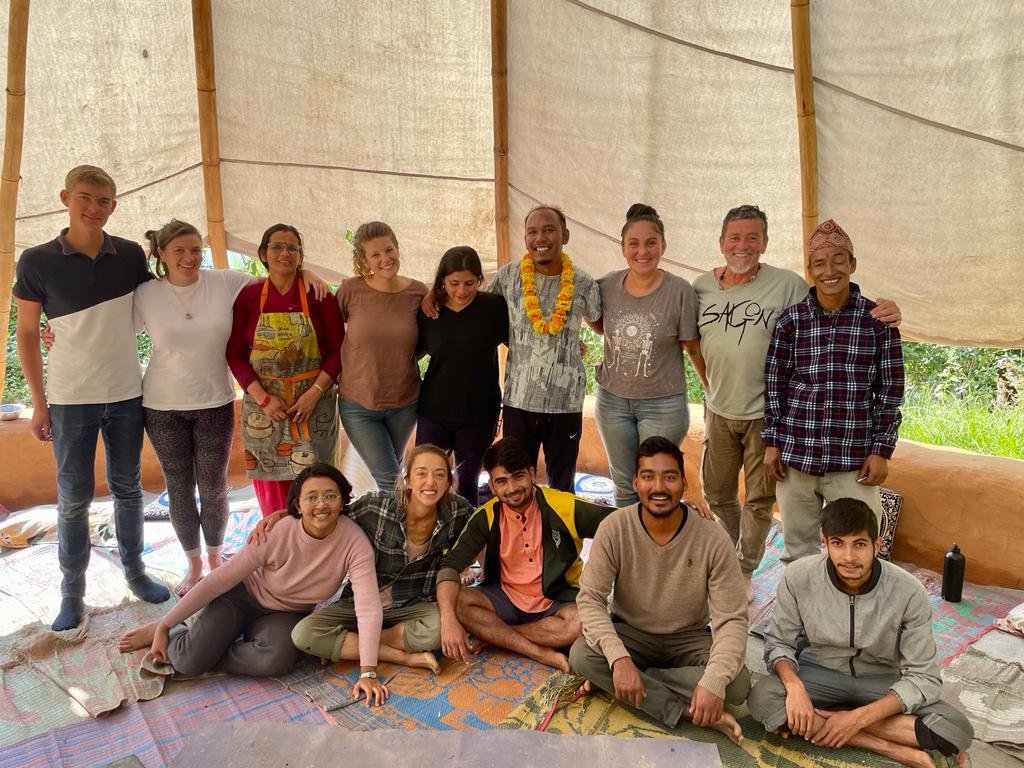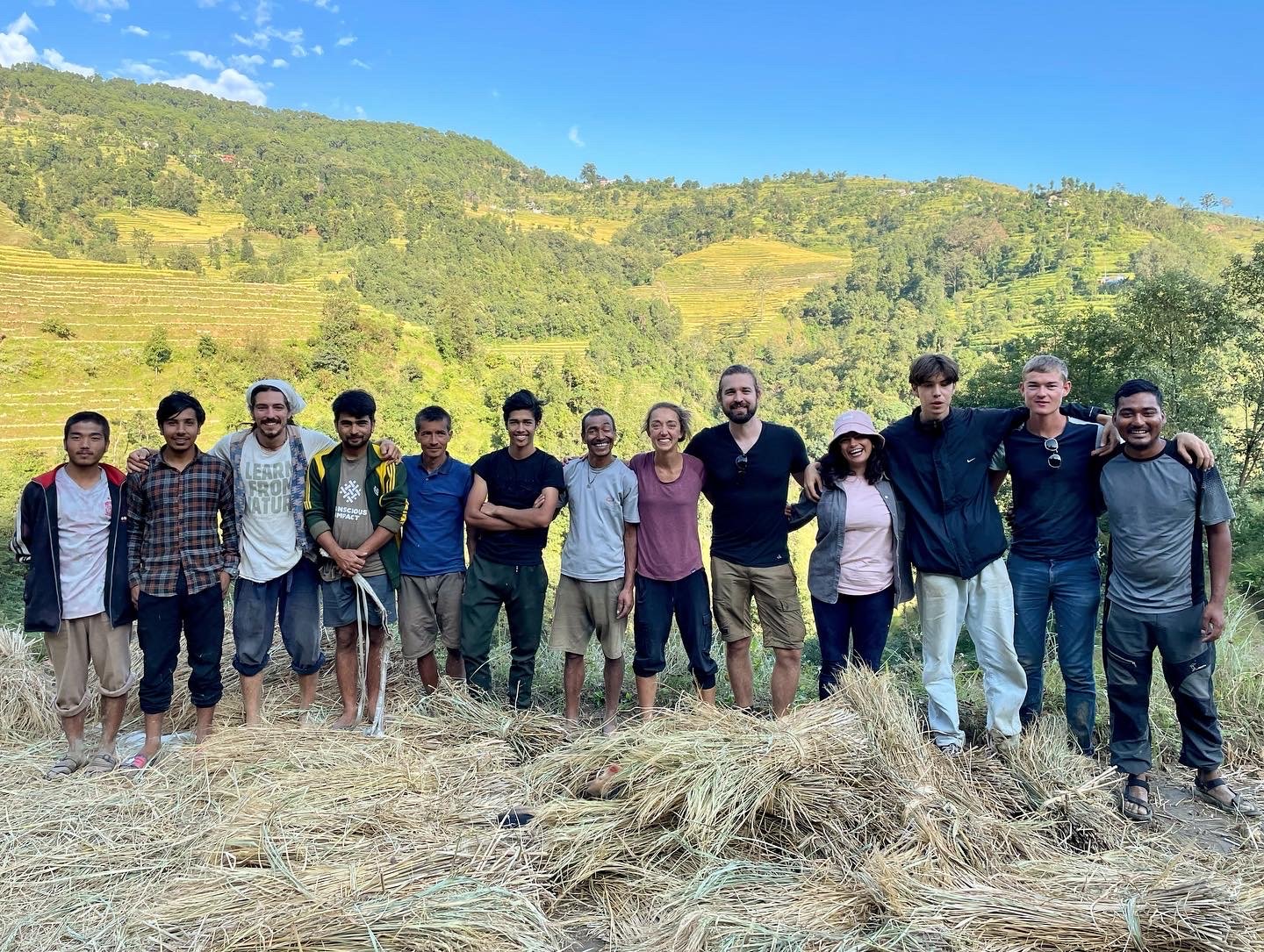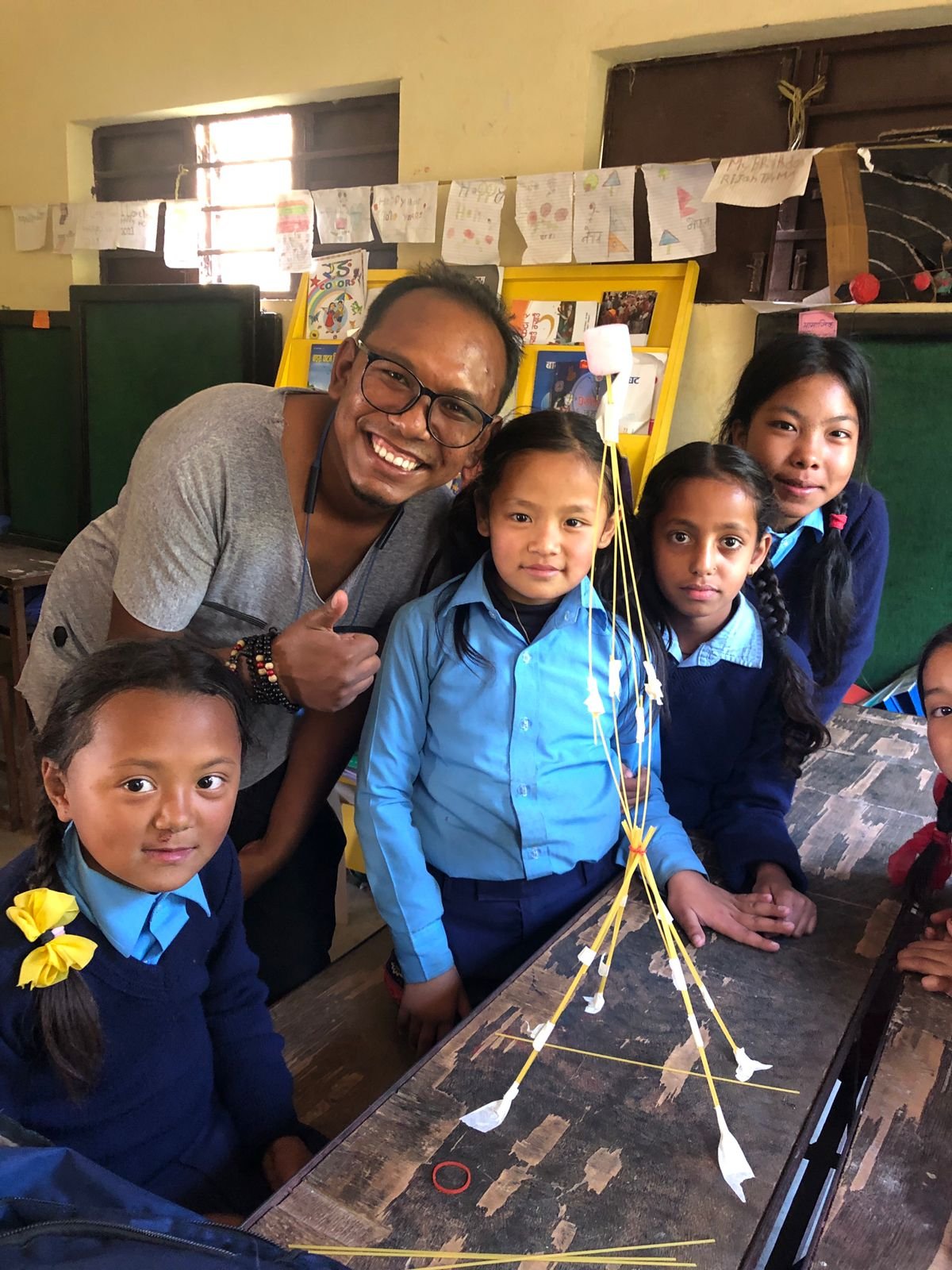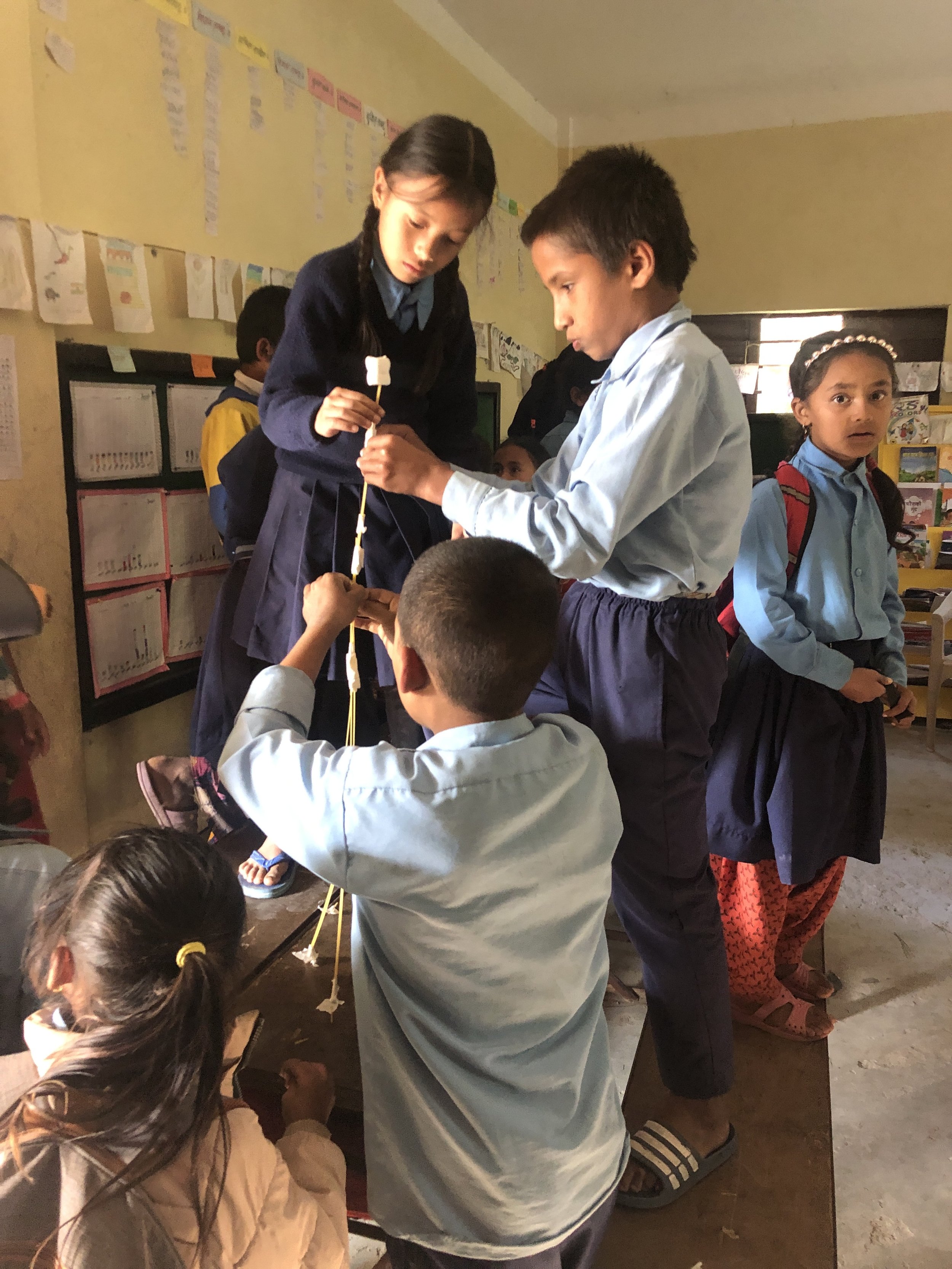Take a look at our 22 best moments from 2022!
2022 was a big year for us — we completed our biggest community project and reopened volunteer programs! We are so grateful to all of the donors, volunteers, and community partners that made this amazing list of 22 moments possible. After 7 years of doing this work in Takure, we are still so inspired and committed to our mission — to connect people to themselves, to one another and to the Earth through conscious, effective and positive service work in rural Sindhupalchok. Thank you for helping to make this happen!
1. a complete, new water system for takure
2022 was a big year for us as we completed the Takure Water Project! After nearly 5 years of discussion, 2 full years of community mobilization and government coordination, and 1 year of fundraising, it is amazing to see the 96 household taps bring water directly to every community household. We are so grateful to everyone who made this water project possible.
2. 800 kgs of coffee picked and processed
Local farmers in Takure and the surrounding villages harvested more than 800 kilograms (or 1760 pounds) of red coffee cherry this year. After 5 years of planting coffee alongside these farmers, what a joy it was to see them happy with their harvests. We hope these harvests continue to grow year after year and that local livelihoods are supported by this additional income.
There is still time to get Takure Coffee in your own home!
We would love to have you try this delicious, specialty coffee that was grown, harvested and processed by farmers in Takure. Become a monthly donor before 2023, and we will send you a 250 gram bag of freshly roasted coffee this January!
3. The school mushroom project
Recently, we partnered with the Simpalkavre Secondary School, about 1.5 hours away, to teach class 8 students how to cultivate oyster mushrooms. The students were taught the theory of mushroom cultivation and then we worked with them to pasteurize straw and prepare bags of oyster mushrooms. Each student will take home and care for this bag of mushrooms for 4-6 weeks until their family eats or sells the oyster mushrooms.
4. we built a 2nd dome!
And hosted our 2nd ever Earthbag Construction Training Courses led by Mariana Jimenez. The 12 day course taught the 8 participants how to build a dome from foundation to roof plus some plastering too. As a result, we have a beautiful dome that is 4.2 meter in diameter and will happily house our long term staff and volunteers at camp.
5. twelve (12) classrooms painted
We are still brightening up rural classrooms in Nepal, supporting students to have more inspiring and engaging learning spaces. In just 4 days a team of 8 volunteers works to make 2 school classrooms for young kids beautiful, colorful and fun for learning. It is a transformative experience for all and all of our volunteers leave the projects feeling tired, but proud to see the immediate impact of their work.
6. women weaving chakatis
Sanu Kanchi Rana Magar (top left photo) is a weaver among weavers. Her hands never stop and her smile never fades. Over the past two years she along with a handful of other local women have woven hundreds of products now featured all of over the world by her customers (donors and volunteers). Recently the women’s small coaster sized “chakatis” were used in a wedding in Greece (pictured bottom left with Dolma Tamang). This was also the first year we worked with our local artisans to offer traditional weaving workshops. Sanu Kanchi Rana Magar and Dolma Tamang along with our community liaison, Narayan Mama, taught more than 65 volunteers how to weave rice straw into a coaster sized “chakati”.
7. we dug 12,000 meters of trench
To complete the water project in Takure, we dug more than 12 kilometers of trench to lay the pipe underground, that is nearly 7.5 miles. Basically a lot of work, that was only made possible by our donors like Drew Marshall, Shane McKenna, Wheeling 2 Help’s MyQuest volunteer teams, and of course the community of Takure.
8. our chinese cabbage grew bigger than kumari
Our garden spaces have really began to flourish over the past couple of years thanks to all the organic compost our Agriculture team produces via humanure, vermicompost and traditional forms. This year’s chinese cabbage grew so big, nearly as big as our Agriculture Program Coordinator, Kumari Bomjan. As a result of having such a plentiful harvest, we chopped up batches of kimchi to eat. Deliciously fermented!
9. robotic engineers in training
Our youth program partnered with Bikash Deshar for a program on “Designing and Building Simple Robots”. More than 40 high school students from Nawalpur and Aiselu Kharka schools participated in the challenges and by the end of the workshop could build simple robots from scratch using cardboard, recycled paper, super glue, some handy gadgets and batteries. The robots could jump, dance, draw and one was a hopping frog.
10. we canned sita miaju’s tasty achars
We love traditional Nepali food, the diversity, flavors, spices and local ingredients. One of our favorite aspects is the achar or pickle or fermented chutney famous in Thakali cuisine. Sita Miaju, our very own Narayan Mama’s wife, is one of the best makers of achar in Takure. She heats the oil and spices on her fire stove and uses a traditional slate stone to hand grind the ingredients. And now visiting volunteers can take Sita’s achar home with them.
11. breathtaking sunsets & himalayan views
After 7 years of being in Takure, the mountain sunsets and walks through these mid hills of the Himalayas never get old. The orange fiery sunsets and morning sunrise glows as well as the endless rice terraces make us grateful day after day.
12. school field trips to our conscious “camp”
We led 3 different site visits of local high school students to our Camp to teach about sustainability, organic agriculture and environmental science. The students were toured around our site learning from each of our program teams and doing activities like planting mushrooms, visiting the earthbag Dome and discussing ways to be environmentally aware and more sustainable.
13. More, MORE MUSHROOMS!
For the past 2 years, we have been partnering with local farmers to successfully cultivate both shiitake and oyster mushrooms for added income generating activities. We have trained more than 70 farmers and provided both technical and labor support to 25 farmers. As a result, we have also gotten pretty good at growing mushrooms at camp, such that we’ve been eating oyster mushrooms everyday!
14. white water rafting!
Every year we try and take a staff trip to a place new and full of new experiences. This year was one for the books as we went to Sekute Beach in Sindhupalchok, about 2.5 hours away from Takure and went white water rafting for Holi festival. It was hilarious and really pushed the adventure limits of our staff as many of them do not know how to swim or have ever been in a boat before. Fun times were had and we are grateful to these team bonding experiences with our one of a kind local staff.
15. local hikes to Gupha
The winter days are full of clear mountain views and sunny skies. One of our favorite local hikes is to Gupha Dada, or the Hill of Caves where rolling grassy fields meet the Langtang Mountain Range. It is about a 3 hour hike up to Gupha Danda and a 2 hour hike down, so a planned picnic and siesta at the top is a must.
16. orphanage visits with lots of love!
The local Mother Sister Everest Children’s Home was established in 2015 after the earthquake to support children who’s families had members pass away in the devastating earthquake. We partnered with the Vita Association in 2018 to build a 12 room orphanage with kitchen and play room. The children’s home has 37 children living and staying in a safe and healthy environment. Our youth program leads activities at the orphanage to encourage play and also engage students in creative and academic subjects.
17. Shitake mushroom farming
This year we are partnered with 3 local farmers to build out full size mushroom farms with 100+ producing shiitake logs each. We are utilizing local bamboo and treating it to make a mushroom structure for each farm, supporting the farmer to cut trees appropriate for mushroom cultivation and providing 50% subsidy on the cost of mushroom spores. Additional to this, we are providing technical and labor support. It is an exciting time in the program and our Agriculture Program Coordinator, Kumari Bomjan is excited for local farmers to see the full income generating potential of these delicious and vitamin D rich mushrooms.
18. farmer field trip to a coffee farm in kavre
Over the past 5 years of planting coffee trees with local farmers, we have learned a lot. Mostly we have learned the importance of showing a good example and allowing farmers to meet other successful farmers like Birdos Lama, a farmer in Kavre that has been growing coffee, macadamia, avocado and other fruits for the past 20 years. Birdos’s farm is full of inspiration and the 42 farmers left feeling ready to plant more trees and continue cultivating new crops for future generations of Sindhuplachok.
19. LEARNING ABOUT LOCAL herbs & AYURVEDA!
Orion Haas, co-Founder and Director of Conscious Impact, began studying Ayurvedic medicine during COVID-19. Ayurveda is the traditional medicine practice from India and Nepal that dates back thousands of years. Thanks to his passion for holistic medicine and Narayan Mama’s connection to elders in the community, they have started collecting local herbs and making medicines, like these “dry cough” herbal packed medicine balls.
20. The afterschool program expanded
Our model afterschool program at Takure Primary School is still in session and creating spaces for students to have creative and extracurricular activities. This year, our program expanded to a new primary school about 30 minutes away, Bhimsen Primary School. Last year we completed a painting project with Bhimsen and then the school principal requested more support. We showed our afterschool implementation plan and offered a training in how to implement an afterschool program on their own. After this training, the school conducted a series of sessions on their own, Conscious Impact disbursed our first ever Afterschool Program Grant to Bhimsen School. The grant has stages and implementation requirements, but we are happy to report the school has completed the first stage of implementation, and as a result have received sets of materials to continue running successful afterschool sessions.
21. we made a ton of compost!
Our agroforestry and reforestation program continued working with farmers to plant high market value fruit and coffee trees and we discovered a shortage of quality, local compost. Thus, we began producing compost with farmers right in their fields where they’ve planted trees. Our compost program worked with more than 15 farmers and trained more than 30 in techniques for improved compost production. This organic fertilizer will make the land and the trees happy.
22. we celebrated all the holidays!
After 2 years of COVID, we were excited to finally celebrate the festival season in October with the local community and also host them to celebrate our festivals too. Our lead engineer, Mariana Jimenez, always makes a traditional pinata for the local kids on Christmas morning, this year they came ready for the candy and fun!
thank you for your continued support and love. OUR STAFF, volunteers and community partners are so grateful.
Our work is for the long term, and we are looking for donors to support our vision for multi-generational positive impact. If you would like to continue to support our work and see updates like this, please consider joining our monthly donor team, the Sustainers.


